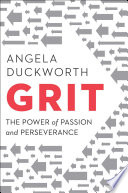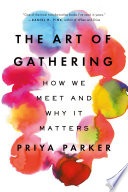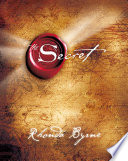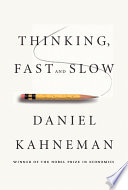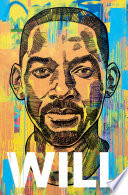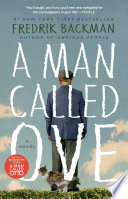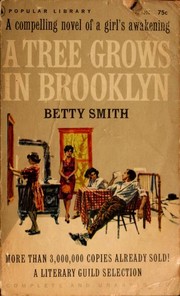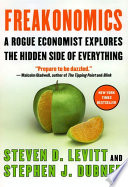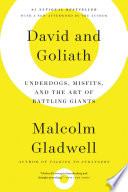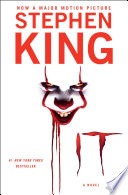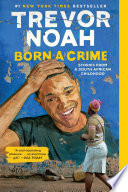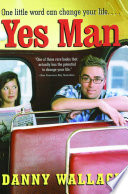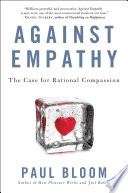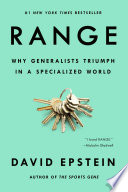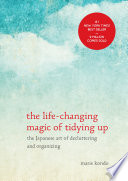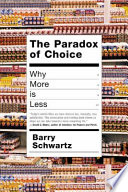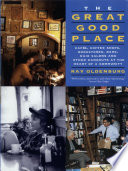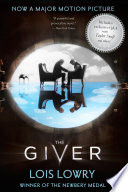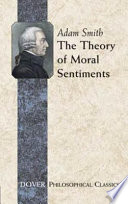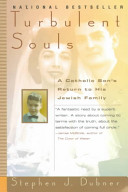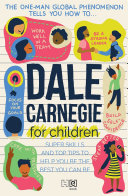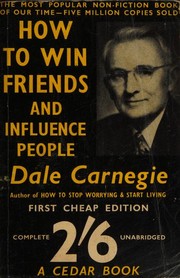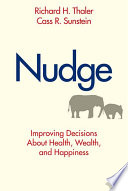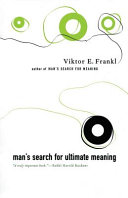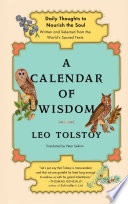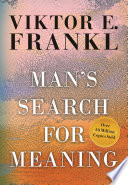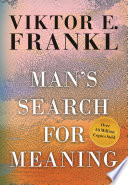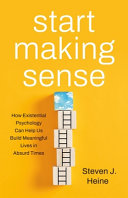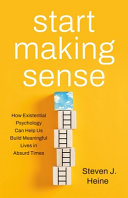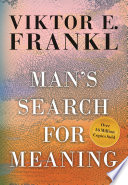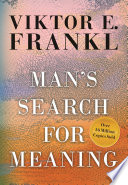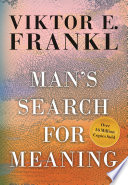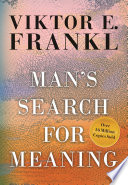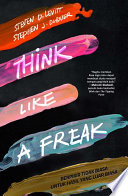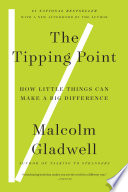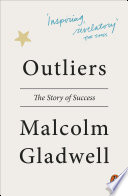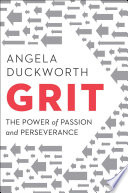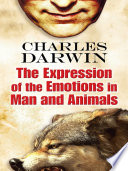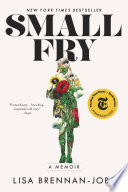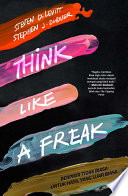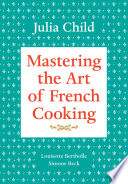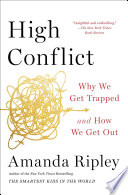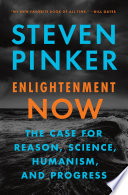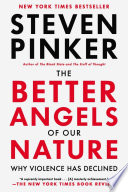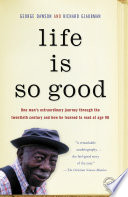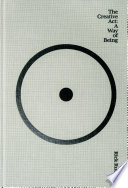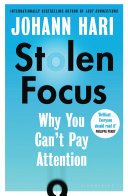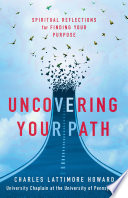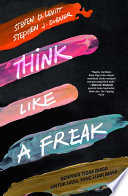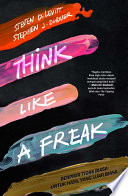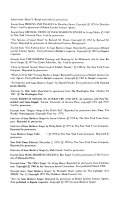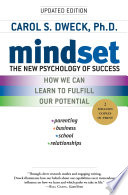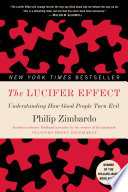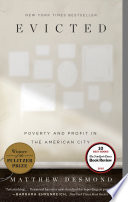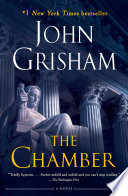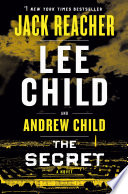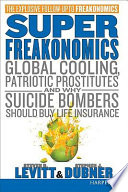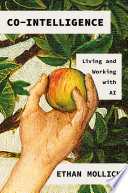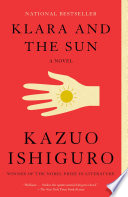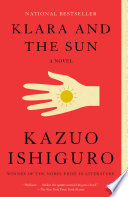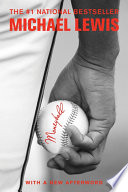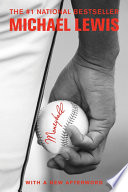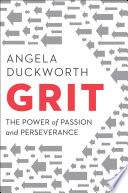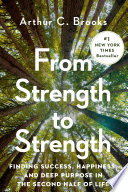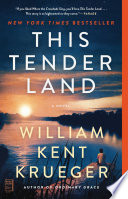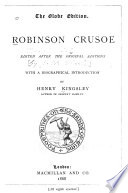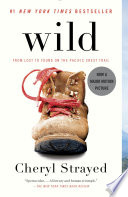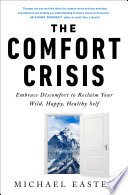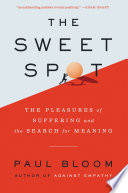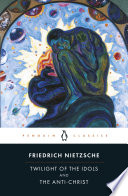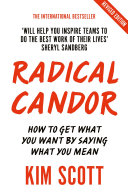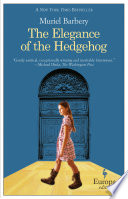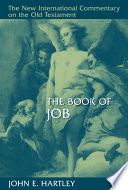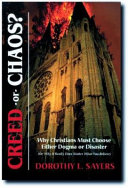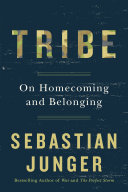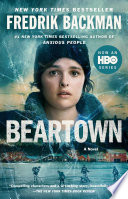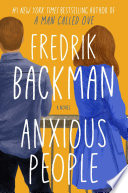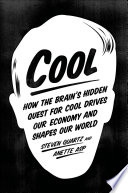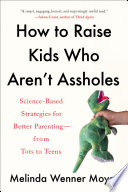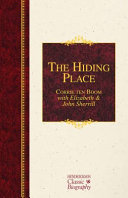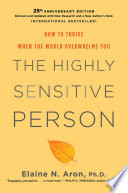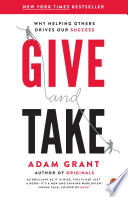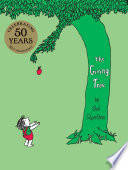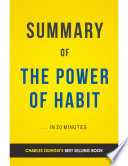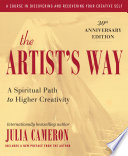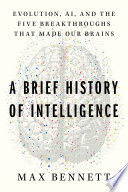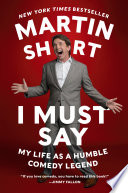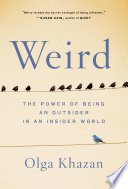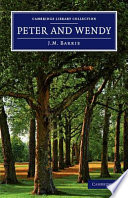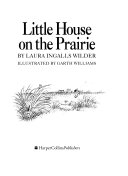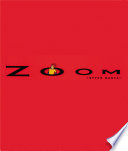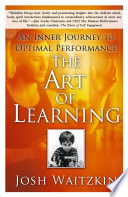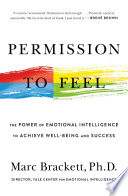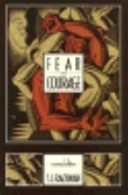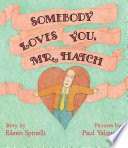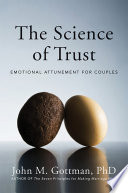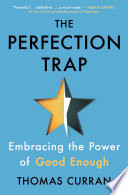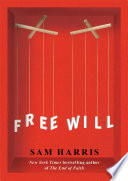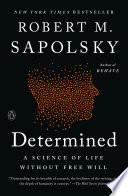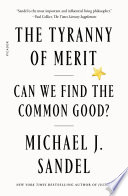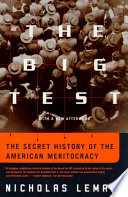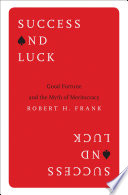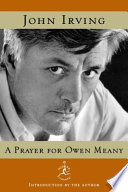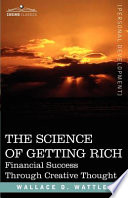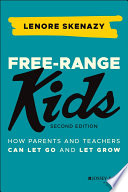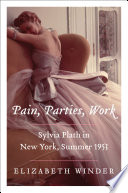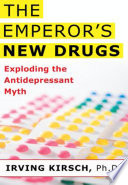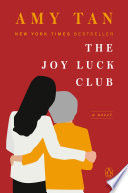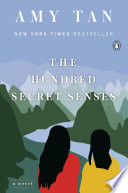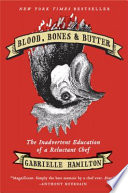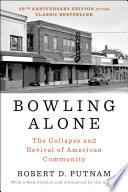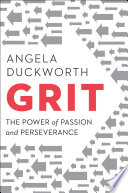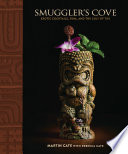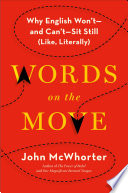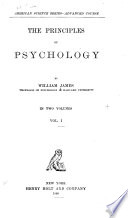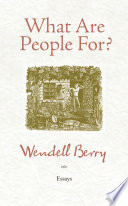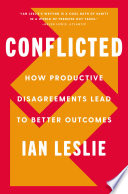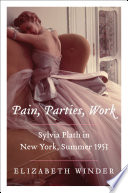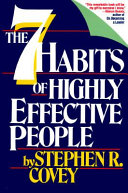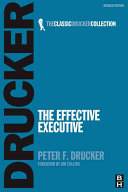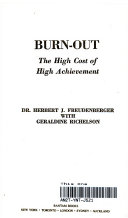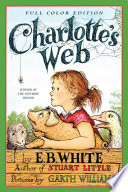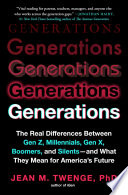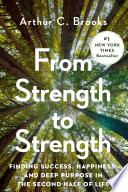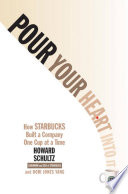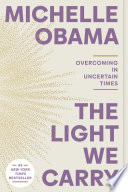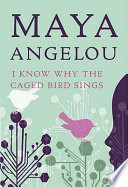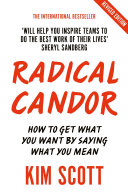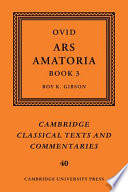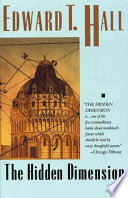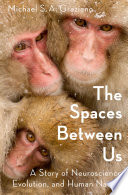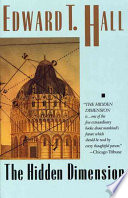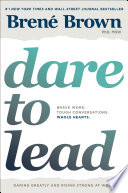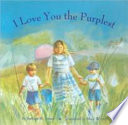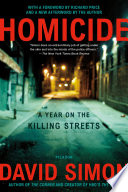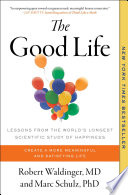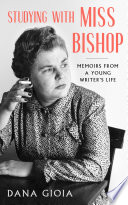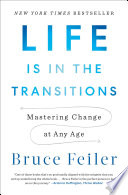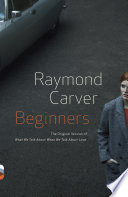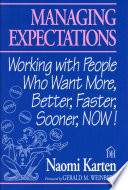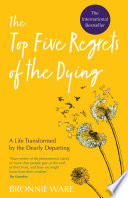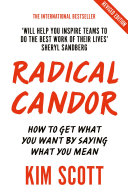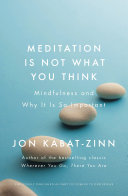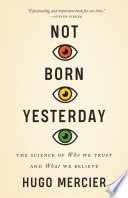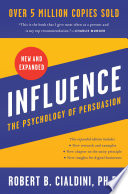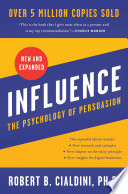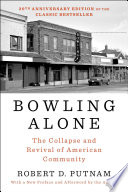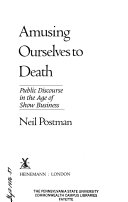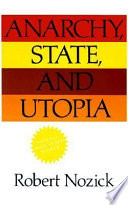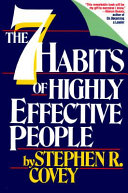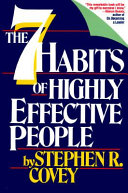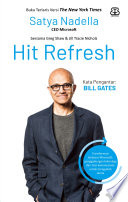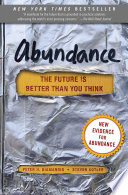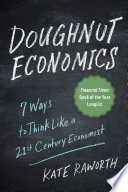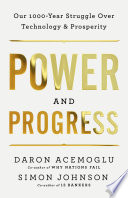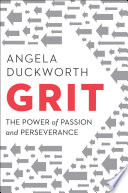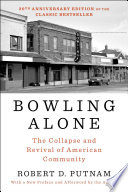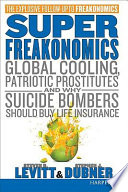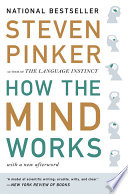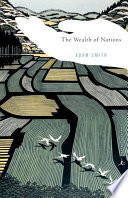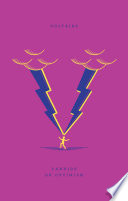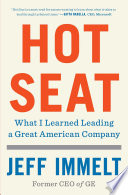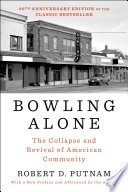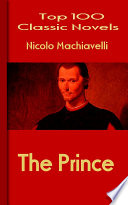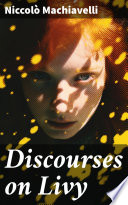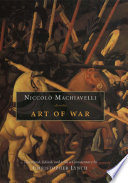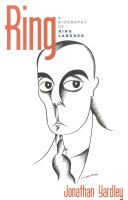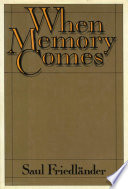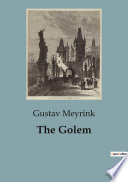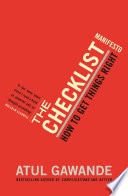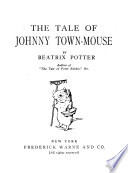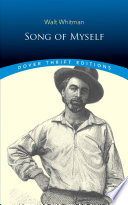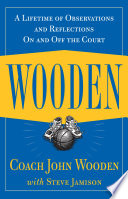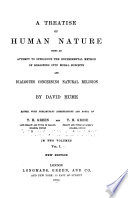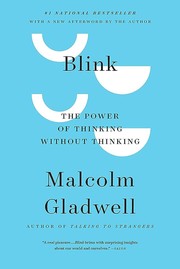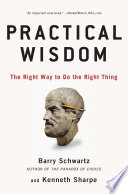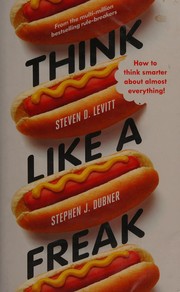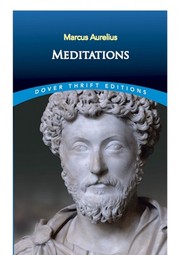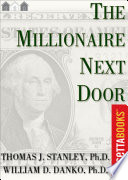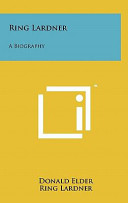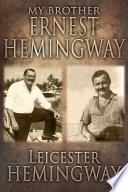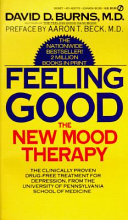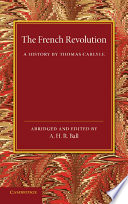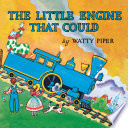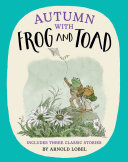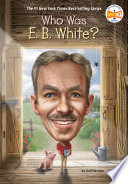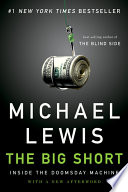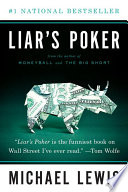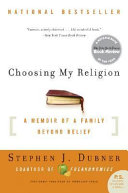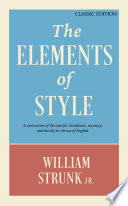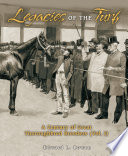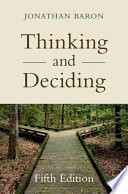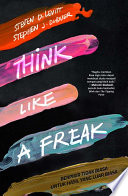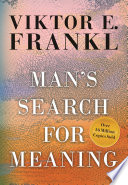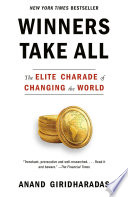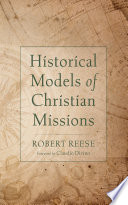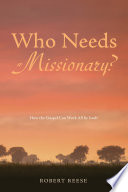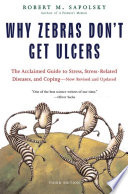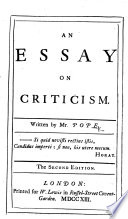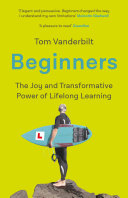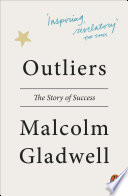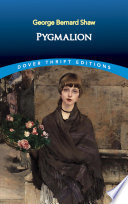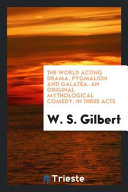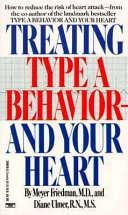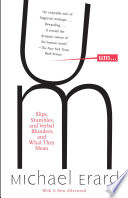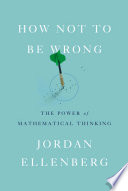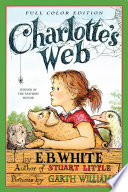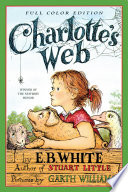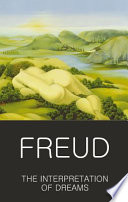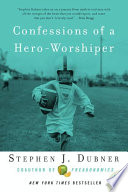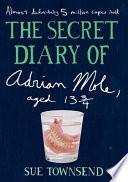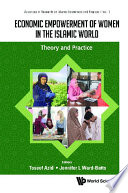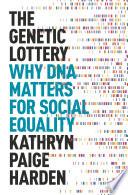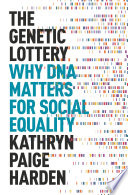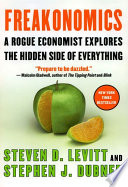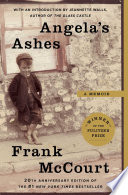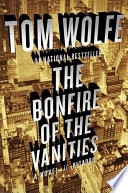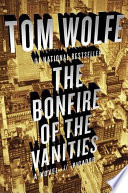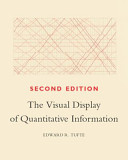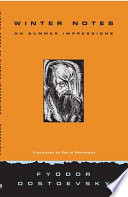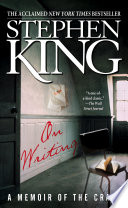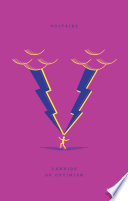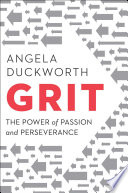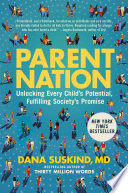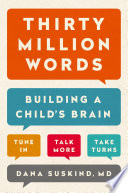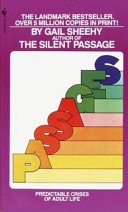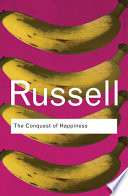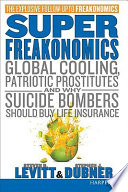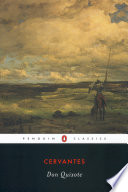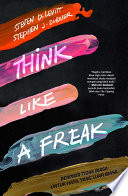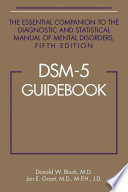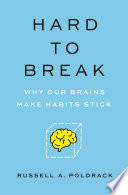Podcast: No Stupid Questions
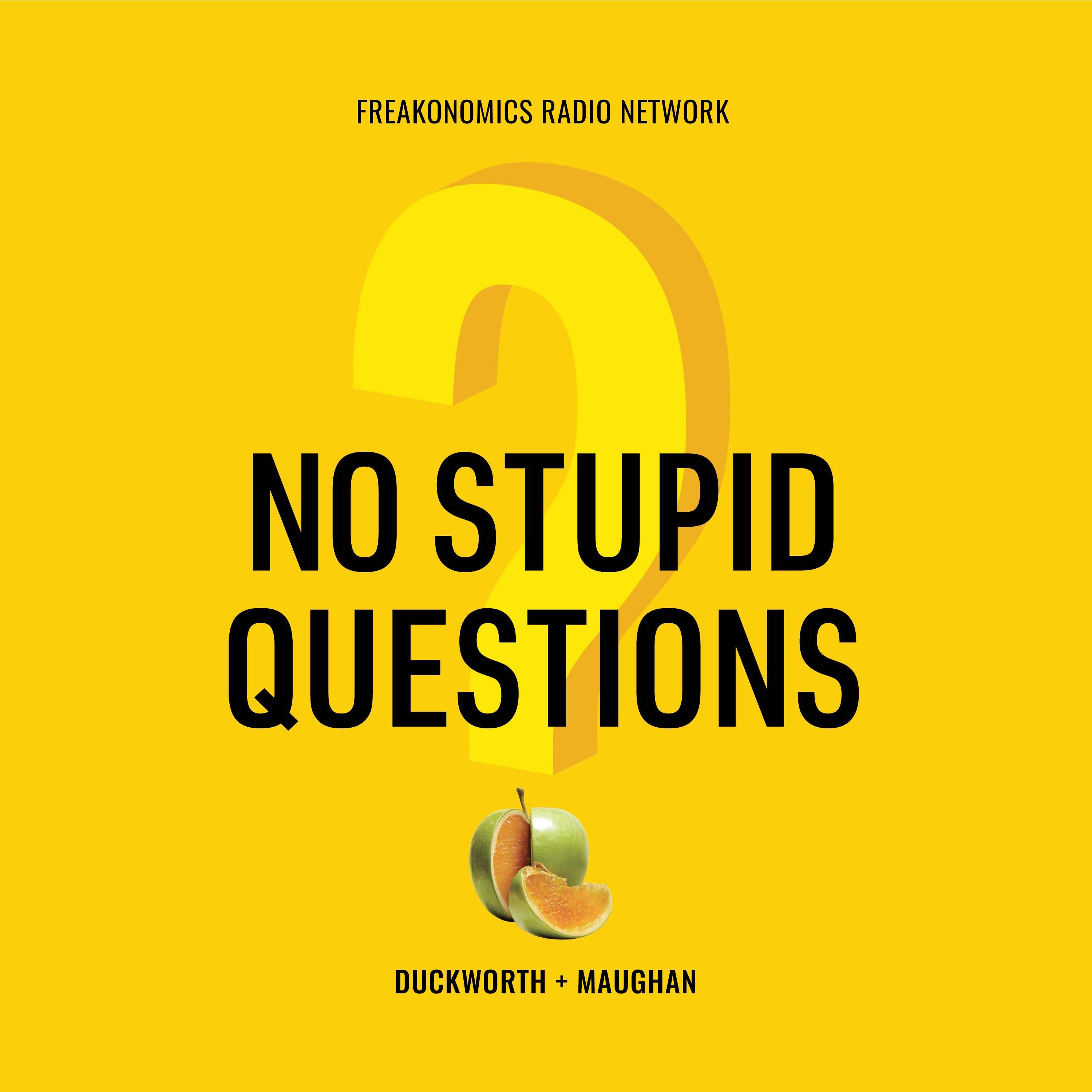
Research psychologist Angela Duckworth (author of "Grit") and tech and sports executive Mike Maughan really like to ask people questions, and they believe there’s no such thing as a stupid one. So they have a podcast where they can ask each other as many “stupid questions” as they want. New episodes each week. "No Stupid Questions" is a production of the Freakonomics Radio Network. To get every show in our network without ads and a monthly bonus episode of Freakonomics Radio, sign up for SiriusXM Podcasts+ on Apple Podcasts at http://apple.co/SiriusXM.
247 episodes processed, 247 books extracted
Podcast Playlist: View on YouTube
Books Mentioned Most Often
Grit
Buy Grit by Angela Duckworth on Amazon
Mentioned 30 times
Research psychologist Angela Duckworth (author of "Grit") and tech and sports executive Mike Maughan really like to ask people questions, and they believe there’s no such thing as a stupid one.
In this episode, Angela Duckworth, the author of 'Grit', shares insights alongside Mike Maughan, emphasizing their belief that all questions hold value.
I will say that I probably should have done this more myself; I wrote a lot about my own daughters in Grit before they were old enough to really give me permission to do that, so maybe I should have taken a page out of the Taylor Swift parenting playbook myself.
Angela Duckworth reflects on her own actions, mentioning she wrote about her daughters in her book 'Grit' before they were old enough to consent. She uses this as an example of potentially problematic sharing, and ponders if she should have followed a different approach.
Like, there was a time where I would read my Amazon reviews—I'm no longer in that time, not just because my book came out a million years ago, but also because I have found it to not be a healthy exercise to read Amazon reviews—good or bad.
Angela Duckworth reflects on her past practice of reading Amazon reviews for her book, 'Grit'. She notes that although she no longer engages in this habit, her experiences have led her to realize that reading reviews, whether positive or negative, is not a healthy exercise.
Research psychologist Angela Duckworth (author of "Grit") and tech and sports executive Mike Maughan really like to ask people questions, and they believe there’s no such thing as a stupid one.
In the podcast, Angela Duckworth, known for her book 'Grit', discusses the idea that there are no stupid questions, alongside tech and sports executive Mike Maughan.
Research psychologist Angela Duckworth (author of "Grit") and tech and sports executive Mike Maughan really like to ask people questions, and they believe there’s no such thing as a stupid one.
In the podcast, Angela Duckworth, known for her book 'Grit', is introduced alongside Mike Maughan as they delve into interesting questions, emphasizing that no question is too simple or silly.
Research psychologist Angela Duckworth (author of "Grit") and tech and sports executive Mike Maughan really like to ask people questions, and they believe there’s no such thing as a stupid one.
In this episode, the hosts discuss the concept of asking questions, with Angela Duckworth being introduced as the author of the influential book 'Grit,' which explores the power of passion and perseverance.
When you talk about grit, the question of values is, I think, pretty much front and center. But since you, Mike, unlike me, have actually worked in the real world...
Angela Duckworth refers to her own book, 'Grit', while discussing the concept of values. She emphasizes its relevance to the ongoing conversation, highlighting that she has authored 'Grit', which ties into the themes being discussed in the episode.
First of all, I actually think we would both have a decent chance because I think that you have enormous grit. And I'm not just trying to go off your book.
Mike refers to Angela's book, 'Grit', while discussing their chances of survival on a deserted island, implying that she exemplifies the perseverance described in her work.
Research psychologist Angela Duckworth (author of "Grit") and tech and sports executive Mike Maughan really like to ask people questions, and they believe there’s no such thing as a stupid one.
In this episode, Angela Duckworth, known for her book 'Grit', discusses her work as a research psychologist, alongside tech and sports executive Mike Maughan, emphasizing their belief that all questions are valid.
We did read Grit for that!
During a remote meeting, Mike, one of the hosts of the podcast, noted that his book club read 'Grit', written by Angela Duckworth, who co-hosts the show.
I will say in the seven years of all these books, no book has come up more frequently in subsequent discussions, whether we're reading science fiction or poetry or about race relations or really boring non-fiction books about passion and perseverance, or an amazing book called Grit, somehow—not that it comes up every time; I'm not overstating it—but it comes up more frequently than any other book.
In a discussion about various books they've encountered over the years, Mike highlights that the book 'Grit' has been mentioned more frequently than any other title, emphasizing its significance across diverse topics, even in unconventional genres.
Research psychologist Angela Duckworth (author of "Grit") and tech and sports executive Mike Maughan really like to ask people questions, and they believe there’s no such thing as a stupid one.
In the podcast, Angela Duckworth, who authored 'Grit', is introduced as a research psychologist alongside Mike Maughan. They emphasize the importance of asking questions, asserting that there are no stupid ones.
And Mike, as you know, I wrote a book on grit.
Angela Duckworth mentions that she authored a book titled 'Grit', discussing how the concepts from the book relate to conscientiousness.
Yeah, I don't know if that accounts for his living to 100, but oh my gosh! He loved grit!
Podcast host Angela shares that a person named Tim Beck 'loved grit', suggesting a connection to her own book, although it is not explicitly mentioned in this context.
Research psychologist Angela Duckworth (author of "Grit") and tech and sports executive Mike Maughan really like to ask people questions, and they believe there’s no such thing as a stupid one.
Angela Duckworth, a research psychologist and the author of 'Grit', is introduced in the podcast along with tech and sports executive Mike Maughan, as they explore the importance of asking questions without judgment.
Yeah, many, many years ago, my book club flew out to Philadelphia to spend a day with you and talk through grit, right?
In this segment, Mike Maughan recalls that his book club visited Philadelphia to meet with Angela Duckworth and have a discussion about her book 'Grit'.
Research psychologist Angela Duckworth (author of "Grit") and tech and sports executive Mike Maughan really like to ask people questions, and they believe there’s no such thing as a stupid one.
In this episode, co-host Angela Duckworth is introduced along with Mike Maughan while discussing their penchant for asking questions. Duckworth is noted as the author of the book "Grit."
I once gave a talk on grit for my book tour, and I was very nervous because I had never really given a book tour talk. I was like, 'What the hell is that?'
Angela Duckworth recounts her experience of giving a talk on 'grit' during her book tour, expressing her nervousness and confusion about the concept of a book tour talk.
So, I guess the most personal thing for me would be, you know, in my research on grit, I got very taken with the idea that high achievers are people who are kind of indomitable in their will, and they are obsessive in their pursuit of a single goal. So, what's very hard for me is to then be criticized for this research.
Angela Duckworth shares her experience with her research on 'Grit', discussing how she is affected by criticism related to her work. This links to the episode's theme of disagreement and reflects her dedication to the topic.
Research psychologist Angela Duckworth (author of "Grit") and tech and sports executive Mike Maughan really like to ask people questions, and they believe there’s no such thing as a stupid one.
Angela Duckworth, a research psychologist and the author of 'Grit', engages in discussions with tech and sports executive Mike Maughan, emphasizing the value of curiosity and questioning in their conversations.
Research psychologist Angela Duckworth (author of "Grit") and tech and sports executive Mike Maughan really like to ask people questions, and they believe there’s no such thing as a stupid one.
Angela Duckworth, the host of the podcast and author of the book 'Grit', discusses the importance of asking questions and the belief that no question is too trivial.
A few years ago, for my last book, I ended up leaving the world of journalism to play a game for a good chunk of my life. For one year, while I was researching the book, I played a game full-time.
Angela Duckworth, a host of the podcast, references her last book while discussing her immersive experience of playing a game to explore the concept of fun. As noted in the podcast, she is the author of 'Grit', making it the likely title.
When you were writing grit you were interacting with a lot of high Achievers
Stephen Dubner mentions Angela Duckworth writing 'grit' while interacting with high achievers.
You know, I remember when the editor and literary agent convinced me to write Grit.
Angela Duckworth, one of the podcast hosts, talks about her journey to writing her book 'Grit', sharing insights into the encouragement she received from her editor and literary agent.
Professor Duckworth you are known to Advocate the power of grit as the subtitle viewer book puts it the power of passion and perseverance
Stephen Dubner refers to Angela Duckworth's book by quoting its subtitle when discussing her advocacy of grit.
Research psychologist Angela Duckworth (author of "Grit") and tech and sports executive Mike Maughan really like to ask people questions, and they believe there’s no such thing as a stupid one.
Angela Duckworth, one of the hosts of the podcast, is introduced as the author of the book 'Grit,' emphasizing her expertise as a research psychologist.
I'm Angela Duckworth. I'm Stephen Dubner and you're listening to No Stupid Questions.
In the introduction of the podcast, the host Angela Duckworth introduces herself and mentions being the author of the book "Grit". This moment sets the stage for the discussion to follow.
It's G-R-I-T, but the point is, oftentimes in these very short interactions with strangers, it seems to me like there's a familiarity. It's like, 'Oh my gosh, are you Angela?'
Angela shares her experience of being recognized by strangers, often due to her TED talk about her book 'Grit'. She observes that this familiarity leads people to engage with her as if they already know her.
Research psychologist Angela Duckworth (author of "Grit") and tech and sports executive Mike Maughan really like to ask people questions, and they believe there’s no such thing as a stupid one.
In this episode, Angela Duckworth introduces herself as the author of the book "Grit," which sets the stage for discussions on asking questions and exploring concepts of intelligence and curiosity.
Research psychologist Angela Duckworth (author of "Grit") and tech and sports executive Mike Maughan really like to ask people questions, and they believe there’s no such thing as a stupid one.
Angela Duckworth, a research psychologist and the author of the book 'Grit', is introduced in the podcast alongside Mike Maughan, who enjoys asking questions.
The Art of Gathering
Buy The Art of Gathering by Priya Parker on Amazon
Mentioned 11 times
I was recently reading an amazing book called The Art of Gathering by Priya Parker.
In this episode, Mike discusses the insights he gained from reading 'The Art of Gathering' by Priya Parker, which serves as a springboard for the overarching topic of their conversation.
This was so different; he pulls out a wrinkled old copy of Priya Parker's book The Art of Gathering and he said, "I've given more copies of this book away than any other book, and here's my copy.
Mike, one of the hosts of the podcast, describes how a friend presented him with his personal copy of 'The Art of Gathering' by Priya Parker, noting its significance and impact after a meaningful gathering.
When I was reading Parker's book, I thought, "Wow, we maybe inadvertently followed a lot of the principles that allowed us to sustain this."
Mike, a host of the podcast, references reading Priya Parker's book, 'The Art of Gathering,' and discusses how the principles from it relate to his experiences at a book club.
Now that goes to one of the principles that Priya Parker talks about, which I think is pretty uncomfortable for a lot of people, and that's this idea of exclusivity.
In the podcast, Mike discusses a principle from Priya Parker's book, 'The Art of Gathering,' highlighting its exploration of exclusivity in group gatherings and how it relates to his experiences in a book club.
But one of the most uncomfortable situations that Priya Parker brings up in her book is there's a group of friends that used to get together like once a year for a weekend, and one year one member of the group, who was in the military, only had the same weekend that he could get together with his girlfriend.
In this episode, Mike discusses uncomfortable situations raised in Priya Parker's book, 'The Art of Gathering,' where she describes a group of friends who typically meet once a year, and how one military member's schedule complicates their reunion.
Now, back to Mike and Angela's conversation about gatherings on this topic of rules that we're talking about right now: Priya Parker gave a TED Talk in 2019, and one of the things she talked about were popup rules.
During the discussion, Mike brings up Priya Parker, referencing her TED Talk from 2019, where she shared insights about the rules of gatherings.
And to your point, Parker talks in the book about this interesting concept that some people in a group dinner may want to leave earlier and some may want to stay later, and so long as the host is okay with either one of those things, one of the things she recommends is at some point— let's say after an hour, you've eaten the dinner—then it's okay; now we're going to leave the kitchen and move into the living room.
In this episode, Mike discusses principles from Priya Parker's book, 'The Art of Gathering,' particularly how hosts can manage transitions during gatherings, allowing guests to leave early or stay longer based on their comfort.
Okay, I don't know who said this for all— I know Priya Parker said this—but I remember it really well, and I am not the first to say it: it was advice on dinner parties, and it was like no more than six, no fewer than five!
During the podcast, Mike recalls advice from Priya Parker about the optimal number of guests for a dinner party, suggesting that there should be no fewer than five and no more than six attendees.
I actually agree with all of this; obviously, I'm passionate about Parker's book; I think it's really valuable, and I've loved everything!
In the podcast, Mike expresses his enthusiasm for Priya Parker's book, highlighting its valuable insights and how much he enjoys it.
Okay, I have not yet read The Art of Gathering, but if I take the art in the title seriously, maybe your friend, and maybe Priya Parker herself, the oracle, maybe they are like the Leonardo da Vinci, so they have taken this art of gathering to its highest apogee!
Angela, a host of the No Stupid Questions podcast, mentions that she has not yet read the book 'The Art of Gathering' by Priya Parker, but suggests that it explores the concept of gathering with great depth.
So you know, if The Art of Gathering really is an art, some of us are going to be really far down the path, and they're amazing!
In this segment, Angela discusses 'The Art of Gathering' by Priya Parker, suggesting that if gathering truly is an art, then some individuals are far ahead in mastering it.
The Secret
Buy The Secret by Rhonda Byrne on Amazon
Mentioned 9 times
There was this book that came out and this movie that came out called The Secret. Oh yeah, have you ever heard of this?
Podcast hosts Mike and Angela are discussing the concept of manifestation. Mike brings up 'The Secret,' a book by Rhonda Byrne, to introduce the topic.
So The Secret was written by this Australian TV writer, her name is Rhonda Byrne. The book went on to sell more than 30 million copies worldwide and has been translated into more than 50 languages.
In this segment, the host discusses 'The Secret,' a book written by Australian author Rhonda Byrne. She highlights the impressive sales of over 30 million copies and its translations into more than 50 languages.
So in The Secret, Byrne refers to this three-step process and she loved this idea so much, she ran with it and talked about how her life had collapsed around her.
Host Angela provides context about 'The Secret', explaining that author Rhonda Byrne outlines a three-step process, and reflects on how her life had fallen apart before she embraced this philosophy.
The Secret and manifestation is interesting. I can't define it necessarily; manifest means to happen, right?
In this segment, host Mike brings up 'The Secret', linking it to the concept of manifestation. He also expresses his challenges in defining what manifestation truly means.
So the book that Byrne wrote, The Secret, was largely based on the law of attraction, but like, attraction to what?
In this segment, host Angela discusses the book 'The Secret', explaining that it focuses on the concept of the law of attraction.
I'm going to say like, oh you know, maybe what all these kids need to do, maybe what I should have done as a teacher is sat at lunch and really helped kids visualize these positive futures! I don’t know, passed around The Secret!
In this moment, podcast host Angela humorously considers the idea of using the book 'The Secret' as a helpful resource for encouraging children to envision their positive futures.
So here’s the thing that you don't read about in The Secret: the butt is this—the butt is this—when you cross the Rubicon, you're not done!
Angela discusses an overlooked aspect of the concept presented in 'The Secret,' emphasizing that there are additional steps in the process that are not mentioned in the book.
I know this is obvious to you and me, but I don't think it's obvious to everybody who buys The Secret or who answers questions like, you know, the universe is going to bring me success!
Angela discusses that while the ideas in 'The Secret' may seem clear to some, they might not be obvious to everyone who invests in the book, highlighting its potential shortcomings.
In the first half of the show, Mike says that in her 2006 book, The Secret, author Rhonda Byrne writes that the titular concept is largely based on the law of attraction.
During a discussion in the podcast, Mike highlights that Rhonda Byrne's book, 'The Secret', discusses concepts primarily rooted in the law of attraction.
Thinking, Fast and Slow
Buy Thinking, Fast and Slow by Daniel Kahneman on Amazon
Mentioned 7 times
That's why Danny called his bestselling book Thinking, Fast and Slow, because thinking fast is using system one and thinking slow is using system two.
Angela references Daniel Kahneman's bestselling book 'Thinking, Fast and Slow' while discussing the concepts of System 1 and System 2 thinking.
I recently came upon the No Stupid Questions podcast and would love to hear your thoughts on the importance of semantics, especially in relation to the idea of priming as written about in the great Daniel Kahneman's Thinking, Fast and Slow.
A listener named Josiah brings up Daniel Kahneman's book "Thinking, Fast and Slow" while asking the hosts about semantics and the concept of priming. He is curious to hear their thoughts on the subject.
Yeah, no, I think they're wrong. But Daniel Kahneman did write a great book too, you know, Thinking, Fast and Slow.
During the discussion, host Angela mentions that Daniel Kahneman wrote the acclaimed book "Thinking, Fast and Slow," highlighting his impact on psychology and the study of decision-making.
You know, one of the things that some readers took from Thinking, Fast and Slow was the idea that priming was really important. But what then happened after Daniel Kahneman published Thinking, Fast and Slow was that there was a huge controversy about whether it was true.
In the podcast, the book "Thinking, Fast and Slow" is discussed in relation to how readers interpreted its insights on priming, as well as the controversy that followed its publication regarding the research it presented.
It's one of Danny Kahneman's inventions, but has gotten less attention than, like, Thinking, Fast and Slow and cognitive biases and so forth. I've absolutely heard of it; I think it's a fascinating concept!
The book 'Thinking, Fast and Slow' by Daniel Kahneman is mentioned in the context of discussing his less well-known concept, adversarial collaboration. The book serves as a point of reference to compare its popularity with some of Kahneman's other ideas.
And by the way, people read Thinking, Fast and Slow and they watch a TED Talk, and I think that we are actually newly aware of these evolutionarily explicable quirks of human reasoning.
Angela Duckworth discusses the book 'Thinking, Fast and Slow,' highlighting how it sheds light on the evolutionary quirks of human reasoning.
And as you've taught us all here via Danny Kahneman, I guess we do have this appetite for coherence, right? This is one of my major take-homes from Danny Kahneman. I know everyone thinks about thinking fast and slow and judgment decision-making and biases and heuristics, but I think one of his core insights is that human beings have certain fundamental limited patience and inclinations; one of them is this need to create causal narratives and for there to be coherence, and we hate having the opposite of that, which is a sense of dissonance, things not adding up.
The podcast hosts, Angela and Stephen, discuss Daniel Kahneman's ideas about coherence and causal narratives, referring to material from his book 'Thinking, Fast and Slow'. They talk about how humans require narratives that make sense and despise contradictions.
Will
Buy Will by Will Smith on Amazon
Mentioned 4 times
He tells the story in his memoir of being a very young Will Smith — a certain deal has come his way.
Angela discusses Will Smith's memoir, which includes a story about the concept of "paralysis by analysis," and refers to the memoir entitled "Will."
In the first half of the show, Angela says she was introduced to the expression 'paralysis by analysis' in Will Smith's 2021 memoir, Will.
During the discussion, the fact checker notes that the phrase "paralysis by analysis" was introduced by Angela in reference to Will Smith's memoir, 'Will'. Although the quote was not used verbatim, the essence of the sentiment was indeed expressed in the book.
Because I don't know if you've read Will Smith's autobiography— Oh yes! Will, I read it cover to cover!
In this segment, podcast co-host Angela talks about reading Will Smith's autobiography, titled 'Will', which she enjoyed thoroughly from start to finish.
You know your story—I did read the Will Smith memoir from cover to cover, of course I did as a sort of a student devotee!
In this segment, podcast host Angela shares that she has read Will Smith's memoir titled 'Will' from start to finish, highlighting her deep engagement with the book as a dedicated fan.
A Man Called Ove
Buy A Man Called Ove by Fredrik Backman on Amazon
Mentioned 3 times
He wrote A Man Called Ove.
In this segment, Mike discusses the book "A Man Called Ove," highlighting its author, Fredrik Backman.
I don't even care about finishing the rest of the principles for Priya Parker; now all I want to talk about is— like, I kind of feel like if I were going to start a book club, I think the first book we would read is A Man Called Ove!
Angela, one of the hosts, expresses her desire to start a book club, suggesting that the first book they would read is A Man Called Ove.
I've read A Man Called Ove—I always say A Man Called Ove because that is the Swedish pronunciation.
Angela mentions that she has read 'A Man Called Ove' and highlights its Swedish pronunciation, attributing it to author Fredrik Backman.
A tree grows in Brooklyn
Buy A tree grows in Brooklyn by Betty Smith on Amazon
Mentioned 3 times
I've been thinking about a conversation that we had about A Tree Grows in Brooklyn do you recall this conversation
Stephen Dubner mentions a previous conversation with Angela Duckworth about this book, noting she loved it but couldn't remember details.
so what this phenomenon reminds me of a little bit maybe even a lot is one of my favorite books when I was a kid was A Tree Grows in Brooklyn did you ever read it
Angela Duckworth mentions "A Tree Grows in Brooklyn" as one of her favorite childhood books while discussing aspirational consumerism.
and there are other people who are like no I'm going to reread A Tree Grows in Brooklyn and I don't know that there's anything more right about either of those approaches
Angela Duckworth mentions rereading this book as an example of seeking comfort in familiar things during difficult times.
Freakonomics
Buy Freakonomics by Steven D. Levitt, Stephen J. Dubner on Amazon
Mentioned 3 times
I do so by then we had two books for economics and super Freakonomics and we'd started Freakonomics radio
Stephen mentions this as one of the books he wrote with Steven Levitt.
and then we also wrote in super Freakonomics about something that might not strike many people's cheating
Stephen Dubner mentions writing about cheating in the book SuperFreakonomics.
so my most recent sort of brush with actual Fame came several years ago our first book Freakonomics came out
Stephen Dubner mentions his first book, Freakonomics, as the source of a period of increased fame.
David and Goliath
Buy David and Goliath by Malcolm Gladwell on Amazon
Mentioned 2 times
Adam Grant writes about Malcolm Gladwell, who's the well-known author of many New York Times bestsellers like 'David and Goliath,' 'Tipping Point,' and 'Outliers.'
In the podcast, Angela Duckworth discusses 'David and Goliath,' highlighting it as one of Malcolm Gladwell's notable New York Times bestsellers, among his other acclaimed works.
Yeah, okay, because like Malcolm Gladwell and others have written about this, like he did in David and Goliath; he coined this term, I think elite institution cognitive disorder, where basically we let elite institutions mess us up.
Angela discusses Malcolm Gladwell's book 'David and Goliath' while addressing the struggles that high-achieving individuals face in highly competitive environments, such as elite universities. She highlights Gladwell's concept of 'elite institution cognitive disorder' which relates to the negative impact these institutions can have on students.
Lolita
Buy Lolita by Vladimir Nabokov on Amazon
Mentioned 2 times
Much like Nabokov forces us to do in Lolita, the truly unsettling part, the terrifying thing, is realizing that each one of us might be capable of committing an evil act given the right reasons.
In the discussion, the listener references the book 'Lolita' by Vladimir Nabokov to highlight the unsettling notion that individuals might be capable of committing evil acts under certain circumstances.
Vladimir Nabokov is writing about this pedophile named Humbert Humbert and the little girl that he entraps and so forth is named Lolita. It's told from the interior of his worldview; like you really mostly see the world through the eyes of Humbert Humbert.
Angela is discussing the book Lolita by Vladimir Nabokov, exploring how a reader's understanding of the character Humbert Humbert evolves throughout the narrative, raising questions about morality and the nature of evil.
It
Buy It by Stephen King on Amazon
Mentioned 2 times
And let's see, this is titled It, I can't tell if that's supposed to be It or if it's actually It. It's It, Stephen King!
During their discussion about scary movies, the hosts mention the title 'It', prompting Stephen Dubner to clarify that it is actually a book by Stephen King.
And let's see, this is capital I-T, I can't tell if that's supposed to be it or if it's actually I-T. It's it, Stephen King.
In a discussion about a list of the scariest horror movies, the hosts of No Stupid Questions, Stephen Dubner and Angela Duckworth, mention the movie 'It' and clearly state that its author is Stephen King.
Born a Crime
Buy Born a Crime by Trevor Noah on Amazon
Mentioned 2 times
We have these constructs, and I think one fascinating thing I listened to recently was from Trevor Noah, who's the comedian who wrote one of my favorite books, 'Born a Crime.'
During the episode, the host refers to Trevor Noah's book 'Born a Crime' as one of their favorites while examining the topic of societal constructs and adulthood.
Who you might think is just comedic and funny, but he wrote a book called Born a Crime, and it's a very thoughtful, serious look at his life. And in there, he says this: I don't regret anything I've ever done in my life, any choice that I've made, but I'm consumed with regret for the things I didn't do, the choices I didn't make, the things I didn't say!
Angela discusses Trevor Noah's book, 'Born a Crime', highlighting its serious and thoughtful examination of his life. She reflects on a poignant quote from the book about regret, emphasizing Noah's perspective on the choices he did not make.
Yes Man
Buy Yes Man by Danny Wallace on Amazon
Mentioned 2 times
One thing that is interesting though, and this is a totally tangential aside, there's this book called 'Yes Man.' I think they later made a movie about it, but this guy, Danny Wallace, who lived in London, was getting bored.
In this segment, host Mike Maughan references the book 'Yes Man' as an interesting aside while talking about scams. He discusses the book's premise and mentions its author, Danny Wallace, who is noted for his experiences in London.
One thing that is interesting, though, and this is a totally tangential aside, there's this book called u2018Yes Man, I think they later made a movie about it, but this guy Danny Wallace who lived in London, he was getting bored; his life was getting boring, his friends were worried about him.
In the podcast, Mike discusses the book 'Yes Man' by Danny Wallace, which he mentions was later adapted into a movie. He describes the book's premise, focusing on a character who decides to say 'yes' to every opportunity for six months, resulting in a dramatic change in his life.
Mrs. Miracle
Buy Mrs. Miracle by Debbie Macomber on Amazon
Mentioned 2 times
In fact, the version of the aphorism, 'the grass is always greener on the other side,' seems to have originated in a line from 'Mrs. Miracle,' a 1996 book by bestselling romance novelist Debbie Macomber.
During a fact-check segment, the podcast discusses the book 'Mrs. Miracle' by Debbie Macomber, explaining its connection to the phrase 'the grass is always greener on the other side.' This clarifies a previous notion that listener Signey may have originated the phrase with a different variation.
In fact, the version of the aphorism: the grass is always greener on the other side seems to have originated in a line from Mrs. Miracle, a 1996 book by best-selling romance novelist Debbie Macomber.
During the fact-check segment of the podcast, hosts mention the book 'Mrs. Miracle' by Debbie Macomber, citing it as the source of the aphorism 'the grass is always greener on the other side'.
Against Empathy
Buy Against Empathy by Paul Bloom on Amazon
Mentioned 2 times
So he wrote a book you may have read called 'Against Empathy.' So where do you think he falls on the spectrum of this? I know because I know the book!
Angela discusses the book 'Against Empathy' by Paul Bloom, a psychologist renowned for his research on moral emotions. She reflects on the author's position within the empathy versus sympathy spectrum.
and so this is what Paul Bloom wrote about his book was called against empathy the case for rational compassion and Matt nailed it in terms of the effect
The host mentions Paul Bloom's book by title and author, discussing its argument about empathy.
Range
Buy Range by David Epstein on Amazon
Mentioned 2 times
There's this awesome other story that comes actually from our sibling show People I (Mostly) Admire, where Steve Levitt was interviewing David Epstein, the author of the great book Range. I love David Epstein! I just need to say, it's a great book!
Angela talks about the book 'Range' and its author David Epstein in relation to a story about how exploration can lead to unexpected discoveries.
you know I had a conversation with David Epstein the former writer for Sports Illustrated... you're going to talk about range now... and I read range and I talked to David and I think actually he raises good points
Angela anticipates Stephen will discuss David Epstein's book 'Range', and Stephen confirms he has read it.
The Meritocracy Trap
Buy The Meritocracy Trap by Daniel Markovits on Amazon
Mentioned 2 times
So Patrick says I'm a big fan of the podcast It would be insightful if the two of you could talk about the potential failures of a meritocracy like the one discussed in the Meritocracy Trap by Daniel Markovits Are you familiar with this book I haven't read the Meritocracy Trap, but I'm pretty familiar with these arguments against meritocracy
In this segment, a listener introduces 'The Meritocracy Trap' by Daniel Markovits, suggesting it as a resource for discussing the shortcomings of meritocracy. Angela, one of the hosts, acknowledges that while she hasn't read the book, she recognizes the arguments it presents against the concept of meritocracy.
Actually, so Daniel Markovits is a professor of law at Yale.
The host shares information about Daniel Markovits, the author of 'The Meritocracy Trap', highlighting his role as a law professor at Yale.
The Life-Changing Magic of Tidying Up
Buy The Life-Changing Magic of Tidying Up by Marie Kondo on Amazon
Mentioned 2 times
Right, and in the world of the life-changing magic of tidying up and the world that kind of called forth Marie Kondo to write a book about how we accumulate like so much crap in our lives, I mean we have so much crap.
In this segment, the hosts delve into the theme of sentimentality regarding possessions, using Marie Kondo's book as a reference to explore how individuals struggle with accumulating unnecessary items in their lives.
In her 2010 self-help book, The Life-Changing Magic of Tidying Up, Kondo says that she experimented with this method but that it didn't end up working for her, and she instead recommends discarding most books in their entirety.
The podcast discusses a segment that addresses a previous remark regarding content from Marie Kondo's book, highlighting her unconventional approach to tidying and the recommendation to discard most books.
The Paradox of Choice
Buy The Paradox of Choice by Barry Schwartz on Amazon
Mentioned 2 times
I would guess Barry Schwartz. You know, that would be such a good guess.
Mike suggests that Barry Schwartz might be the person who introduced Angela to the concept of 'analysis paralysis,' which leads to a mention of his book 'The Paradox of Choice.'
I mentioned Barry Schwartz, who talked about decision-making in The Paradox of Choice. I think maybe a more approachable thing that we talk about nowadays is Netflix.
Angela explicitly mentions 'The Paradox of Choice', contextualized by Barry Schwartz, the author, discussing decision-making, particularly in relation to the challenges of choice overload that people face today.
The Great Good Place
Buy The Great Good Place by Ray Oldenburg on Amazon
Mentioned 2 times
I knew you were going to either invoke Bob Putnam or Ray Oldenburg, who wrote The Great Good Place and talked about the loss of third places, so home being the first place, work being the second place, and we used to have all of these third places to which we would go, like bowling leagues or churches or pubs or bookstores, barber shops or whatever that was, and that's where we would gather in these areas that were more a neutral ground, a leveler.
During the conversation, Mike references *The Great Good Place* by Ray Oldenburg, discussing its insights on the decline of communal spaces known as third places, which serve as vital social environments beyond home and work.
I knew you were going to either invoke Bob Putnam or Ray Oldenburg, who wrote *The Great Good Place* and talked about the loss of third places, so home being the first place, work being the second place, and we used to have all of these third places to which we would go like bowling leagues or churches, or pubs, or bookstores, barber shops, whatever that was.
Mike brings up the book *The Great Good Place* by Ray Oldenburg while discussing the importance of third places where people used to gather and socialize beyond home and work.
The Giver
Buy The Giver by Lois Lowry on Amazon
Mentioned 2 times
Have you ever read The Giver? I just read it last year. Okay, it's probably the book I've read more than any other book.
Angela asks Mike if he's ever read 'The Giver,' a book she has read many times.
In the first half of the show, Mike discusses Lois Lowry's Newbery Award-winning novel The Giver. He refers to the protagonist as Jona, but the character's name is Jonas!
In this segment, Mike talks about Lois Lowry's acclaimed novel 'The Giver', noting a mistake he made by incorrectly naming the protagonist Jona instead of Jonas.
The Theory of Moral Sentiments
Buy The Theory of Moral Sentiments by Adam Smith on Amazon
Mentioned 2 times
Well, the Theory of Moral Sentiments...
In the episode, Angela Duckworth refers to Adam Smith's book 'The Theory of Moral Sentiments' while discussing concepts related to moral circles and self-interest.
because when Adam Smith said that we all want to be praised and we all want to be praise worthy I think it was in a theory of moral sentiments
Angela quotes Adam Smith, mentioning his book as the source of the quote.
Turbulent Souls:
Buy Turbulent Souls: by Stephen J. Dubner on Amazon
Mentioned 2 times
the first book that I wrote I think we've talked about this a little bit in the past on this show is about my parents both of whom were first generation Brooklyn Jews who each before they met each other converted to Catholicism
Stephen Dubner describes his first book, detailing its subject matter (his parents' conversion).
You can learn more about her life as an accomplished ballerina, self-taught farmer, mother of eight, and devout Catholic convert in Stephen's 1998 memoir, Turbulent Souls, which was later republished under a new title, Choosing My Religion.
The podcast's fact checker references the memoir 'Turbulent Souls' by Stephen Dubner while addressing a factual error about his mother's death. He notes that the memoir was later republished under the title 'Choosing My Religion'.
Dale Carnegie for Children (Abridged and adapted)
Buy Dale Carnegie for Children (Abridged and adapted) by Dale Carnegie on Amazon
Mentioned 2 times
so Dale Carnegie seven habits of highly effective people We've talked about this self-help book
Stephen mentions this title, incorrectly attributing it to Dale Carnegie, as a self-help book they've discussed.
and maybe to snob in you would feel better reading meditations or reading the essays of Michelle de montane then reading Dale Carnegie
Stephen mentions reading Dale Carnegie (implicitly his famous book) in the context of self-help literature.
How to Win Friends and Influence People
Buy How to Win Friends and Influence People by Dale Carnegie on Amazon
Mentioned 2 times
how to get people how to win friends and influence people can't remember the title of the book
Stephen corrects himself, trying to remember the title of the Dale Carnegie book they were discussing.
but when I think of the standard self-help book like how to get rich get skinny live long whatever how to make friends and influence people there's the classic I know you like that one a lot
Angela mentions this book as a classic example of the self-help genre.
Nudge
Buy Nudge by Richard H. Thaler, Cass R. Sunstein on Amazon
Mentioned 2 times
...and many behavioral economists Richard thaler and so on who wrote a book called nudge talking about the way to nudge people towards pro-social Behavior as opposed to mandates
Stephen Dubner mentions Richard Thaler and his book 'Nudge' while discussing behavioral science and its application to influencing behavior.
One of the most famous examples from the book Nudge by Thaler and Sunstein was about putting an image of a fly, a housefly, on a urinal in the airport. I think it was the airport in Amsterdam. Thaler and Sunstein didn't come up with this; they just thought it was a great example of the nudge framework, which is if you're a guy standing there ready to pee, rather than peeing on the wall or on the floor, which men sometimes do, if there's a fly, oh, it's a game, I have a target, I'm gonna pee on the fly!
The speakers reference the book 'Nudge' by 'Thaler and Sunstein' to discuss effective signage and behavioral change, highlighting the humorous example of placing an image of a fly on airport urinals to encourage better aim.
Man's Search For Ultimate Meaning
Buy Man's Search For Ultimate Meaning by Victor Frankl on Amazon
Mentioned 2 times
and I hesitate to paraphrase Victor Frankel the psychiatrist who was in concentration camps and out of that experience wrote man search for meaning and developed a whole therapy based on his experience
Angela Duckworth mentions Viktor Frankl and his book written based on his concentration camp experience, discussing the agency one has over their response to circumstances.
yeah Victor Frankel wrote this Memoir man search for me because he had been in Nazi concentration camps
Angela Duckworth mentions Viktor Frankl and his memoir, likely misremembering the title slightly, in the context of finding meaning in suffering based on his concentration camp experience.
A Calendar of Wisdom
Buy A Calendar of Wisdom by Leo Tolstoy on Amazon
Mentioned 2 times
You know, I've been thinking about this recently for two reasons: one is I've been reading this book by Tolstoy called 'A Calendar of Days,' and it's kind of like this daily devotional.
In this segment, Stephen talks about reading 'A Calendar of Days' by Tolstoy, describing it as a daily devotional that includes various thoughts and reflections.
Finally, Angela tells Steven about a Tolstoy book that she's enjoying called 'A Calendar of Days.' Angela seems to be developing a habit of remembering interesting details about the books she reads while getting their titles wrong.
Angela discusses her enjoyment of a book by Tolstoy, mistakenly referring to it as 'A Calendar of Days.' She later clarifies that the correct title is 'A Calendar of Wisdom,' also known as 'A Cycle of Readings' or 'Path of Life.' This conversation highlights her tendency to misremember book titles.
Man's Search for Meaning
Buy Man's Search for Meaning by Viktor E. Frankl on Amazon
Mentioned 1 time
But one of these books is Man’s Search for Meaning. Now, Mike, there’s no way that you have not read Victor Frankl’s Man’s Search for Meaning, correct? I’ve read it several times!
In this segment, Angela brings up 'Man's Search for Meaning' and inquires if Mike has read it, leading to a conversation about the book authored by Viktor Frankl.
Man's Search for Meaning
Buy Man's Search for Meaning by Viktor E. Frankl on Amazon
Mentioned 1 time
Now, Mike, there’s no way that you have not read Victor Frankl’s Man’s Search for Meaning, correct? I’ve read it several times! This goes back to it: it’s short and full of great punch.
Angela asks Mike if he has read 'Man's Search for Meaning' by Victor Frankl, which he confirms. She describes the book as short and filled with meaningful insights.
Start Making Sense
Buy Start Making Sense by Steven J Heine on Amazon
Mentioned 1 time
The other book I’ll just say, which is much longer and unpublished, is start making sense: How Existential Psychology Can Help Us Build Meaningful Lives in Absurd Times is really on the same topic. It’s a book by Steve Hina, who’s one of my favorite psychologists; he's at University of British Columbia. It’s coming out in January 2025.
Angela discusses a book titled 'start making sense: How Existential Psychology Can Help Us Build Meaningful Lives in Absurd Times' by Steve Hina. She notes that it's an unpublished work expected to be released in January 2025.
Start Making Sense
Buy Start Making Sense by Steven J Heine on Amazon
Mentioned 1 time
It’s a book by Steve Hina, who’s one of my favorite psychologists; he's at University of British Columbia. It’s coming out in January 2025. But Hina actually references Frankl more than I think two or three dozen times in the book; I mean, really what I say about these two books is that they take as the big question: What is life all about?
Angela discusses the upcoming book by Steve Hina titled 'start making sense: How Existential Psychology Can Help Us Build Meaningful Lives in Absurd Times'. She highlights Hina's frequent references to Viktor Frankl within the book, emphasizing its exploration of life's purpose.
Man's Search for Meaning
Buy Man's Search for Meaning by Viktor E. Frankl on Amazon
Mentioned 1 time
What Frankl said—and he said this before he became a captive of the concentration camps—and that is actually what the narrative of Man’s Search for Meaning is; it’s a story of when he was in the concentration camps and how he survived. And what he observed, like seeing all this through the lens of somebody who is really a therapist and a psychiatrist, and it was before this Alit experience where Frankl said that when he would see people in his care who would come to him deeply anxious, lonely, depressed, even psychotic, what the cure was in so many cases was not pleasure, was not power, was not prestige, it wasn’t even relief from pain; it was meaning.
Angela discusses 'Man's Search for Meaning' by Viktor Frankl, highlighting its focus on his experiences in the concentration camps and the insights he gained about finding meaning during suffering.
Man's Search for Meaning
Buy Man's Search for Meaning by Viktor E. Frankl on Amazon
Mentioned 1 time
And Frankl did reject that; I reread Man’s Search for Meaning and was reminded that in the English edition, after he describes his experience in Auschwitz, there is like a second part, it’s almost like an extended postscript, and it is called Logo Therapy in a Nutshell. And I’ll read to you from Logo Therapy in a Nutshell because you cannot paraphrase Frankl; he’s too good.
Angela mentions that she reread 'Man's Search for Meaning' by Viktor Frankl, which contains a postscript called "Logo Therapy in a Nutshell."
Man's Search for Meaning
Buy Man's Search for Meaning by Viktor E. Frankl on Amazon
Mentioned 1 time
So I think what most people understand that book to be about is how you can find meaning through your noble response to suffering. You know, if there’s a one-liner for Man’s Search for Meaning, that’s the one-liner that like ChatGPT would give you. It’s like, oh, it’s a book about how, even in the abyss of despair and being humiliated and tortured, the nobility of your response, like that is a form of meaning.
Angela explains that most people view 'Man's Search for Meaning' as a book focused on discovering meaning through noble responses to suffering.
Man's Search for Meaning
Buy Man's Search for Meaning by Viktor E. Frankl on Amazon
Mentioned 1 time
So anyway, there’s so much nuance here, but I think to me when I read Hina’s new book, when I read Frankl’s iconic Man’s Search for Meaning, it is all about questions that you keep trying to answer. It is about goals, but not that all goals are created equal. So I read these two books wondering whether I’d have my big questions answered, and I actually do think I got answers.
Angela discusses her experience with two impactful books, notably mentioning 'Man's Search for Meaning' by Viktor Frankl. She reflects on how both books relate to the pursuit of answers to life's big questions.
Think Like a Freak (Republish)
Buy Think Like a Freak (Republish) by Steven D. Levitt, Stephen J. Dubner on Amazon
Mentioned 1 time
I was going to say I always say sometimes, I don't want to make a declarative that all things, but my immediate reaction went back to the book Freakonomics.
Mike Maughan references the book 'Freakonomics' while discussing counterintuitive ideas. He recalls how the book influenced him during his early collegiate career when it was first released.
The Tipping Point
Buy The Tipping Point by Malcolm Gladwell on Amazon
Mentioned 1 time
Adam Grant writes about Malcolm Gladwell, who's the well-known author of many New York Times bestsellers like 'David and Goliath,' 'Tipping Point,' and 'Outliers.'
In the discussion, Angela Duckworth references 'The Tipping Point,' highlighting it as one of Malcolm Gladwell's bestselling works. This mention is part of a broader conversation about Gladwell's influence and contributions to literature.
Outliers
Buy Outliers by Malcolm Gladwell on Amazon
Mentioned 1 time
Adam Grant writes about Malcolm Gladwell, who's the well-known author of many New York Times bestsellers like 'David and Goliath,' 'Tipping Point,' and 'Outliers.'
In the discussion, Angela Duckworth references 'Outliers', which is one of Malcolm Gladwell's New York Times bestsellers, alongside titles like 'David and Goliath' and 'Tipping Point'.
Grit
Buy Grit by Angela Duckworth on Amazon
Mentioned 1 time
I mean, I don't know if I should confess to this, but it was very clear to me when I wrote 'Grit' that what made the idea interesting is that we had a view that what makes somebody great at what they do is talent.
Angela Duckworth reflects on her book 'Grit', explaining that the fundamental idea revolves around the belief that greatness stems from talent.
The Expression of the Emotions in Man and Animals
Buy The Expression of the Emotions in Man and Animals by Charles Darwin on Amazon
Mentioned 1 time
While it's true that this subject has only become a focus of modern emotion psychology in recent years, we should note that in 1872, Charles Darwin described emotions related to learning and thinking in his book 'The Expression of the Emotions in Man and Animals.'
The discussion highlights Charles Darwin's book 'The Expression of the Emotions in Man and Animals,' noting it as an important early contribution to the understanding of emotions related to learning.
Small Fry
Buy Small Fry by Lisa Brennan-Jobs on Amazon
Mentioned 1 time
And I think that when you have a really amazing guest speaker or I'm reading Steve Jobs' daughter's memoir, 'Small Fry,' oh my gosh, I'm just leaning into every detail.
Angela Duckworth discusses reading 'Small Fry', a memoir by Lisa Brennan-Jobs, Steve Jobs' daughter, highlighting her interest in the detailed narrative it offers.
Think Like a Freak (Republish)
Buy Think Like a Freak (Republish) by Steven D. Levitt, Stephen J. Dubner on Amazon
Mentioned 1 time
I think they were at a swimming pool and everybody's jumping around having fun, and she's sitting by the pool reading Freakonomics!
In a humorous moment, Stephen Dubner references a scene from 'Modern Family' where the character Alex Dunphy is seen reading 'Freakonomics' by the pool while others are having fun. This light anecdote ties into the episode's theme on parasocial relationships and how we interact with media.
Mastering the Art of French Cooking, Volume 1
Mentioned 1 time
Like there was a time when people bought Julia Child's cookbook and made coq au vin for the first time. Oh my gosh, this is how French people eat chicken, it's amazing!
Angela Duckworth references Julia Child's cookbook, 'Mastering the Art of French Cooking', as a notable example of engaging in a cooking experience directly, rather than just passively watching cooking shows. She highlights how this choice to cook reflects a shift in how people participate in activities.
High Conflict
Buy High Conflict by Amanda Ripley on Amazon
Mentioned 1 time
The term was popularized by journalist Amanda Ripley in her 2021 book High Conflict: Why We Get Trapped and How We Get Out.
In this segment, Amanda Ripley’s book 'High Conflict' is mentioned as the source for the term 'conflict entrepreneurs,' highlighting its relevance in understanding modern conflict dynamics.
Enlightenment Now
Buy Enlightenment Now by Steven Pinker on Amazon
Mentioned 1 time
Yeah, I mean I don't know Steven Pinker at all, but his book Enlightenment Now...
In this segment, the hosts discuss Steven Pinker's book, 'Enlightenment Now', highlighting its themes of optimism and societal progress.
The Better Angels of Our Nature
Buy The Better Angels of Our Nature by Steven Pinker on Amazon
Mentioned 1 time
I'm familiar with the work; Better Angels of Our Nature, which I think preceded Enlightenment Now, right?
During the discussion, the host references Steven Pinker's book 'Better Angels of Our Nature', noting it as a related work to his subsequent publication, 'Enlightenment Now'.
Life Is So Good
Buy Life Is So Good by George Dawson, Richard Glaubman on Amazon
Mentioned 1 time
Prer was following in the footsteps of many other Americans who learned to read late in life, including the famous George Dawson, the grandson of a formerly enslaved person who learned to read at 98 and co-authored a book at 101.
During a fact-check segment, the hosts mention George Dawson, who co-authored a book called 'Life Is So Good' when he was 101, in the context of discussing how people can learn to read later in life.
The Creative Act
Buy The Creative Act by Rick Rubin on Amazon
Mentioned 1 time
Rick Rubin, the legendary music producer, wrote a book called The Creative Act: A Way of Being; he talks so much about how creativity will flow through us if we just give ourselves space to observe without having to pay attention to a specific thing.
Angela discusses the book 'The Creative Act: A Way of Being' by Rick Rubin, highlighting how he explains that creativity can flourish when we give ourselves the space to observe without concentrating on something specific. This serves as an example of how intentionally avoiding distractions can enhance our focus and creativity.
Stolen Focus
Buy Stolen Focus by Johann Hari on Amazon
Mentioned 1 time
I do feel kind of robbed, and one of the books that I started reading but I haven't gotten too far into it is called Stolen Focus. Have you heard about this book? It's by, I think, he's a journalist named Johann Hari?
Angela mentions that she feels kind of robbed and refers to the book 'Stolen Focus' by Johann Hari. She admits she hasn't gotten very far into it yet, but expresses interest in its ideas about distraction.
Uncovering Your Path
Buy Uncovering Your Path by Charles Lattimore Howard on Amazon
Mentioned 1 time
I think he has lots of other fancy titles, but I really, really appreciate the person, and he sent me his latest book to endorse, and this book is called Uncovering Your Path. I started reading it the way I honestly read most books that I'm asked to endorse, which is like trying to read it at the equivalent of 1.75x.
Angela mentions the book 'Uncovering Your Path' by Chaz Howard. She discusses her experience as she attempted to read the book quickly, reflecting on her reading habits before stumbling upon a passage that encouraged slower reading.
Think Like a Freak (Republish)
Buy Think Like a Freak (Republish) by Steven D. Levitt, Stephen J. Dubner on Amazon
Mentioned 1 time
She writes, 'He inspired me to read all the Freakonomics books, and he was the reason I wanted to major in economics.'
During the podcast, a listener named Juliana shares that her father inspired her to read the 'Freakonomics' books, stating that this influence was a key reason for her choice to major in economics. This mention occurs while discussing potential gift ideas for her father, who enjoys the 'No Stupid Questions' podcast.
Think Like a Freak (Republish)
Buy Think Like a Freak (Republish) by Steven D. Levitt, Stephen J. Dubner on Amazon
Mentioned 1 time
She says, 'I have gotten him Freakonomics books for the last three years. Poor fellow, and vice versa.'
Juliana shares that she has been gifting her father 'Freakonomics' books for the past three years, suggesting this has been a consistently successful choice for him.
Isaac Bashevis Singer, the Magician of West 86th Street
Buy Isaac Bashevis Singer, the Magician of West 86th Street by Paul Kresh on Amazon
Mentioned 1 time
But when you think about other aspects of costuming, Isaac Bashevis Singer, who is a writer and thinker from a long time ago, said, 'What a strange power there is in clothing.'
The conversation references a quote by Isaac Bashevis Singer, a notable writer and thinker, who remarked, 'What a strange power there is in clothing.' This quote serves as a springboard into a discussion on the dynamic influence of clothing and costumes.
Mindset
Buy Mindset by Carol S. Dweck on Amazon
Mentioned 1 time
There was some multi-syllabic, multi-word phrase, and I believe she had to come up with some terminology when she was writing her first, last, only, at least for now, popular book for a lay audience and you know implicit theories of intelligence. And you know incremental versus whatever, these were not going to fly, and so 'growth mindset' ended up being the terminology we all know and love today.
The podcast hosts are discussing the concept of 'growth mindset,' and Angela mentions that Carol Dweck wrote a popular book for a lay audience where she introduced the term.
The Lucifer Effect
Buy The Lucifer Effect by Philip Zimbardo on Amazon
Mentioned 1 time
Uh, his book? Oh, you read The Lucifer Effect? I have it on the bookshelf right back there.
Angela asks Mike if he read Philip Zimbardo's book, 'The Lucifer Effect', which is related to their discussion on human behavior and leadership.
On Epidemics
Buy On Epidemics by Hippocrates on Amazon
Mentioned 1 time
However, a version of 'Do no harm' is found in Hippocrates' book of the Epidemics from 400 BCE. He writes that the physician must have, quote, two special objects in view with regard to disease, namely to do good or to do no harm.
In a fact-check segment, the hosts explore the historical origins of the phrase 'do no harm', noting that it can be found in Hippocrates' book 'Epidemics' from 400 BCE.
Evicted
Buy Evicted by Matthew Desmond on Amazon
Mentioned 1 time
But I do think that it's really important for me and I would encourage others to engage with some of these stories and some of the realities of what's around us; this book that we've talked about before called 'Evicted' that goes through this psychological and social and emotional impact of growing up in a really financially limited setting where you're constantly being evicted!
Angela mentions the book 'Evicted' by Matthew Desmond, highlighting its significance in understanding the psychological, social, and emotional challenges faced by individuals growing up in poverty, particularly the experience of being frequently evicted. This mention advocates for confronting harsh realities and empathizing with different life experiences.
The Chamber
Buy The Chamber by John Grisham on Amazon
Mentioned 1 time
I mean I tried reading like a John Grisham novel or like a Jack Reacher, yeah, that are just pure beach reads. But I couldn't even go there.
The host refers to 'a John Grisham novel' as an example of a book that is a light and easy read, ideal for relaxing on the beach or during vacation.
The Secret
Buy The Secret by Lee Child, Andrew Child on Amazon
Mentioned 1 time
I mean I tried reading like a John Grisham novel or like a Jack Reacher, yeah, that are just pure beach reads. But I couldn't even go there.
The host mentions a Jack Reacher novel as an example of a light and easy beach read, ideal for leisurely reading during vacations. These entertaining novels are authored by Lee Child.
Holy Bible (NIV)
Buy Holy Bible (NIV) by Various Authors, on Amazon
Mentioned 1 time
There was the era of BS troubadours, and you know, the Bible, the Old Testament, at least I should specify, all of which existed pre-written language. It's hard to imagine that they were passed along orally, but they were.
The podcast hosts are discussing the stickiness of stories and their importance in the eras before written language, using 'the Bible' as an example, specifically including the Old Testament. They highlight how stories from the Bible were conveyed orally, showcasing the power of storytelling.
SuperFreakonomics LP
Buy SuperFreakonomics LP by Steven D. Levitt, Stephen J. Dubner on Amazon
Mentioned 1 time
And it turns out that if you pull apart the story of what actually happened that night—which is a little difficult to do, CU this was in the 1960s—but we went back, and in our second book, Super Freakonomics, we actually retold the story as well as we could, including the incentives for the reporters involved and the police involved. And it turns out that the story as rendered in the New York Times and the story that has kind of magnified throughout our collective memory and into the psychology textbooks was just not right.
The hosts are discussing the story of Kitty Genovese and how the media misrepresented the events. They explain that they provided a more accurate retelling in their book 'Super Freakonomics', aiming to clarify the facts and the influences on the journalists and police involved.
Co-Intelligence
Buy Co-Intelligence by Ethan Mollick on Amazon
Mentioned 1 time
He has this book called Co-Intelligence, and I was, you know, one of the people to review and endorse it.
Angela mentions the book 'Co-Intelligence' by Ethan Mollick, sharing that she was one of the reviewers and endorsers of the work. This mention occurs within a conversation focused on AI usage, positioning Mollick as an expert, and highlighting the book’s connection to interactive games.
Klara and the Sun
Buy Klara and the Sun by Kazuo Ishiguro on Amazon
Mentioned 1 time
I think, Mike, as we close out this fascinating question from Vivien, I want to ask you whether you have read a book called Clara and the Sun. I have not!
Angela inquires if Mike has read 'Clara and the Sun', a book that she was recommended by Bob Cialdini. She emphasizes that it is not authored by an engineer or ChatGPT.
Klara and the Sun
Buy Klara and the Sun by Kazuo Ishiguro on Amazon
Mentioned 1 time
It's written by Kazuo Ishiguro; it's his eighth novel, and he published it in March 2021. So this is before the universe shifted under our feet.
Angela references the book 'Clara and the Sun' again, this time stating the author as Kazuo Ishiguro and mentioning that it was published in March 2021, just before the rise of present-day generative AI.
Moneyball: The Art of Winning an Unfair Game
Buy Moneyball: The Art of Winning an Unfair Game by Michael Lewis on Amazon
Mentioned 1 time
I'm sure I'd heard of him; I read Michael Lewis's book Moneyball, but I think he was the executive right who sort of first had the idea that if you actually calculate statistics and you aren't biased by just picking the person who looks like they'd be a good baseball player because they're so tall and good-looking, look like Robert Redford or something—that you do better on average, right?
The book 'Moneyball' by Michael Lewis is referenced as part of a discussion regarding Paul DePodesta and his groundbreaking approach to assembling a baseball team based on statistical analysis rather than traditional scouting methods.
Moneyball: The Art of Winning an Unfair Game
Buy Moneyball: The Art of Winning an Unfair Game by Michael Lewis on Amazon
Mentioned 1 time
So he and Billy Bean, if you've read the book Moneyball—oh, Billy Bean! I saw the movie with Brad Pitt!
In this segment, the book 'Moneyball' is referenced in relation to Billy Bean, highlighting both the book and its movie adaptation starring Brad Pitt.
Grit
Buy Grit by Angela Duckworth on Amazon
Mentioned 1 time
My point is that Paul D podesta called me about grit. I think he had just some curiosity; it was only one conversation, we didn't talk after this, but I think he was thinking like a lot of people in sports are thinking, which is, you know, how do I pick the next player and how do I get this team to be a championship team?
In this part of the conversation, Angela Duckworth mentions that Paul D Podesta reached out to her specifically regarding her book 'Grit'. The discussion revolves around the concept of grit in the context of sports and team selection.
From Strength to Strength
Buy From Strength to Strength by Arthur C. Brooks on Amazon
Mentioned 1 time
Here's what I love about that, especially when you get to this generativity stage: I'm sure you're familiar with Arthur Brooks' book, 'From Strength to Strength.' Yeah, I read it!
Angela references Arthur Brooks' book, 'From Strength to Strength,' highlighting its relevance to the discussion about transitioning through different stages of life.
This Tender Land
Buy This Tender Land by William Kent Krueger on Amazon
Mentioned 1 time
Absolutely, and I think that it’s interesting — I was just reading a book called This Tender Land about Native American schools, and there's one child in it who is constantly sent to solitary confinement.
Angela shares her thoughts on a book she's currently reading titled 'This Tender Land.' The book explores the experiences of Native American schools, and she references a child within its pages who frequently faces solitary confinement, drawing a striking parallel.
Robinson Crusoe
Buy Robinson Crusoe by Daniel Defoe on Amazon
Mentioned 1 time
Robinson Crusoe is a book written about a man who shipwrecked and his experience in this shipwreck.
In this segment, Mike describes the story of 'Robinson Crusoe' to Angela, who seems unfamiliar with the tale, highlighting the book's focus on a man's survival after a shipwreck.
Wild
Buy Wild by Cheryl Strayed on Amazon
Mentioned 1 time
Also, Cheryl Strayed's book, Wild, is about the author's experience hiking the Pacific Crest Trail, not the Appalachian Trail.
In this segment, the fact checker references Cheryl Strayed's book 'Wild' to clarify a point made by Angela, explaining that the book details the author's journey along the Pacific Crest Trail, contrasting it with the Appalachian Trail.
Ovid: Ars Amatoria, Book III
Buy Ovid: Ars Amatoria, Book III by Ovid on Amazon
Mentioned 1 time
The original maxim evolved from 'The Art of Love' by the ancient Roman poet Ovid, who wrote, 'The harvest is always more fruitful in another man's field!'
In this segment, the podcast discusses the book 'The Art of Love' by the ancient Roman poet Ovid, highlighting a specific phrase that reflects on the idea of desiring what others have.
The Comfort Crisis
Buy The Comfort Crisis by Michael Easter on Amazon
Mentioned 1 time
When you were talking about your students, though, one thought that came to mind: I don't know if you've read Michael Easter's book, The Comfort Crisis?
During the podcast, Mike inquires whether Angela has read 'The Comfort Crisis' by Michael Easter, linking it to her observations about students shying away from challenges. This leads to a discussion about the book and its themes, including the concept of 'Misogi,' which encourages embracing discomfort.
The Sweet Spot
Buy The Sweet Spot by Paul Bloom on Amazon
Mentioned 1 time
And he wrote this book called The Sweet Spot and it really was I think a kind of like manifesto on how there is a sweet spot of discomfort. The reason why he wants to say sweet spot is it's not more is all better.
Angela mentions that Paul Bloom wrote the book 'The Sweet Spot', which she describes as a manifesto about finding the right amount of discomfort to challenge oneself. Further into the podcast, she references a research paper about meaning in life tied to discomfort and makes sure to attribute it to Paul Bloom's argument.
Twilight of Idols and Anti-Christ
Buy Twilight of Idols and Anti-Christ by Friedrich Nietzsche on Amazon
Mentioned 1 time
Clarkson's 2011 hit song, 'Stronger (What Doesn't Kill You)' is a direct reference to Nietzsche's famous aphorism, 'What does not kill me makes me stronger,' from his 1888 book, 'Twilight of the Idols.'
In the fact-check segment, the hosts discuss how Kelly Clarkson's song 'Stronger' references a famous quote by Friedrich Nietzsche from his book 'Twilight of the Idols.' They highlight the connection between the lyric 'What doesn't kill you makes you stronger' and its origins in Nietzsche's work.
Radical Candor
Buy Radical Candor by Kim Malone Scott on Amazon
Mentioned 1 time
So Kim Scott, who we both love, author of Radical Candor, Silicon Valley executive, wonderful, wonderful soul.
In this segment, podcast host Mike Maughan expresses admiration for Kim Scott, the author of Radical Candor. He highlights her background as a Silicon Valley executive and describes her as a wonderful soul.
The Elegance of the Hedgehog
Buy The Elegance of the Hedgehog by Muriel Barbery on Amazon
Mentioned 1 time
Have you ever read The Elegance of the Hedgehog? Nope! It's a beautiful novel written incredibly well.
In this segment, Angela asks Mike if he has ever read 'The Elegance of the Hedgehog,' calling it a 'beautiful novel' and implying there is much to appreciate about its writing. She later elaborates on its plot and themes.
The Book of Job
Buy The Book of Job by John E. Hartley on Amazon
Mentioned 1 time
But I'll tell you my favorite story of all time—it comes from the Old Testament, the Book of Job. It's studied as one of the great poems of all time.
Mike discusses 'the Book of Job' from the Old Testament to illustrate his favorite story, highlighting its significance as one of the great poems of all time.
Creed Or Chaos?
Buy Creed Or Chaos? by Dorothy Leigh Sayers on Amazon
Mentioned 1 time
The language is actually from Mosiah 18 of the Book of Mormon.
During the fact check segment, the podcast clarifies a previous statement by pointing out that a quoted piece of scripture is sourced from The Book of Mormon, which distinguishes it as a text separate from the Judeo-Christian tradition.
Tribe
Buy Tribe by Sebastian Junger on Amazon
Mentioned 1 time
The first book we read was Tribe by Sebastian Junger, and I actually thought it was an incredible first book because it basically talks about so many of these principles of why we are a tribe and how people gather and become sort of a group, but very different than the Priya Parker thing.
In a discussion about book clubs, Mike, a host of 'No Stupid Questions' podcast, highlights 'Tribe' by Sebastian Junger as the first book they read, praising its exploration of tribal principles and the nature of human gatherings.
Beartown
Buy Beartown by Fredrik Backman on Amazon
Mentioned 1 time
It's called Beartown by Fredrik Backman, who is maybe my favorite fiction author.
Mike, a host of the No Stupid Questions podcast, mentions 'Beartown' as the second book his book club read, adding that Fredrik Backman is perhaps his favorite fiction author.
Anxious People
Buy Anxious People by Fredrik Backman on Amazon
Mentioned 1 time
I've read Anxious People three times.
Angela, a host of the podcast, mentioned that she has read 'Anxious People' multiple times, suggesting that the author is Fredrik Backman.
Cool
Buy Cool by Steven Quartz, Anette Asp on Amazon
Mentioned 1 time
Anyway, two of them got together and wrote this book, and it is on neuro-economics, but it's actually called 'Cool: How the Brain's Hidden Quest for Cool Drives Our Economy and Shapes Our World.' And what Quartz's research and other neuroscientists' research show is that we have a basic human need for status and to be respected.
Angela, one of the podcast hosts, talks about the book 'Cool: How the Brain's Hidden Quest for Cool Drives Our Economy and Shapes Our World' by Steven Quartz and Annette Aspen. The book explores how the brain's quest for coolness impacts our economy and shapes societal values, discussing concepts related to neuroscience and neuroeconomics.
How to Raise Kids Who Aren't Assholes
Buy How to Raise Kids Who Aren't Assholes by Melinda Wenner Moyer on Amazon
Mentioned 1 time
She's also the author of a book called How to Raise Kids Who Aren't Assholes—a good goal for anyone! Yeah, that's a good goal.
In the discussion about parenting and honesty, Mike highlights the book 'How to Raise Kids Who Aren't Assholes' by Melinda Wenner Moyer, presenting it as a valuable resource for fostering positive parenting goals.
The Hiding Place
Buy The Hiding Place by Elizabeth Sherrill, Corrie Ten Boom, John Sherrill on Amazon
Mentioned 1 time
Mike got some details wrong in a story from Corrie ten Boom's 1971 autobiographical novel, The Hiding Place. When directly asked by the Gestapo whether a young woman hiding in their home is Jewish, ten Boom's sister, who is named Nollie, not Nelly, admits that she is.
The podcast team fact-checked an inaccuracy in Mike's retelling of a story from 'The Hiding Place' by Corrie ten Boom. They referenced the autobiographical novel to clarify the details regarding the characters, particularly addressing a mix-up concerning the name of ten Boom's sister.
The Highly Sensitive Person
Buy The Highly Sensitive Person by Elaine N. Aron on Amazon
Mentioned 1 time
I wanted to recommend the book, The Highly Sensitive Person by Dr. Elaine Aron to Amanda and anyone else who feels similarly. It gives very good explanations for the how and the why of her form of narcissism, and above all, it underscores the many advantages of being highly sensitive.
A listener named Tim calls in to recommend 'The Highly Sensitive Person' by Dr. Elaine Aron to a previous caller, Amanda, who described her neuroticism as 'structured sensitivity and tendency to overthink'. Tim suggests the book as a valuable resource for understanding and appreciating the advantages of being highly sensitive.
Give and Take
Buy Give and Take by Adam Grant on Amazon
Mentioned 1 time
And in the book Give and Take, Adam has this typology: there are three kinds of people.
In this segment, the podcast host, Angela, references Adam Grant's book 'Give and Take' while discussing the typology of different types of people: givers, takers, and matchers. This is part of a broader conversation about the advantages of agreeableness and altruism.
The Giving Tree
Buy The Giving Tree by Shel Silverstein on Amazon
Mentioned 1 time
And I think maybe that very famous book, The Giving Tree, if you'll remember the book, is about this tree.
In this segment, Angela mentions the well-known children's book 'The Giving Tree' by Shel Silverstein to highlight themes of self-sacrifice. The hosts delve into the book's messages and how they connect to the broader discussion.
The Power of Habit: by Charles Duhigg | Summary & Analysis
Buy The Power of Habit: by Charles Duhigg | Summary & Analysis by Elite Summaries on Amazon
Mentioned 1 time
That was in his book, The Power of Habit!
In this segment of the podcast, host Angela references 'The Power of Habit' by Charles Duhigg while discussing the significance of daily habits, specifically highlighting the act of making one's bed.
The Artist's Way
Buy The Artist's Way by Julia Cameron on Amazon
Mentioned 1 time
So he has this podcast and he was telling me about this famous self-help book called The Artist's Way!
In the podcast, Angela discusses the famous self-help book 'The Artist's Way,' which emphasizes the practice of morning writing as a tool for creativity.
A Brief History of Intelligence
Buy A Brief History of Intelligence by Max Bennett on Amazon
Mentioned 1 time
And he said, A Brief History of Intelligence by Max Bennett! And I said to Danny, I was like, never heard of Max Bennett! I spent 20-plus years studying intelligence and what it is and what it's not!
Angela shares a story where Danny Kahneman recommends the book 'A Brief History of Intelligence' by Max Bennett. Initially skeptical, she later became an admirer of the book and suggested it to others.
I Must Say
Buy I Must Say by Martin Short on Amazon
Mentioned 1 time
So he wrote a book called I Must Say: My Life as a Humble Comedy Legend and he actually starts the book with a really interesting anecdote talking about he and his wife Nancy.
In this segment, Mike discusses a book by Martin Short titled 'I Must Say: My Life as a Humble Comedy Legend'. He highlights an interesting anecdote from the book where Martin shares stories about his life with his wife Nancy.
Weird
Buy Weird by Olga Khazan on Amazon
Mentioned 1 time
Her name is Olga Hazan and she is the author of Weird: The Power of Being an Outsider and Insider World. But she wrote several articles about trying to change her own personality.
Angela, one of the hosts, discusses a book by Olga Hazan titled 'Weird: The Power of Being an Outsider and Insider World'. She brings it into the conversation while talking about Olga's articles that focus on the challenge of changing one's personality.
Peter and Wendy
Buy Peter and Wendy by James Matthew Barrie on Amazon
Mentioned 1 time
Finally, Mike gets a few details wrong about the story of Peter Pan, at least as it's told in the original 1911 novel 'Peter and Wendy' by Scottish author and playwright J.M. Barrie.
During the discussion, the hosts fact-check some inaccuracies regarding the story of Peter Pan, specifically referencing the original 1911 novel 'Peter and Wendy' by J.M. Barrie to clarify the details.
Little House on the Prairie
Buy Little House on the Prairie by Laura Ingalls Wilder on Amazon
Mentioned 1 time
I felt like I was, I don't know, it was like very Little House on the Prairie feeling, like you know, you're Laura with Mary.
Angela evokes the nostalgic feelings associated with the 'Little House on the Prairie' series while reminiscing about a comforting moment from her past.
Zoom
Buy Zoom by Istvan Banyai on Amazon
Mentioned 1 time
I will say one of the best pieces of advice I heard recently was from someone who was telling me about a children's book, I don't know what book it is, but the entire book just repeats over and over the two words, 'Zoom out, zoom out, zoom out, and maybe that's the power of nostalgia.'
In this episode, Mike shares an insightful anecdote about a children's book that emphasizes the phrase 'zoom out'. While he doesn't initially mention the title, it is later clarified that the book is 'Zoom' by Istvan Banyai.
The Art of Learning
Buy The Art of Learning by Josh Waitzkin on Amazon
Mentioned 1 time
But one of my favorite books is called The Art of Learning by one of the greatest chess masters ever: oh, Josh Waitzkin! Yes!
Angela shares her enthusiasm for 'The Art of Learning' by Josh Waitzkin, highlighting it as one of her favorite books while exploring themes of intuition and chess.
Permission to Feel
Buy Permission to Feel by Marc Brackett, Ph.D. on Amazon
Mentioned 1 time
Actually, there's a really interesting author; I've just been reading a book called 'Permission to Feel.' Yes, yes!
Angela shares her thoughts on a book she's currently reading titled 'Permission to Feel.' This mention comes after a conversation about the significance of recognizing and addressing negative emotions such as fear.
Fear and Courage
Buy Fear and Courage by Stanley Rachman on Amazon
Mentioned 1 time
And there's a psychologist named Stanley Rachman who was a lifelong scholar of fear and courage! And he wrote a book of the same title: 'Fear and Courage.'
Angela discusses the book 'Fear and Courage' by Stanley Rachman, highlighting its exploration of the relationship between fear and courage. This mention comes during a conversation about the true nature of courage and the common misconception that it means lacking fear.
Somebody Loves You, Mr. Hatch
Buy Somebody Loves You, Mr. Hatch by Eileen Spinelli on Amazon
Mentioned 1 time
I mean there's this Valentine's book that we always read as kids called Somebody Loves You, Mr. Hatch!
Angela references the children's book 'Somebody Loves You, Mr. Hatch' to highlight how the theme of mystery, such as receiving an anonymous gift, can evoke feelings of joy and anticipation. This mention is part of a broader discussion on the psychological implications of closure and how it influences emotional responses.
The Science of Trust: Emotional Attunement for Couples
Buy The Science of Trust: Emotional Attunement for Couples by John M. Gottman on Amazon
Mentioned 1 time
I’m going to read to you from The Science of Trust: Emotional Attunement for Couples! And it’s about how couples can build a healthy, trusting relationship!
Angela references 'The Science of Trust: Emotional Attunement for Couples' by John Gottman to highlight concepts of emotional attunement and its significance to closure in relationships. She uses Gottman's insights to illustrate how unresolved negative experiences can negatively impact relationships, stressing that achieving closure, or 'attunement,' is vital for fostering healthy relational dynamics.
The Perfection Trap
Buy The Perfection Trap by Thomas Curran on Amazon
Mentioned 1 time
He's a professor at the London School of Economics, and he's kind of this world expert on perfectionism. His book is called The Perfection Trap: Embracing the Power of Good Enough! I mean, it tells you where he stands right there!
In this segment, Angela mentions the book 'The Perfection Trap: Embracing the Power of Good Enough' by Thomas Curran, a renowned professor at the London School of Economics and an expert on perfectionism.
Free Will
Buy Free Will by Sam Harris on Amazon
Mentioned 1 time
I'm going to admit I hadn't thought about it until I got into adulthood, and he was reading a book called 'Free Will' by Sam Harris, which he gave me.
Angela Duckworth shares that her brother was reading 'Free Will' by Sam Harris and gifted her a copy. This moment sparked her interest in contemplating the philosophy surrounding free will.
Determined
Buy Determined by Robert M. Sapolsky on Amazon
Mentioned 1 time
He most recently wrote a book, quite prolific, called 'Determined: A Science of Life Without Free Will.'
Angela mentions Robert Sapolsky's recent book, 'Determined: A Science of Life Without Free Will.' This book argues against the existence of free will and serves as a reference point for the discussion about free will throughout the episode.
Justice
Buy Justice by Michael J. Sandel on Amazon
Mentioned 1 time
There is another book on this topic of merit and meritocracy This one was written by one of the professors I took a course with at Harvard named Michael Sandel It was called Justice At the time, it was the largest lecture class at Harvard
In this segment, Angela discusses a book titled 'Justice' by Michael Sandel, a professor she had at Harvard. She recalls that the course was notable for being the largest lecture class at the university.
The Tyranny of Merit
Buy The Tyranny of Merit by Michael J. Sandel on Amazon
Mentioned 1 time
And so this is, I think, his latest book It came out in 2020: The Tyranny of Merit What's Become of the Common Good Let me just say that neither of these titles makes it seem at all like they have a bias I'm just kidding Meritocracy Trap, The Tyranny of Merit, you don't have to guess, right
In this segment, Angela discusses Michael Sandel's latest book, 'The Tyranny of Merit', which was published in 2020. She humorously touches on the implications of the title, referencing its connections to themes in his earlier work, 'Justice'.
The Big Test
Buy The Big Test by Nicholas Lemann on Amazon
Mentioned 1 time
Yeah I mean, if you go back, I don't know how many decades, but I think it was Nicholas Lemann's book The Big Test, which gives you a little history of these Ivy League admissions Lemann says, you know, there was a time in the history of these elite universities that the way you got in was what your last name was
In this segment, host Mike references Nicholas Lemann's book, The Big Test, to discuss the history of Ivy League admissions and how legacy played a role in acceptance.
Success and Luck
Buy Success and Luck by Robert H. Frank on Amazon
Mentioned 1 time
So Mike, there’s an economist named Robert Frank, and he wrote a book called Success and Luck: Good Fortune and the Myth of Meritocracy Okay And I would say the through line in a lot of these arguments, including Sandel's, is that when you get into Harvard, you think you earned it
Host Angela discusses a book by economist Robert Frank titled 'Success and Luck: Good Fortune and the Myth of Meritocracy', linking its themes about luck and success to the arguments made by Sandel.
A Prayer for Owen Meany
Buy A Prayer for Owen Meany by John Irving on Amazon
Mentioned 1 time
By the way, I remember the day that I was reading John Irving's A Prayer for Owen Meany, and I hated, did you read that book?
In this segment, Mike shares a personal story about his experience reading John Irving's 'A Prayer for Owen Meany', expressing his strong dislike for the book and how it led him to damage the physical copy. This anecdote contributes to a broader discussion on the emotional and physical value we place on objects.
The Science of Getting Rich
Buy The Science of Getting Rich by Wallace Wattles on Amazon
Mentioned 1 time
She was heavily influenced by a book from 1910, so almost a hundred years before she wrote hers, by a guy named Wallace Waddles, who wrote a book called The Science of Getting Rich, and it was this three-step process: ask, believe, receive.
In the podcast, Angela mentions that the book 'The Secret' draws influence from 'The Science of Getting Rich' by Wallace Waddles, outlining its three-step process of asking, believing, and receiving.
Free-Range Kids
Buy Free-Range Kids by Lenore Skenazy on Amazon
Mentioned 1 time
That weekend, she started a blog called Free-Range Kids and later wrote a book of the same name.
The book 'Free-Range Kids' is referenced in the context of a New York City mother, Lenore Skenazy, who began a blog and subsequently authored the book after being labeled "America's Worst Mom" for allowing her son to travel alone on the subway. Angela discusses this narrative during the fact-check segment of the podcast.
Pain, Parties, Work
Buy Pain, Parties, Work by Elizabeth Winder on Amazon
Mentioned 1 time
It's from The Bell Jar.
Mike mentions the book, The Bell Jar, by Sylvia Plath, and proceeds to read a passage discussing the speaker's internal struggles, which relates to the concept of analysis paralysis.
The Emperor's New Drugs
Buy The Emperor's New Drugs by Irving Kirsch on Amazon
Mentioned 1 time
I mean, here's the example he gave in, I'm reading his book right now, about how therapists can better understand and create response expectancies. So he tells the story of not liking spicy food.
Angela discusses a book she is currently reading by Irving Kirsch, which focuses on how therapists can develop better response expectancies. She uses a story from the book to illustrate its points.
The Joy Luck Club
Buy The Joy Luck Club by Amy Tan on Amazon
Mentioned 1 time
I mean, at the policy level, at the identity level, like here's an example of somebody who overcame their low SAT score, but it just kind of underscores the inanity of all this. Like, The Joy Luck Club?
In discussing the implications of standardized testing, a reference is made to Amy Tan's novel, The Joy Luck Club, illustrating that success can exist beyond conventional metrics of achievement.
The Hundred Secret Senses
Buy The Hundred Secret Senses by Amy Tan on Amazon
Mentioned 1 time
My book club, we read The Hundred Secret Senses. Oh wait, is that a novel?
During the episode, Angela shares that her book club recently read 'The Hundred Secret Senses' by Amy Tan, sparking a discussion about the book and its themes, as well as a tangent about Amy Tan's SAT score.
Blood, Bones, & Butter
Buy Blood, Bones, & Butter by Gabrielle Hamilton on Amazon
Mentioned 1 time
I am dying to ask you a question that has actually been simmering as I read through like essays that you've published in The Times and of course I read Blood, Bones, and Butter.
Angela mentions her reading of Gabrielle Hamilton's book, *Blood, Bones, and Butter*, while introducing a discussion about the challenges of being a chef, within the second half of the episode featuring her conversation with Gabrielle.
Bowling Alone: Revised and Updated
Buy Bowling Alone: Revised and Updated by Robert D. Putnam on Amazon
Mentioned 1 time
Let me then give the Bob Putnam answer; Bob Putnam, who wrote Bowling Alone about how, as you know, I guess Mike, that Americans are spending time alone that they used to spend with friends, and this is going to get all the way back to pubs and churches.
Angela discusses Bob Putnam's book, *Bowling Alone*, while examining the reasons why individuals are increasingly spending time alone instead of socializing with friends, connecting it to the broader theme of adult friendships in the podcast.
Grit
Buy Grit by Angela Duckworth on Amazon
Mentioned 1 time
Angela shares that she wrote only one book, Grit, and won't write another because the first nearly killed her; she is now in the middle of writing her second book.
In this segment, Angela discusses her first book, *Grit*, and humorously reflects on how challenging it was to write. She clarifies that, although she has been working on her second book, she initially thought she would only write one.
Smuggler's Cove
Buy Smuggler's Cove by Martin Cate, Rebecca Cate on Amazon
Mentioned 1 time
And Eli Finkel, he has this one diagram in his like magnum opus on how our expectations about marriage have changed over time and he calls it 'Mount Maslow.' And there's quite literally a picture of a mountain!
Angela is discussing Eli Finkel's work, referencing a key diagram from his 'magnum opus' that illustrates how expectations about marriage have evolved over time, which he describes as 'Mount Maslow.'
Words on the Move
Buy Words on the Move by John McWhorter on Amazon
Mentioned 1 time
There is this linguist, John McWhorter, he wrote a book, Words on the Move: Why English Won't and Can't Sit Still, and he talked about the very fact that words just change and dictionaries sort of set in our minds that language is going to be precise forever, and this is just what this word means, or this is how we say it.
Mike introduces the book 'Words on the Move', referencing the author John McWhorter, to discuss how language changes over time.
The Principles of Psychology
Buy The Principles of Psychology by William James on Amazon
Mentioned 1 time
In the first half of the show, Angela says that 19th century psychologist William James wrote something along the lines of, "Happiness is when your expectations meet your reality." She was thinking of a formula for self-esteem that James outlined in his book The Principles of Psychology.
During the show, Angela discusses a thought from 19th century psychologist William James, noting that he stated, "Happiness is when your expectations meet your reality." She specifically refers to his work in 'The Principles of Psychology'.
What Are People For?
Buy What Are People For? by Wendell Berry on Amazon
Mentioned 1 time
Then Mike mentioned the line between loneliness and solitude by novelist and poet Wendell Berry. The line actually came from an article by author and poet Maria Popova, in which she was citing Berry's 1990 collection of essays, "What Are People For."
In this segment, the host discusses a point made by Mike regarding the distinction between loneliness and solitude, referencing Wendell Berry’s influential book 'What Are People For.', which was cited in an article by Maria Popova.
Conflicted
Buy Conflicted by Ian Leslie on Amazon
Mentioned 1 time
And that's where this self-help book called Conflicted: Why Arguments Are Tearing Us Apart and How They Can Bring Us Together is really helpful. Who wrote this?
The self-help book 'Conflicted: Why Arguments Are Tearing Us Apart and How They Can Bring Us Together' by Ian Leslie is mentioned as a valuable resource for navigating disagreements, which aligns with the episode's main focus on improving dialogue and understanding.
Pain, Parties, Work
Buy Pain, Parties, Work by Elizabeth Winder on Amazon
Mentioned 1 time
But Marty's conjecture is that she actually had her creative output, her writing, you know, 'The Bell Jar' and the poetry during her manic episodes.
Angela discusses a theory proposed by Marty Seligman regarding Sylvia Plath's creativity, mentioning her book 'The Bell Jar' as an example of her creative work potentially produced during her manic, rather than depressive, episodes. This is in the context of discussing the link between creativity and mental health.
The Seven Habits of Highly Effective People
Buy The Seven Habits of Highly Effective People by Stephen R. Covey on Amazon
Mentioned 1 time
Finally, Mike attributes the quotation 'do first things first and second things not at all' to Stephen Covey, author of the 1989 book 'The Seven Habits of Highly Effective People.'
In this segment, Mike mistakenly attributes a famous quote to Stephen Covey, who wrote 'The Seven Habits of Highly Effective People'. The quote actually originates from Peter Drucker's 'The Effective Executive', which is referenced later in the discussion.
The Effective Executive
Buy The Effective Executive by Peter F. Drucker on Amazon
Mentioned 1 time
The line actually comes from the 1966 book 'The Effective Executive' by Peter Drucker, whose work was a significant influence on Covey.
In this segment, the fact-checker clarifies that a quote previously attributed to Stephen Covey actually originates from Peter Drucker's 1966 book 'The Effective Executive'. This distinction highlights Drucker's significant impact on Covey's work.
Burn-out
Buy Burn-out by Herbert J. Freudenberger, Geraldine Richelson on Amazon
Mentioned 1 time
The other thing that I thought of as you were talking about your book though and your work, there was this psychologist in New York in the early 1970s named Herbert Freudenberger, and he worked all of these shifts 10 hours a day at a private practice, then he would go down to a free clinic where he would work, and eventually broke down because he was working so much, and in the 1980s he wrote a book called Burnout: The High Cost of Achievement and had also written this paper titled Staff Burnout.
Angela Duckworth discusses the book 'Burnout: The High Cost of Achievement' by Herbert Freudenberger, a psychologist who explored the phenomenon of burnout after experiencing it himself due to excessive work. She references this book in relation to the broader conversation about the impacts of burnout.
Charlotte's Web
Buy Charlotte's Web by E. B. White on Amazon
Mentioned 1 time
You know E.B. White, like the author of Charlotte's Web? With one of the greatest lines ever in literature that I am not going to nail right now, but...
Angela Duckworth references the book 'Charlotte's Web' by E.B. White while discussing the renowned author and a notable line from the book, mentioning a connection to a younger Conan O'Brien writing to him.
Generations
Buy Generations by Jean M. Twenge on Amazon
Mentioned 1 time
And by the way, these are categories that she writes about in her recent book. The title of that book is Generations: The Real Differences Between Gen Z, Millennials, Gen X, Boomers, and Silents and What They Mean for America's Future.
In the podcast, Angela mentions Gene Twenge's book 'Generations,' emphasizing the discussion on generational categories in society. She highlights the full title of the book, which discusses the differences among various generations and their implications for America's future.
From Strength to Strength
Buy From Strength to Strength by Arthur C. Brooks on Amazon
Mentioned 1 time
Angela, I want to talk briefly here in closing about a piece of advice that I heard from Arthur Brooks, who wrote a book called From Strength to Strength, where he was just talking about how we have to change as we grow older and move from what was our strength!
In the podcast, Mike briefly references Arthur Brooks' book 'From Strength to Strength' to illustrate how individuals need to adapt as they grow older, emphasizing the importance of evolving from previous strengths.
Pour Your Heart Into It
Buy Pour Your Heart Into It by Howard Schultz on Amazon
Mentioned 1 time
I don't know Howard Schultz; actually I would love to know Howard Schultz, but I did read his memoir. I think it's called something like 'A Cup at a Time' or something like that.
Angela Duckworth discusses having read Howard Schultz's memoir in the context of a conversation about imposter syndrome. Although she misremembers the title, she expresses interest in knowing him personally.
The Light We Carry
Buy The Light We Carry by Michelle Obama on Amazon
Mentioned 1 time
Right, and you know, Michelle Obama in her book, 'The Light We Carry,' talks a lot about being an only and being a first. And when you're an only, you carry this massive additional burden because you are sort of the person laying the groundwork and setting the stage for what this is like.
Angela discusses Michelle Obama's book, 'The Light We Carry,' focusing on how the experience of being an 'only' can create a significant burden, as it often involves pioneering pathways for representation and understanding the nuance of those experiences.
I Know Why the Caged Bird Sings
Buy I Know Why the Caged Bird Sings by Maya Angelou on Amazon
Mentioned 1 time
She wrote I Know Why the Caged Bird Sings and is just one of my major heroes in life. Anyway, she had this conversation years ago with Bill Moyers and what I think is so fascinating, she said, you're only free when you realize you belong nowhere, everywhere, no place at all.
Mike references Maya Angelou's book, I Know Why the Caged Bird Sings, while recalling an inspirational quote that helped him center himself prior to a neighborhood event. He expresses his deep admiration for Maya Angelou through this mention.
Radical Candor
Buy Radical Candor by Kim Malone Scott on Amazon
Mentioned 1 time
I know our friend Adam Grant who’s also a professor at Wharton has written about how he hates the idea; our dear friend Kim Scott who wrote Radical Candor also hates the idea! But let me just stand up for the crap sandwich which is to say that I agree it’s kind of formulaic and predictable like I’m just going to like sugar coat the bitter pill of my negative feedback for you, you in this way that is totally insincere like that’s not good.
In a discussion about feedback methods, Mike refers to Kim Scott's book "Radical Candor" to highlight differing views on the 'crap sandwich' approach to delivering criticism.
Ovid: Ars Amatoria, Book III
Buy Ovid: Ars Amatoria, Book III by Ovid on Amazon
Mentioned 1 time
The original maxim evolved from The Art of Love by the ancient Roman poet Ovid who wrote, the harvest is always more fruitful in another man's field!
In this segment of the podcast, the hosts discuss the book 'The Art of Love' by the ancient Roman poet Ovid, which is referenced as a potential source for the saying, 'the grass is always greener on the other side.' They explore the historical context of this aphorism.
The Hidden Dimension
Buy The Hidden Dimension by Edward Twitchell Hall on Amazon
Mentioned 1 time
This was a psychologist named Edward Hall who published this book called The Hidden Dimension on human personal space, and that was in 1966.
In this segment, Angela introduces "The Hidden Dimension" by Edward Hall, describing it as an important work on the concept of human personal space, originally published in 1966.
The Spaces Between Us
Buy The Spaces Between Us by Michael Graziano on Amazon
Mentioned 1 time
Like it was annoying, and the more recent research, it's so interesting; there is a Princeton neuroscientist named Michael Graziano and he wrote this book called The Spaces Between Us: A Story of Neuroscience, Evolution, and Human Nature.
In a discussion about the neuroscience of personal space, Angela refers to a book titled "The Spaces Between Us: A Story of Neuroscience, Evolution, and Human Nature" by Princeton neuroscientist Michael Graziano.
The Hidden Dimension
Buy The Hidden Dimension by Edward Twitchell Hall on Amazon
Mentioned 1 time
Angela was likely thinking of Hall's contemporary, Heini Hediger, also known as the father of zoo biology, who was influential on Hall's thinking and whose work Hall discusses in The Hidden Dimension.
Angela references Hall's influential book, "The Hidden Dimension," to clarify its discussion of Heini Hediger's work, who is notable in the field of zoo biology.
Dare to Lead
Buy Dare to Lead by Brené Brown on Amazon
Mentioned 1 time
In her 2018 book, Dare to Lead, Brown writes that she first heard the phrase clear is kind, unclear is unkind at a 12-step meeting.
During the discussion, it's noted that the phrase 'clarity is kindness,' mentioned by Mike, originates from Brené Brown's book "Dare to Lead."
I Love You the Purplest
Buy I Love You the Purplest by Barbara M. Joosse on Amazon
Mentioned 1 time
There's this children's book that my sister gave my grandmother many years ago called I Love You the Purplest, and basically all the grandkids are like 'Grandma, do you love me the most?','Do you love me the most?','And the grandma responds 'I love you the reddest; I love you the bluest,' whatever, right?
Mike discusses a children's book titled 'I Love You the Purplest,' which was given to his grandmother by his sister many years ago. The story involves grandkids asking their grandma if she loves them the most, and she responds with various colorful expressions of love, illustrating that everyone can be appreciated for their unique qualities.
Homicide
Buy Homicide by David Simon on Amazon
Mentioned 1 time
But by David Simon, it's called Homicide: A Year on The Killing Streets, and at the same time, he said his favorite TV show was Cops.
Angela shares the story of Stephen Levitt, who, after experiencing difficulties at MIT, found a new interest in crime and read the book 'Homicide: A Year on The Killing Streets' by David Simon during that time.
The Good Life
Buy The Good Life by Robert Waldinger, Marc Schulz on Amazon
Mentioned 1 time
It's by Robert Waldinger and Mark Schultz and it's called The Good Life: Lessons from the World's Longest Scientific Study of Happiness.
Angela highlights a book titled 'The Good Life: Lessons from the World's Longest Scientific Study of Happiness' by Robert Waldinger and Mark Schultz. She highly recommends the book, emphasizing that it is grounded in the findings of the Harvard Study, which follows individuals' health and happiness over time.
Studying with Miss Bishop
Buy Studying with Miss Bishop by Dana Gioia on Amazon
Mentioned 1 time
His memoir, which Angela is currently reading, is titled 'Studying with Miss Bishop: Memoirs from a Young Writer's Life.'
In this segment, the podcast fact-checker points out that Angela is currently reading the memoir 'Studying with Miss Bishop: Memoirs from a Young Writer's Life' by Dana Gioia. This mention serves to clarify when Angela mistakenly pronounces the author's last name.
Life Is in the Transitions
Buy Life Is in the Transitions by Bruce Feiler on Amazon
Mentioned 1 time
So what's, I think, really fascinating about this, there's a guy named Bruce Feiler and he wrote a book called Life is in the Transitions, Mastering Change at Any Age, and he basically crisscrossed the United States for a year or two and just collected hundreds of stories from people who had been through a major life change, whether that was losing a job, losing a loved one, changing careers.
In this segment, Angela discusses the book 'Life is in the Transitions, Mastering Change at Any Age' by Bruce Feiler, who traveled across the United States gathering stories from individuals who have experienced significant life changes, such as job loss or the death of a loved one.
Beginners
Buy Beginners by Raymond Carver on Amazon
Mentioned 1 time
Let me just tell you that I read a short story by Raymond Carver, and it was called A Small Good Thing. He’s way cooler than The Butthole Surfers! By the way, do you know who I'm talking about?
Angela discusses a short story titled 'A Small Good Thing' written by Raymond Carver. She compares the author to the band 'The Butthole Surfers' and questions whether Mike is familiar with him.
Managing Expectations
Buy Managing Expectations by Naomi Karten on Amazon
Mentioned 1 time
Okay, maybe if I read this book, I'll be better at not having these ridiculous expectations, but so far it hasn't worked.
Angela shares her experience of reading a book to manage her unrealistic expectations in context with the episode discussing the concept of being average. Despite her hopes, she feels that the book hasn't made a significant impact so far.
Top Five Regrets of the Dying
Buy Top Five Regrets of the Dying by Bronnie Ware on Amazon
Mentioned 1 time
You're probably familiar with this book, 'The Top Five Regrets of the Dying,' written by a hospice nurse. The number one regret of the dying, she said, is that they say, I wish I'd had the courage to live a life true to myself, not the life others expected of me.
Mike discusses the book 'The Top Five Regrets of the Dying', authored by a hospice nurse. In it, the primary regret highlighted is the desire to have lived a life true to oneself rather than fulfilling the expectations of others. This ties into the episode's exploration of the theme of being average.
Radical Candor
Buy Radical Candor by Kim Malone Scott on Amazon
Mentioned 1 time
So Kim Scott, a friend of both of ours, author of 'Radical Candor' and just work, an amazing human being, Kim has this construct that she calls rock stars and superstars, and the basic gist is that early on at Qualtrics or most startups, right, you want people who can scale with the company, who can grow with it, who can take the next three jobs.
In this segment, Mike talks about Kim Scott, who is the author of 'Radical Candor.' He highlights her framework of 'rock stars' and 'superstars,' explaining how it pertains to startups and the qualities desired in employees who can grow with the company.
Meditation is Not What You Think
Buy Meditation is Not What You Think by Jon Kabat-Zinn on Amazon
Mentioned 1 time
I don't know; I'm like reading this book on meditation and mindfulness, and I'm like, okay, maybe if I read this book, I'll be better at like not having these ridiculous expectations, but so far it hasn't worked!
In the episode, Angela shares her experience of reading a book on meditation and mindfulness as part of her journey to better manage her expectations. Despite her hopes, she expresses some skepticism about the book's effectiveness in helping her overcome the challenges she faces.
Not Born Yesterday
Buy Not Born Yesterday by Hugo Mercier on Amazon
Mentioned 1 time
And I did mention, so I dip my toe in this research on gullibility, and there's not a lot on it, but I read this review called 'How Gullible Are We?'
Angela discusses her exploration of gullibility research, referencing a review titled 'How Gullible Are We?', which she utilized for her insights into the topic.
Influence, New and Expanded
Buy Influence, New and Expanded by Robert B. Cialdini, PhD on Amazon
Mentioned 1 time
If I gave Raymond the best advice, I think it would be go read ‘Influence’ by Bob Cialdini.
Angela recommends that Raymond, who inquired about why people get scammed, read the book 'Influence: The Psychology of Persuasion' by Robert Cialdini. This book explains the principles of persuasion that scammers often exploit.
Influence, New and Expanded
Buy Influence, New and Expanded by Robert B. Cialdini, PhD on Amazon
Mentioned 1 time
And Raymond, we just want to say that if you use Bob Cialdini's book ‘Influence’ for evil and perpetuate scams, that's not cool!
Angela references the book 'Influence' by Bob Cialdini again, cautioning the listener against using the ideas from the book to engage in unethical behavior.
Bowling Alone: Revised and Updated
Buy Bowling Alone: Revised and Updated by Robert D. Putnam on Amazon
Mentioned 1 time
Bob Putnam, who wrote *Bowling Alone*, and whose work I think you know of—wait, let me ask, do you know who I'm talking about?
Angela refers to the book *Bowling Alone* by Bob Putnam while discussing the decline of social interaction and community engagement in America.
Amusing Ourselves to Death
Buy Amusing Ourselves to Death by Neil Postman on Amazon
Mentioned 1 time
If you want to be depressed about our ability to succumb to that, I think of a book from maybe thirty years ago by Neil Postman called Amusing Ourselves to Death, which wasn't about binge-watching because it didn't exist, but it was about an engagement with media or entertainment.
In this segment, Stephen, one of the show's hosts, mentions Neil Postman's book 'Amusing Ourselves to Death'. He brings up the book while discussing how our engagement with media has affected our ability to savor experiences, linking it to the overarching theme of the episode that contrasts savoring versus mindless consumption.
Anarchy, State, and Utopia
Buy Anarchy, State, and Utopia by Robert Nozick on Amazon
Mentioned 1 time
Finally, Angela describes the 'philosophical problem' of being plugged into a pleasure machine; there are several canonical references that fit this description, but Angela was likely thinking of the thought experiment described by American philosopher Robert Nozick in his 1974 book Anarchy, State, and Utopia.
In the episode, Angela discusses a philosophical dilemma related to the concept of being plugged into a pleasure machine. She references the thought experiment introduced by American philosopher Robert Nozick in his 1974 book, 'Anarchy, State, and Utopia', which serves as a significant point of discussion in the conversation.
The Seven Habits of Highly Effective People
Buy The Seven Habits of Highly Effective People by Stephen R. Covey on Amazon
Mentioned 1 time
Then I felt silly about being surprised; it actually came from an extraordinarily popular book called The Seven Habits of Highly Effective People by Stephen Covey, who was an interesting guy who I didn't really know very much about.
In this segment, Angela discusses her surprise at discovering that the concepts of scarcity and abundance mindsets originated from the self-help book "The Seven Habits of Highly Effective People" by Stephen Covey, rather than academic research as she initially believed.
The Seven Habits of Highly Effective People
Buy The Seven Habits of Highly Effective People by Stephen R. Covey on Amazon
Mentioned 1 time
You know, maybe this would help clarify The Seven Habits of Highly Effective People that we've been referring to—this is a book that Stephen Covey first published in 1989.
During the discussion, the host explicitly mentions the book 'The Seven Habits of Highly Effective People' by Stephen Covey to clarify the concepts related to scarcity and abundance mindset.
Hit Refresh
Buy Hit Refresh by Satya Nadella on Amazon
Mentioned 1 time
One thing that so impressed me: he wrote a book that, I mean, to be honest, wasn't a great book; most books by CEOs aren't great books, but I know this book—which was called Hit Refresh.
In this segment, podcast host Stephen discusses a book written by Satya Nadella. He reflects on the book, sharing that while it may not be an outstanding read, it still carries value and offers some insights. Stephen specifically recalls the title "Hit Refresh" but is uncertain about the exact title and wonders if it's actually "Hit Reset."
Abundance
Buy Abundance by Peter H. Diamandis, Steven Kotler on Amazon
Mentioned 1 time
He actually wrote a book called 'Abundance,' and they argue that technology, especially, will just keep solving problems and keep making things better.
In this segment, the host, Stephen, discusses the book 'Abundance' by Peter Diamandis, which makes the case that technology will continue to solve problems and improve our lives.
Doughnut Economics
Buy Doughnut Economics by Kate Raworth on Amazon
Mentioned 1 time
And then there are people like—I think of Kate Raworth, who's a British economist who wrote a book called 'Donut Economics.'
In this segment, the podcast host, Stephen, highlights 'Donut Economics,' a book by British economist Kate Raworth. He references this work as an example contrasting the notion of abundance.
Power and Progress
Buy Power and Progress by Daron Acemoglu, Simon Johnson on Amazon
Mentioned 1 time
He's got a forthcoming book called 'Power and Progress: Our 1,000-Year Struggle Over Technology and Prosperity.'
Stephen discusses a forthcoming book by economist Daron Acemoglu, titled 'Power and Progress: Our 1,000-Year Struggle Over Technology and Prosperity.' He shares insights on the author's perspective regarding the implications of the abundance mindset, providing context for the book's thesis.
Grit
Buy Grit by Angela Duckworth on Amazon
Mentioned 1 time
And I'm curious why you think that is, based on your knowledge of the psychological research from this project you're working on now, this new book about self-control.
In this segment, Stephen Dubner inquires about Angela Duckworth's new book focusing on self-control, which serves as a backdrop for their discussion regarding the trends in sexual activity.
Bowling Alone: Revised and Updated
Buy Bowling Alone: Revised and Updated by Robert D. Putnam on Amazon
Mentioned 1 time
It's like a version of the Bowling Alone theory from the sociologist Robert Putnam—sexing alone.
Stephen references 'Bowling Alone' by Robert Putnam to illustrate how declining social engagement may relate to the trend of reduced sexual activity, indicating a shared theme of social isolation.
SuperFreakonomics LP
Buy SuperFreakonomics LP by Steven D. Levitt, Stephen J. Dubner on Amazon
Mentioned 1 time
We wrote about this a little bit in Super Freakonomics; we're writing about prostitution actually as a sort of industry that we studied from economic and social perspectives.
In this segment, Stephen discusses his book 'Super Freakonomics' while referencing a study that examines prostitution from both economic and social perspectives.
How the Mind Works
Buy How the Mind Works by Steven Pinker on Amazon
Mentioned 1 time
Pinker wrote a book about it; I think he did a really good job summarizing it.
In this excerpt, Stephen Dubner highlights that Stephen Pinker authored a book that effectively summarizes the argument that global measures of human prosperity are improving. This discussion arises in the context of whether the world is 'burning'.
The Wealth of Nations
Buy The Wealth of Nations by Adam Smith on Amazon
Mentioned 1 time
Self-interest was something that he wrote a bit about in his later book The Wealth of Nations, but in the Theory of Moral Sentiments he writes about our self-concern in a way that I think would help modern people look at it in a different light.
In this segment, Angela Duckworth discusses Adam Smith's book 'The Wealth of Nations,' highlighting it as a significant work that addresses the concept of self-interest, contrasting it with his earlier work, 'The Theory of Moral Sentiments.' Duckworth suggests that Smith's insights could provide a fresh perspective for today's readers.
Candide
Buy Candide by Francois Voltaire on Amazon
Mentioned 1 time
I remember reading in French class—I think it was junior year—and Dr. Roland had assigned Candide by Voltaire, and I hated it, by the way!
Angela recalls her experience reading 'Candide' by Voltaire in her junior year French class, expressing her dislike for the book, which relates to a broader discussion on the moral of the story.
Hot Seat
Buy Hot Seat by Jeff Immelt on Amazon
Mentioned 1 time
and Jeff emmel has written a book about this moment where he was getting ready to take over the CEO job from Jack Welch and they're in London where there's this legendary British executive they're having dinner with
Stephen Dubner mentions that Jeff Immelt, the former CEO of GE, has written a book about his experience taking over from Jack Welch.
Bowling Alone: Revised and Updated
Buy Bowling Alone: Revised and Updated by Robert D. Putnam on Amazon
Mentioned 1 time
That is a very interesting point, and I think Robert Putnam, the sociologist who well before the pandemic worried about this as a trend in the United States, most famously wrote the book Bowling Alone, which is exactly what you're not prescribing.
In this segment, the book 'Bowling Alone' by Robert Putnam is referenced while discussing the issues surrounding polarization and diminished social interaction. Host Stephen Dubner uses Putnam's insights to illustrate how people have shifted from bowling in leagues to bowling alone, creating a negative feedback loop that decreases social engagement. The mention follows Angela Duckworth's suggestion of group bowling as a remedy for the decline in social activities, highlighting the importance of communal experiences.
The Prince
Buy The Prince by Nicolo Machiavelli on Amazon
Mentioned 1 time
Nicolo Machiavelli was an Italian Renaissance diplomat who was infamous for his 1513 book, The Prince, a treatise on how to acquire power and keep it.
During a discussion about behavior described as Machiavellian, the hosts reference 'The Prince' by Nicolo Machiavelli to provide historical context and clarify the concept. This mention occurs in a fact-checking segment of the show.
Discourses on Livy
Buy Discourses on Livy by Niccolò Machiavelli on Amazon
Mentioned 1 time
Some scholars have asserted that Machiavelli himself was not very Machiavellian; his later works, Discourses on Livy and The Art of War, seem to run counter to the advice given in The Prince.
During a segment of the podcast, the hosts discuss how Machiavelli’s behavior might not be as Machiavellian as assumed. They reference his book 'Discourses on Livy', alongside 'The Art of War', highlighting how these works contradict the guidance provided in his more well-known book, 'The Prince'.
Art of War
Buy Art of War by Niccolò Machiavelli on Amazon
Mentioned 1 time
Some scholars have asserted that Machiavelli himself was not very Machiavellian; his later works, Discourses on Livy and The Art of War, seem to run counter to the advice given in The Prince.
During a fact-check segment of the podcast, the hosts discuss Angela Duckworth's behavior, which might be viewed as Machiavellian. They reference Machiavelli's book 'The Art of War' alongside 'Discourses on Livy' as works that contradict the principles laid out in his more famous piece, 'The Prince'.
Ring
Buy Ring by Jonathan Yardley on Amazon
Mentioned 1 time
so like there's a biography of ring lardner a writer that I loved that I bought it was a biography by Jonathan Yardley
Stephen Dubner mentions a biography of writer Ring Lardner by Jonathan Yardley, describing his strong physical and emotional connection to the book despite forgetting details.
The New Annotated Sherlock Holmes
Buy The New Annotated Sherlock Holmes by Arthur Conan Doyle on Amazon
Mentioned 1 time
my Guiding Light on memory and how it works was a quote I read a million years ago I believe it was by Arthur Conan Doyle the author of the Sherlock Holmes books
Stephen attributes a quote about memory to Arthur Conan Doyle, author of the Sherlock Holmes books.
When Memory Comes
Buy When Memory Comes by Saul Friedlander on Amazon
Mentioned 1 time
but he was actually thinking about Israeli historian Saul friedlander's 1979 Holocaust Memoir when memory comes
The fact check corrects Stephen, stating the quote he was thinking of actually came from this memoir by Saul Friedlander.
The Golem
Buy The Golem by Gustav Meyrink on Amazon
Mentioned 1 time
friedlander was actually referencing a book from his childhood the Austrian novelist Gustav myrink's retelling of the Jewish legend of Golem
The fact check notes that Saul Friedlander's memoir referenced this book by Gustav Meyrink.
The Checklist Manifesto
Buy The Checklist Manifesto by Atul Gawande on Amazon
Mentioned 1 time
I've been thinking about checklists actually long before Chris Shipman sent us that question I read Atul gawande's checklist Manifesto
Angela Duckworth mentions reading this book by Atul Gawande, which is the central topic of the first part of the episode.
The Tale of Johnny Town-mouse
Buy The Tale of Johnny Town-mouse by Beatrix Potter on Amazon
Mentioned 1 time
but many listeners will be familiar with the version of the story from 1918 the tale of Johnny Town Mouse written and illustrated by Beatrix Potter the English natural scientist who famously authored The Tale of Peter Rabbit
The fact-checker mentions this specific version of the City Mouse/Country Mouse story by Beatrix Potter.
Song of Myself
Buy Song of Myself by Walt Whitman on Amazon
Mentioned 1 time
and maybe it was from Reading Whitman you know do I contradict myself? Very well then I contradict myself. I am large I contain multitudes because I think that's what it is to be a human is to exercise some different version of yourself in these different circumstances
Stephen Dubner mentions reading Whitman and quotes from his work to support the idea of containing multitudes.
Wooden: A Lifetime of Observations and Reflections On and Off the Court
Buy Wooden: A Lifetime of Observations and Reflections On and Off the Court by John Wooden on Amazon
Mentioned 1 time
John Wooden the UCLA basketball coach I remember reading it in his book they all said some version of the true test of a person's character is what you do when no one is watching
Stephen Dubner mentions reading a quote about character in a book by John Wooden.
A Treatise of Human Nature
Buy A Treatise of Human Nature by David Hume on Amazon
Mentioned 1 time
and this dates back to David Hume the Scottish philosopher This is from treaties of human nature he wrote this about our different elements I'm a venture to a firm of the rest of mankind that they are nothing but a bundle of different perceptions which succeed each other with an inconceivable rapidity and are in Perpetual flux and movement
Stephen Dubner mentions David Hume and quotes from his work A Treatise of Human Nature regarding the nature of the self.
Blink
Buy Blink by Malcolm Gladwell on Amazon
Mentioned 1 time
no but I read about thin slicing in one of milk I'm gladwell's books blink
Angela Duckworth mentions reading about 'thin slicing' in Malcolm Gladwell's book 'Blink'.
Practical Wisdom
Buy Practical Wisdom by Barry Schwartz, Kenneth Sharpe on Amazon
Mentioned 1 time
so I did come across this book I'm not sure if you're familiar with it but I'd like to tell you about it a little bit maybe this would prove useful for Yvonne as well it's written by two authors one of whom I know you know Barry Schwartz who's a psychologist at Swarthmore and Kenneth sharp who's a political scientist at Swarthmore it's called practical wisdom
Angela Duckworth introduces a book called 'Practical Wisdom' written by Barry Schwartz and Kenneth Sharp.
Think Like a Freak
Buy Think Like a Freak by Steven D. Levitt, Stephen J. Dubner on Amazon
Mentioned 1 time
you did write a self-help book Think Like a Freak
Angela identifies one of Stephen's books as a self-help book.
Holy Bible (NIV)
Buy Holy Bible (NIV) by Various Authors, on Amazon
Mentioned 1 time
I mean the sociologist Mickey McGee has written about the idea that the Bible is one of the first and perhaps the most significant self-help book in history
Angela discusses the idea that the Bible could be considered an early self-help book.
Meditations
Buy Meditations by Marcus Aurelius on Amazon
Mentioned 1 time
and then of course there were plenty of what you might call self-help treatises during Greek and Roman times yeah Marcus Aurelius right this goes all the way back and maybe to snob in you would feel better reading meditations or reading the essays of Michelle de montane then reading Dale Carnegie
Stephen mentions reading Meditations by Marcus Aurelius in the context of historical self-help treatises.
The Millionaire Next Door
Buy The Millionaire Next Door by Thomas J. Stanley, William D. Danko on Amazon
Mentioned 1 time
because I do think about some of the things that I've learned from actual self-help books including the Millionaire Next Door
Stephen mentions this book as one he read and found helpful.
The Best of Red Smith
Buy The Best of Red Smith by Red Smith on Amazon
Mentioned 1 time
and then I think about biographies I've read that really changed the shape of my life especially my life as a writer biographies of red Smith and ring lardner and Hemingway is a kind of cautionary tale
Stephen mentions reading biographies about Red Smith as influential for his writing.
Ring Lardner
Buy Ring Lardner by Donald Elder, Ring Lardner on Amazon
Mentioned 1 time
and then I think about biographies I've read that really changed the shape of my life especially my life as a writer biographies of red Smith and ring lardner and Hemingway is a kind of cautionary tale
Stephen mentions reading biographies about Ring Lardner as influential for his writing.
My Brother, Ernest Hemingway
Buy My Brother, Ernest Hemingway by Leicester Hemingway on Amazon
Mentioned 1 time
and then I think about biographies I've read that really changed the shape of my life especially my life as a writer biographies of red Smith and ring lardner and Hemingway is a kind of cautionary tale
Stephen mentions reading biographies about Hemingway as influential for his writing, viewing them as a cautionary tale.
Feeling Good
Buy Feeling Good by David D. Burns on Amazon
Mentioned 1 time
if you're feeling depressed or anxious and you don't have a cognitive behavioral therapist that you can go to one-on-one you could buy Feeling Good by David Burns
Angela mentions this book as a resource for those seeking help with depression or anxiety.
The French Revolution
Buy The French Revolution by Thomas Carlyle on Amazon
Mentioned 1 time
I was reading a lot of Carlisle and about him for something I was writing once long ago and I came across the story of how Carlisle had written a book about the French Revolution called the French Revolution
Stephen recounts the story of Thomas Carlyle writing this book and losing the manuscript.
The Little Engine That Could
Buy The Little Engine That Could by Watty Piper on Amazon
Mentioned 1 time
look if you think about children's books these little Parables right like The Little Engine That Could
Angela uses this children's book as an example of a story with a message.
Frog and Toad Treasury
Buy Frog and Toad Treasury by Arnold Lobel on Amazon
Mentioned 1 time
or my favorite books were Frog and Toad and they are always something with a message
Angela mentions this children's book series as her favorite, noting its messages.
Autumn with Frog and Toad
Buy Autumn with Frog and Toad by Arnold Lobel on Amazon
Mentioned 1 time
or my favorite books were Frog and Toad and they are always something with a message
Angela mentions this children's book series as her favorite, noting its messages.
Who Was E. B. White?
Buy Who Was E. B. White? by Gail Herman, Who HQ on Amazon
Mentioned 1 time
If you want to write more than one book in your entire life, you need to learn how to do the work. E.B. White, who I know you like, I love E.B. White.
In this segment, Stephen Dubner highlights the importance of consistent writing and mentions that his guest, Angela Duckworth, appreciates the works of E.B. White. He refers to E.B. White to emphasize that learning to do the work is crucial for authors looking to produce more than one book throughout their lives.
The Big Short: Inside the Doomsday Machine
Buy The Big Short: Inside the Doomsday Machine by Michael M. Lewis on Amazon
Mentioned 1 time
And I think also Michael Lewis, the author of The Big Short and Liar's Poker, I love his work. I'm also a big fan of Richard Thaler, the Nobel Laureate economist.
Stephen Dubner praises Michael Lewis as the author of 'The Big Short' and 'Liar's Poker,' expressing his admiration for Lewis's work while discussing how successful individuals often sidestep tasks they dislike.
Liar's Poker
Buy Liar's Poker by Michael Lewis on Amazon
Mentioned 1 time
And I think also Michael Lewis, the author of The Big Short and Liar's Poker, I love his work. I'm also a big fan of Richard Thaler, the Nobel Laureate economist.
In this segment, Stephen Dubner expresses his admiration for Michael Lewis, praising his works 'The Big Short' and 'Liar's Poker.' This mention supports the idea that successful individuals often find ways to avoid tasks they dislike.
Choosing My Religion
Buy Choosing My Religion by Stephen J. Dubner on Amazon
Mentioned 1 time
You can learn more about her life as an accomplished ballerina, self-taught farmer, mother of eight, and devout Catholic convert in Stephen's 1998 memoir, Turbulent Souls, which was later republished under a new title, Choosing My Religion.
In this segment, the podcast's fact checker discusses Stephen Dubner's memoir, 'Turbulent Souls,' correcting a detail about his mother's death. They highlight that this memoir was later republished under the title 'Choosing My Religion.'
The Elements of Style
Buy The Elements of Style by William Strunk Jr. on Amazon
Mentioned 1 time
And then it's like the Strunk and White of scientific writing.
Angela Duckworth references the style guide 'The Elements of Style' by Strunk and White while discussing writing style.
Legacies of the Turf
Buy Legacies of the Turf by Edward L. Bowen on Amazon
Mentioned 1 time
I'm reading a little bit from a book by Allison Colin, Still Fair Race, called 'How Capitalism Forms Our Lives.'
Stephen Dubner mentions reading the book 'Still Fair Race' by Allison Colin, which explores how capitalism shapes our lives.
Thinking and Deciding
Buy Thinking and Deciding by Jonathan Baron on Amazon
Mentioned 1 time
The full article is titled 'How to Write a Research Report in Psychology.'
During the discussion, the fact checker refers to an article entitled 'How to Write a Research Report in Psychology,' authored by Jonathan Baron, who is a colleague of Martin Seligman.
Think Like a Freak (Republish)
Buy Think Like a Freak (Republish) by Steven D. Levitt, Stephen J. Dubner on Amazon
Mentioned 1 time
It reminds me of something that Steve Levitt and I wrote about in one of our Freakonomics books, Think Like a Freak, and it was about this charitable organization called Smile Train. Are you familiar with Smile Train?
In this segment, the host references a book he co-authored with Steve Levitt titled 'Think Like a Freak'. This book serves as a backdrop for discussing a charitable organization known as Smile Train.
Man's Search for Meaning
Buy Man's Search for Meaning by Viktor E. Frankl on Amazon
Mentioned 1 time
okay I'm gonna try to remember the three important things that Frankel said toward the end of man's search for meaning where he also talks about the patience that he sees in clinical practice
Angela Duckworth refers back to Viktor Frankl's "Man's Search for Meaning" when discussing his ideas about finding meaning in life, including in clinical practice patients.
Winners Take All
Buy Winners Take All by Anand Giridharadas on Amazon
Mentioned 1 time
I actually read this book winners take all which was a critique of this kind of billionaire philanthropy
Angela mentions reading this book as a critique of billionaire philanthropy.
Historical Models of Christian Missions
Buy Historical Models of Christian Missions by Robert Reese on Amazon
Mentioned 1 time
There's a similar-ish book by Robert Reese who is a Stanford political scientist called just giving why philanthropy is failing democracy and how we can do better
Stephen mentions this book by Robert Reese as being similar to the previous one discussed.
Who Needs a Missionary?
Buy Who Needs a Missionary? by Robert Reese on Amazon
Mentioned 1 time
There's a similar-ish book by Robert Reese who is a Stanford political scientist called just giving why philanthropy is failing democracy and how we can do better
Stephen mentions this book by Robert Reese as being similar to the previous one discussed.
Why Zebras Don't Get Ulcers
Buy Why Zebras Don't Get Ulcers by Robert M. Sapolsky on Amazon
Mentioned 1 time
so as you were talking about the rats I was thinking about the research by Robert sapolski about novelty seeking an age I know Robert sapolski the zebras don't get ulcers guy at Stanford
Stephen Dubner mentions Robert Sapolsky and his book title when discussing Sapolsky's research on novelty seeking and age.
An Essay on Criticism
Buy An Essay on Criticism by Alexander Pope on Amazon
Mentioned 1 time
the most famous version of this idea at least as far as I know comes from the British writer and satiris Alexander Pope who in his essay on criticism wrote a little learning is a dangerous thing drink deep or taste not the purion spring there shallow drafts intoxicate the brain and drinking largely sobers us again
Stephen Dubner mentions Alexander Pope and his essay, quoting a famous passage about 'a little learning'.
Beginners
Buy Beginners by Tom Vanderbilt on Amazon
Mentioned 1 time
I have been reading a book that you might love or you might hate and I would like to find out which one... The author is Tom Vanderbilt the book is called beginners The joy and transformative power of lifelong learning
Stephen Dubner introduces a book he has been reading by Tom Vanderbilt and states its full title.
Outliers
Buy Outliers by Malcolm Gladwell on Amazon
Mentioned 1 time
We've written about it in a couple of our books Malcolm gladwell's written about it a ton I think the most common example may be in sports
Stephen Dubner mentions that author Malcolm Gladwell has written extensively about the relative age effect.
Pygmalion
Buy Pygmalion by George Bernard Shaw on Amazon
Mentioned 1 time
in the first half of the episode Angela briefly describes Pygmalion a 1912 play written by George Bernard Shaw that was adapted into the Tony award-winning musical my fair lady and a major Motion Picture starring Audrey Hepburn and Rex Harrison
The fact-checker mentions the play Pygmalion by George Bernard Shaw, which was described earlier in the episode.
The World Acting Drama. Pygmalion and Galatea. An Original Mythological Comedy, in Three Acts
Mentioned 1 time
English dramatist WS Gilbert wrote the play Pygmalion in galatea that was first performed in 1871 and a musical burlesque parody of the story premiered at London's gaiety theater in 1883.
The fact-checker mentions another play adaptation of the Pygmalion myth by WS Gilbert.
Type A Behavior: Its Diagnosis and Treatment
Buy Type A Behavior: Its Diagnosis and Treatment by Meyer Friedman on Amazon
Mentioned 1 time
the theory was based on years of research showing that people who had certain personality traits which they grouped as type A like impatience and irritability were significantly more prone to heart attacks than those with more relaxed go with the flow type B personality traits in 1974 they published a book about their findings called type a behavior and your heart
The fact checker mentions the book that introduced the concept of Type A personality, stating its authors, publication year, and title.
Treating Type A Behavior and Your Heart
Buy Treating Type A Behavior and Your Heart by Meyer Friedman, Diane Ulmer on Amazon
Mentioned 1 time
the theory was based on years of research showing that people who had certain personality traits which they grouped as type A like impatience and irritability were significantly more prone to heart attacks than those with more relaxed go with the flow type B personality traits in 1974 they published a book about their findings called type a behavior and your heart
The fact checker mentions the book that introduced the concept of Type A personality, stating its authors, publication year, and title.
Um. . .
Buy Um. . . by Michael Erard on Amazon
Mentioned 1 time
I know there's a linguist named Michael erard who wrote a book called um slips stumbles and verbal blunders and what they mean and he makes the interesting note that here I'll read a pit with a few exceptions people didn't really start talking about um or complaining about it until the Advent of voice recording
Stephen Dubner mentions a book by linguist Michael Erard about verbal blunders and quotes a point from it.
How Not to Be Wrong
Buy How Not to Be Wrong by Jordan Ellenberg on Amazon
Mentioned 1 time
one is in a book by Jordan Ellenberg who I believe is a mathematician himself and his book is called how not to be wrong
Stephen Dubner mentions a book by Jordan Ellenberg that tells the story of Abraham Wald and the missing bullet holes.
Charlotte's Web
Buy Charlotte's Web by E. B. White on Amazon
Mentioned 1 time
And if I think back to when I read 'Charlotte's Web' for the first time, I must have been quite young; who could forget Wilbur and Fern's relationship with Wilbur and then wanting Wilbur not to become bacon, which was in fact the whole plot of the book.
Stephen reminisces about reading 'Charlotte's Web' as a child, highlighting the emotional bond between the characters Wilbur and Fern. He discusses the central conflict in the story, which revolves around the attempt to save Wilbur from being turned into bacon.
Charlotte's Web
Buy Charlotte's Web by E. B. White on Amazon
Mentioned 1 time
I didn't spend a day not eating meat after reading 'Charlotte's Web,' so I don't know what that makes me—like a moral vagrant or something—but look, I think that Tolstoy and Fern and this Peter Singer argument, I actually have to say, I think it's right.
In the podcast, Stephen references 'Charlotte's Web' while discussing the ethics of eating meat. He notes that after reading the book, he didn't stop eating meat, prompting a reflection on moral choices. The discussion ties in with the characters Fern and Wilbur, pointing to the book's influence on thoughts about meat consumption.
The Interpretation of Dreams
Buy The Interpretation of Dreams by Sigmund Freud on Amazon
Mentioned 1 time
Of course, in his classic work, The Interpretation of Dreams, which he wrote just at the dawn of the 20th century. For Freud, dreams were a matter of wish fulfillment. This is a way that we play out our unconscious impulses.
In this segment, Angela introduces Sigmund Freud's 'The Interpretation of Dreams' as a seminal work in the field of psychology, highlighting its relevance to their discussion on dream interpretation. She explains Freud's perspective that dreams represent a fulfillment of wishes and an expression of unconscious feelings.
Confessions of a Hero-Worshiper
Buy Confessions of a Hero-Worshiper by Stephen J. Dubner on Amazon
Mentioned 1 time
And I ended up writing a book about him; it was called Confessions of a Hero Worshiper, and it was about the notion of heroes. So I got to hang out with him, talk about this notion; well, what do you make of all this, Stephen? Did we answer this question about dreams and what they're good for?
In this segment, podcast host Stephen Dubner reflects on his book, 'Confessions of a Hero Worshiper'. He describes how the book emerged from his childhood fascination with football player Franco Harris, highlighting the exploration of what it means to have heroes.
The Secret Diary of Adrian Mole, Aged 13 3/4
Buy The Secret Diary of Adrian Mole, Aged 13 3/4 by Sue Townsend on Amazon
Mentioned 1 time
I'm reading here from a piece called 'Breaking Out of the Drama Triangle' by Sherry Steins. So I'm thinking, okay, this is going to be really helpful.
Stephen refers to a piece titled 'Breaking Out of the Drama Triangle' by Sherry Steins, expressing anticipation that it will provide helpful insights on avoiding drama triangles.
Economic Empowerment Of Women In The Islamic World: Theory And Practice
Mentioned 1 time
So there's a book by Janet Gallus and Bruno Frey; it's called Honors versus Money: The Economics of Awards. Obviously, there are awards in all these different parts of society: the state, arts and media, sports, religion—you get awards for volunteering and so on.
In this segment, Stephen refers to a book titled 'Honors versus Money: The Economics of Awards' written by Janet Gallus and Bruno Frey. The book explores the economics surrounding various awards found across society, including those in state, arts, media, sports, and more, as he discusses the significance of awards and participation trophies.
The Genetic Lottery
Buy The Genetic Lottery by Kathryn Paige Harden on Amazon
Mentioned 1 time
There's a book out now; I really recommend it.
Angela recommends a book titled 'The Genetic Lottery,' which explores the understanding of genetics.
The Genetic Lottery
Buy The Genetic Lottery by Kathryn Paige Harden on Amazon
Mentioned 1 time
The author, Paige Hardin, is a behavioral geneticist, and what she tries to communicate in this book, called 'The Genetic Lottery,' is that we have to all get a little more sophisticated about our genes and how they play out, which is possible to get from just like reading a couple paragraphs on Wikipedia.
Angela mentions the book 'The Genetic Lottery' by Paige Hardin, emphasizing its insightful exploration of genetics and urging listeners to deepen their understanding of how genes influence us.
Harry Potter and the Sorcerer's Stone
Buy Harry Potter and the Sorcerer's Stone by J.K. Rowling on Amazon
Mentioned 1 time
And then she continues, or will my almost daily re-watching of Friends and rereading of Harry Potter hinder my ability to form 'normal' relationships in the long run?
A listener named Caitlyn wonders if her almost daily re-reading of Harry Potter could affect her ability to develop 'normal' relationships.
Freakonomics
Buy Freakonomics by Steven D. Levitt, Stephen J. Dubner on Amazon
Mentioned 1 time
I think they were at a swimming pool and everybody's jumping around having fun, and she's sitting by the pool reading Freakonomics. Oh my gosh, that's so cool, Stephen!
Stephen recalls a scene from the show Modern Family where one of the characters is seen reading the book 'Freakonomics' while lounging by the pool.
Angela's Ashes
Buy Angela's Ashes by Frank McCourt on Amazon
Mentioned 1 time
I can think of one book that I loved and saw the film, and I didn't hate it, and that was Angela's Ashes, which I thought was a pretty good film. I did not know that was a film.
Stephen reflects on his appreciation for the book 'Angela's Ashes' and shares his thoughts on its film adaptation. He found the movie to be enjoyable, even as a fan of the book. The discussion touches on the broader theme of how adaptations can sometimes differ from the source material, but in this case, he felt it was well done. The author, Frank McCourt, is acknowledged by a fact checker later in the episode.
The Bonfire of the Vanities
Buy The Bonfire of the Vanities by Tom Wolfe on Amazon
Mentioned 1 time
But then I think of another book that I loved, Bonfire of the Vanities by Tom Wolfe. I love that book too, a great novel. Then the movie came out, and I can't remember that movie!
Stephen fondly recalls the book 'Bonfire of the Vanities' by Tom Wolfe, expressing his affection for the novel. He contrasts his memories of the book with its movie adaptation, discussing how a disappointing film can overshadow one's imagination of the original story.
The Bonfire of the Vanities
Buy The Bonfire of the Vanities by Tom Wolfe on Amazon
Mentioned 1 time
The journalist Julie Solomon was actually on set for a lot of the making of that movie; she wrote a book about it. She wrote a book about the making of the movie because it was just one disaster after the next, and the book was called Devil's Candy.
Stephen mentions 'Devil's Candy', a book authored by journalist Julie Salamon that chronicles the tumultuous production of the 'Bonfire of the Vanities' movie. The discussion centers around the significant impact that poor visuals can have on the audience's perception of a book adaptation.
The Visual Display of Quantitative Information PAPERBACK
Buy The Visual Display of Quantitative Information PAPERBACK by Edward R. Tufte on Amazon
Mentioned 1 time
Stephen was perhaps thinking of 'chart junk', a term that Tufte coined in his 1983 book, 'The Visual Display of Quantitative Information'. Tufte writes, 'The interior decoration of graphics generates a lot of ink that does not tell the viewer anything new.'
In this segment, the book 'The Visual Display of Quantitative Information' is mentioned as the source of the term 'chart junk', which refers to unnecessary graphic elements that do not add informative value. This reference comes from the fact-checking discussion, where the fact checker clarifies the earlier points made by Stephen.
Winter Notes on Summer Impressions
Buy Winter Notes on Summer Impressions by Fyodor Dostoyevsky on Amazon
Mentioned 1 time
Wegner was directly inspired by a moment from Russian novelist Fyodor Dostoevsky’s 'Winter Notes on Summer Impressions,' one of his non-fiction pieces. Dostoevsky writes, 'Try to pose for yourself this task, not to think of a polar bear, and you will see that the cursed thing will come to mind every minute.' Wegner was intrigued by this idea, prompting him to build an experiment around it.
During a fact-check segment, the podcast host discusses Dostoevsky's 'Winter Notes on Summer Impressions,' highlighting how it inspired Dan Wegner's study on intrusive thoughts, specifically the concept about the challenges of not thinking of a polar bear.
On Writing
Buy On Writing by Stephen King on Amazon
Mentioned 1 time
In fact, I may be misremembering this, but I think I wrote a piece once about a young guy who was driving on a rural road in Maine and hit Stephen King with his car and almost killed Stephen King. I've read Stephen King's side of it in the book 'On Writing'. Yeah, exactly!
In this segment, host Stephen Dubner recalls reading 'On Writing' by Stephen King, which recounts a bizarre incident involving a young man who accidentally hit King with his car. The title and author are clearly stated during the discussion.
Candide
Buy Candide by Francois Voltaire on Amazon
Mentioned 1 time
You know, when I was in high school, I read 'Candide'. Did you read 'Candide' by Voltaire? Let us go cultivate our garden.
During the discussion, the host, Stephen Dubner, recalls reading 'Candide' by Voltaire in high school and engages the other host by asking if they have read it too, leading to a thoughtful reflection on the book's themes.
Grit
Buy Grit by Angela Duckworth on Amazon
Mentioned 1 time
Well, I could make the argument that you are, but part of my challenge to that argument is, is it mostly high-status people, for instance, who read a book like 'Grit' in order to help themselves become a little higher status? Is the research that you're doing around kids in education— is it having the impact that you would like it to have versus what might be a much broader impact of a larger commercial or policy initiative?
During a discussion about self-improvement, Stephen Dubner references the book 'Grit' and questions whether it primarily benefits high-status individuals. He implicitly acknowledges Angela Duckworth, the author of 'Grit,' as he explores the implications of her work in relation to educational research.
Parent Nation
Buy Parent Nation by Dana Suskind on Amazon
Mentioned 1 time
Yes I was talking to Dana Suskin who we both know she is a pediatric surgeon and she wrote this book called Parent Nation it's about what we have to do as a society to take care of all children and it's very much about the kids who are overlooked the kids who don't have advantages and Dana wrote a book prior to that called 30 Million Words and that also had some things to say about good parenting.
Angela discusses a book titled 'Parent Nation' written by pediatric surgeon Dana Suskin, which emphasizes the need for societal responsibility in caring for all children, particularly those who are often overlooked and disadvantaged. This mention is part of a broader dialogue that connects parenting concepts to nepotism.
Thirty Million Words
Buy Thirty Million Words by Dana Suskind on Amazon
Mentioned 1 time
Yes I was talking to Dana Suskin who we both know she is a pediatric surgeon and she wrote this book called Parent Nation it's about what we have to do as a society to take care of all children and it's very much about the kids who are overlooked the kids who don't have advantages and Dana wrote a book prior to that called 30 Million Words and that also had some things to say about good parenting.
Angela discusses Dana Suskin's book '30 Million Words', mentioning it as a prior work to her book 'Parent Nation'. In this context, Angela highlights how both books address important themes in parenting, particularly focusing on the needs of overlooked children.
Passages
Buy Passages by Gail Sheehy on Amazon
Mentioned 1 time
There was a book by Gail Sheehy which was just at the time massively everywhere; it was particularly looking at the passage of time and aging from a female perspective, but it was called 'Passages: Predictable Crises of Adult Life.' That was 1976.
In the podcast, the hosts are exploring the origins of the 'midlife crisis.' Angela points out Gail Sheehy's influential book 'Passages: Predictable Crises of Adult Life,' published in 1976, which gained significant attention for its examination of aging through a female lens.
Midlife
Buy Midlife by Kieran Setiya on Amazon
Mentioned 1 time
It's called 'Midlife: A Philosophical Guide,' and he makes the argument that while the midlife crisis was kind of overhyped for a while, and then found to be not as prevalent as it was thought to be at one point, he doesn't dismiss it. He says there's all kinds of good reasons why this might exist.
Stephen discusses a book titled 'Midlife: A Philosophical Guide' by Kieran Setia, which provides a nuanced perspective on the midlife crisis. The author argues that while the midlife crisis may have been overemphasized in the past, it should not be entirely dismissed. This book serves as a bridge for Stephen to engage in a broader conversation about the midlife crisis.
The Conquest of Happiness
Buy The Conquest of Happiness by Bertrand Russell on Amazon
Mentioned 1 time
I'm reading this book on chasing happiness by Bertrand Russell, also a philosopher, who says more or less the same thing: 'Don't spend your whole life thinking about your own happiness; it's the surest recipe to be unhappy.'
In a discussion about happiness, Stephen mentions reading a book titled 'The Conquest of Happiness' by philosopher Bertrand Russell. He shares a key insight from the book, which suggests that an obsessive focus on personal happiness can actually lead to unhappiness.
SuperFreakonomics LP
Buy SuperFreakonomics LP by Steven D. Levitt, Stephen J. Dubner on Amazon
Mentioned 1 time
Although drunk walking, we actually argued in Super Freakonomics, is more dangerous per mile than drunk driving, but that's a different story. Maybe for the person who's drunk, but maybe not for other people.
In this segment, the speakers reference the book 'Super Freakonomics' while discussing the comparative dangers of drunk walking versus drunk driving. They recall an argument made in the book about how drunk walking is more perilous per mile, providing a memorable context for their discussion.
Don Quixote
Buy Don Quixote by Miguel De Cervantes Saavedra on Amazon
Mentioned 1 time
One of the earliest written versions of the phrase appears in Thomas Shelton's 1620 translation of Don Quixote, during a time when most pots and kettles were made from cast iron, which blackened when placed over a flame.
During a fact-check segment, it’s mentioned that the idiom 'the pot calling the kettle black' first appeared in the 1620 translation of the book "Don Quixote", providing context to the expression discussed in the episode.
Think Like a Freak (Republish)
Buy Think Like a Freak (Republish) by Steven D. Levitt, Stephen J. Dubner on Amazon
Mentioned 1 time
You know, it reminds me a little bit of the argument that we made in the first Freakonomics book about names. So there's a lot of literature, including some done by Steve Levitt and Roland Fryer, about how influential a person's first name is on their life.
In this segment, Stephen Dubner references their book 'Freakonomics,' co-authored with Steven Levitt and Roland Fryer, to discuss how significant a person's first name can be on their life outcomes.
Forgery and Counter-forgery
Buy Forgery and Counter-forgery by Bart D. Ehrman on Amazon
Mentioned 1 time
I can't even remember, I was like incremental intelligence theory, there was some multi-syllabic, multi-word phrase and I believe she had to come up with some terminology when she was writing her first, last, only, at least for now, popular book for a lay audience, and you know, implicit theories of intelligence and you know, incremental versus whatever, these were not gonna fly and so growth mindset ended up being the terminology we all know and love today.
While discussing the concept of 'growth mindset', host Angela Duckworth mentions that researcher Carol Dweck had to come up with a new term when writing her first popular book for a non-academic audience, providing insight into the development of this important concept.
DSM-5® Guidebook
Buy DSM-5® Guidebook by Donald W. Black, Jon E. Grant on Amazon
Mentioned 1 time
But I think a very good starting place would be the DSM. You've heard of this, right?
In the episode, the hosts delve into the concept of addiction, and Angela brings up the DSM as a valuable resource for understanding the topic.
Hard to Break
Buy Hard to Break by Russell Poldrack on Amazon
Mentioned 1 time
But one that I read again last week was by Russ Poldrack, he said Stanford, and he's a neuroscientist, and his book is called Hard to Break, Why Our Brains Make Habits Stick. I'm going to read for you his definition of addiction.
Angela mentions that she recently read a book titled 'Hard to Break, Why Our Brains Make Habits Stick' by author Russ Poldrack. She is preparing to share his definition of addiction from that book.
Latest Books Mentioned
Man's Search for Meaning
Buy Man's Search for Meaning by Viktor E. Frankl on Amazon
In this segment, Angela brings up 'Man's Search for Meaning' and inquires if Mike has read it, leading to a conversation about the book authored by Viktor Frankl.
But one of these books is Man’s Search for Meaning. Now, Mike, there’s no way that you have not read Victor Frankl’s Man’s Search for Meaning, correct? I’ve read it several times!
Man's Search for Meaning
Buy Man's Search for Meaning by Viktor E. Frankl on Amazon
Angela asks Mike if he has read 'Man's Search for Meaning' by Victor Frankl, which he confirms. She describes the book as short and filled with meaningful insights.
Now, Mike, there’s no way that you have not read Victor Frankl’s Man’s Search for Meaning, correct? I’ve read it several times! This goes back to it: it’s short and full of great punch.
Start Making Sense
Buy Start Making Sense by Steven J Heine on Amazon
Angela discusses a book titled 'start making sense: How Existential Psychology Can Help Us Build Meaningful Lives in Absurd Times' by Steve Hina. She notes that it's an unpublished work expected to be released in January 2025.
The other book I’ll just say, which is much longer and unpublished, is start making sense: How Existential Psychology Can Help Us Build Meaningful Lives in Absurd Times is really on the same topic. It’s a book by Steve Hina, who’s one of my favorite psychologists; he's at University of British Columbia. It’s coming out in January 2025.
Start Making Sense
Buy Start Making Sense by Steven J Heine on Amazon
Angela discusses the upcoming book by Steve Hina titled 'start making sense: How Existential Psychology Can Help Us Build Meaningful Lives in Absurd Times'. She highlights Hina's frequent references to Viktor Frankl within the book, emphasizing its exploration of life's purpose.
It’s a book by Steve Hina, who’s one of my favorite psychologists; he's at University of British Columbia. It’s coming out in January 2025. But Hina actually references Frankl more than I think two or three dozen times in the book; I mean, really what I say about these two books is that they take as the big question: What is life all about?
Man's Search for Meaning
Buy Man's Search for Meaning by Viktor E. Frankl on Amazon
Angela discusses 'Man's Search for Meaning' by Viktor Frankl, highlighting its focus on his experiences in the concentration camps and the insights he gained about finding meaning during suffering.
What Frankl said—and he said this before he became a captive of the concentration camps—and that is actually what the narrative of Man’s Search for Meaning is; it’s a story of when he was in the concentration camps and how he survived. And what he observed, like seeing all this through the lens of somebody who is really a therapist and a psychiatrist, and it was before this Alit experience where Frankl said that when he would see people in his care who would come to him deeply anxious, lonely, depressed, even psychotic, what the cure was in so many cases was not pleasure, was not power, was not prestige, it wasn’t even relief from pain; it was meaning.
Man's Search for Meaning
Buy Man's Search for Meaning by Viktor E. Frankl on Amazon
Angela mentions that she reread 'Man's Search for Meaning' by Viktor Frankl, which contains a postscript called "Logo Therapy in a Nutshell."
And Frankl did reject that; I reread Man’s Search for Meaning and was reminded that in the English edition, after he describes his experience in Auschwitz, there is like a second part, it’s almost like an extended postscript, and it is called Logo Therapy in a Nutshell. And I’ll read to you from Logo Therapy in a Nutshell because you cannot paraphrase Frankl; he’s too good.
Man's Search for Meaning
Buy Man's Search for Meaning by Viktor E. Frankl on Amazon
Angela explains that most people view 'Man's Search for Meaning' as a book focused on discovering meaning through noble responses to suffering.
So I think what most people understand that book to be about is how you can find meaning through your noble response to suffering. You know, if there’s a one-liner for Man’s Search for Meaning, that’s the one-liner that like ChatGPT would give you. It’s like, oh, it’s a book about how, even in the abyss of despair and being humiliated and tortured, the nobility of your response, like that is a form of meaning.
Man's Search for Meaning
Buy Man's Search for Meaning by Viktor E. Frankl on Amazon
Angela discusses her experience with two impactful books, notably mentioning 'Man's Search for Meaning' by Viktor Frankl. She reflects on how both books relate to the pursuit of answers to life's big questions.
So anyway, there’s so much nuance here, but I think to me when I read Hina’s new book, when I read Frankl’s iconic Man’s Search for Meaning, it is all about questions that you keep trying to answer. It is about goals, but not that all goals are created equal. So I read these two books wondering whether I’d have my big questions answered, and I actually do think I got answers.
Think Like a Freak (Republish)
Buy Think Like a Freak (Republish) by Steven D. Levitt, Stephen J. Dubner on Amazon
Mike Maughan references the book 'Freakonomics' while discussing counterintuitive ideas. He recalls how the book influenced him during his early collegiate career when it was first released.
I was going to say I always say sometimes, I don't want to make a declarative that all things, but my immediate reaction went back to the book Freakonomics.
David and Goliath
Buy David and Goliath by Malcolm Gladwell on Amazon
In the podcast, Angela Duckworth discusses 'David and Goliath,' highlighting it as one of Malcolm Gladwell's notable New York Times bestsellers, among his other acclaimed works.
Adam Grant writes about Malcolm Gladwell, who's the well-known author of many New York Times bestsellers like 'David and Goliath,' 'Tipping Point,' and 'Outliers.'
The Tipping Point
Buy The Tipping Point by Malcolm Gladwell on Amazon
In the discussion, Angela Duckworth references 'The Tipping Point,' highlighting it as one of Malcolm Gladwell's bestselling works. This mention is part of a broader conversation about Gladwell's influence and contributions to literature.
Adam Grant writes about Malcolm Gladwell, who's the well-known author of many New York Times bestsellers like 'David and Goliath,' 'Tipping Point,' and 'Outliers.'
Outliers
Buy Outliers by Malcolm Gladwell on Amazon
In the discussion, Angela Duckworth references 'Outliers', which is one of Malcolm Gladwell's New York Times bestsellers, alongside titles like 'David and Goliath' and 'Tipping Point'.
Adam Grant writes about Malcolm Gladwell, who's the well-known author of many New York Times bestsellers like 'David and Goliath,' 'Tipping Point,' and 'Outliers.'
Grit
Buy Grit by Angela Duckworth on Amazon
Angela Duckworth reflects on her book 'Grit', explaining that the fundamental idea revolves around the belief that greatness stems from talent.
I mean, I don't know if I should confess to this, but it was very clear to me when I wrote 'Grit' that what made the idea interesting is that we had a view that what makes somebody great at what they do is talent.
The Expression of the Emotions in Man and Animals
Buy The Expression of the Emotions in Man and Animals by Charles Darwin on Amazon
The discussion highlights Charles Darwin's book 'The Expression of the Emotions in Man and Animals,' noting it as an important early contribution to the understanding of emotions related to learning.
While it's true that this subject has only become a focus of modern emotion psychology in recent years, we should note that in 1872, Charles Darwin described emotions related to learning and thinking in his book 'The Expression of the Emotions in Man and Animals.'
Small Fry
Buy Small Fry by Lisa Brennan-Jobs on Amazon
Angela Duckworth discusses reading 'Small Fry', a memoir by Lisa Brennan-Jobs, Steve Jobs' daughter, highlighting her interest in the detailed narrative it offers.
And I think that when you have a really amazing guest speaker or I'm reading Steve Jobs' daughter's memoir, 'Small Fry,' oh my gosh, I'm just leaning into every detail.
Think Like a Freak (Republish)
Buy Think Like a Freak (Republish) by Steven D. Levitt, Stephen J. Dubner on Amazon
In a humorous moment, Stephen Dubner references a scene from 'Modern Family' where the character Alex Dunphy is seen reading 'Freakonomics' by the pool while others are having fun. This light anecdote ties into the episode's theme on parasocial relationships and how we interact with media.
I think they were at a swimming pool and everybody's jumping around having fun, and she's sitting by the pool reading Freakonomics!
Mastering the Art of French Cooking, Volume 1
Angela Duckworth references Julia Child's cookbook, 'Mastering the Art of French Cooking', as a notable example of engaging in a cooking experience directly, rather than just passively watching cooking shows. She highlights how this choice to cook reflects a shift in how people participate in activities.
Like there was a time when people bought Julia Child's cookbook and made coq au vin for the first time. Oh my gosh, this is how French people eat chicken, it's amazing!
Grit
Buy Grit by Angela Duckworth on Amazon
In this episode, Angela Duckworth, the author of 'Grit', shares insights alongside Mike Maughan, emphasizing their belief that all questions hold value.
Research psychologist Angela Duckworth (author of "Grit") and tech and sports executive Mike Maughan really like to ask people questions, and they believe there’s no such thing as a stupid one.
High Conflict
Buy High Conflict by Amanda Ripley on Amazon
In this segment, Amanda Ripley’s book 'High Conflict' is mentioned as the source for the term 'conflict entrepreneurs,' highlighting its relevance in understanding modern conflict dynamics.
The term was popularized by journalist Amanda Ripley in her 2021 book High Conflict: Why We Get Trapped and How We Get Out.
Enlightenment Now
Buy Enlightenment Now by Steven Pinker on Amazon
In this segment, the hosts discuss Steven Pinker's book, 'Enlightenment Now', highlighting its themes of optimism and societal progress.
Yeah, I mean I don't know Steven Pinker at all, but his book Enlightenment Now...
The Better Angels of Our Nature
Buy The Better Angels of Our Nature by Steven Pinker on Amazon
During the discussion, the host references Steven Pinker's book 'Better Angels of Our Nature', noting it as a related work to his subsequent publication, 'Enlightenment Now'.
I'm familiar with the work; Better Angels of Our Nature, which I think preceded Enlightenment Now, right?
Life Is So Good
Buy Life Is So Good by George Dawson, Richard Glaubman on Amazon
During a fact-check segment, the hosts mention George Dawson, who co-authored a book called 'Life Is So Good' when he was 101, in the context of discussing how people can learn to read later in life.
Prer was following in the footsteps of many other Americans who learned to read late in life, including the famous George Dawson, the grandson of a formerly enslaved person who learned to read at 98 and co-authored a book at 101.
The Creative Act
Buy The Creative Act by Rick Rubin on Amazon
Angela discusses the book 'The Creative Act: A Way of Being' by Rick Rubin, highlighting how he explains that creativity can flourish when we give ourselves the space to observe without concentrating on something specific. This serves as an example of how intentionally avoiding distractions can enhance our focus and creativity.
Rick Rubin, the legendary music producer, wrote a book called The Creative Act: A Way of Being; he talks so much about how creativity will flow through us if we just give ourselves space to observe without having to pay attention to a specific thing.
Stolen Focus
Buy Stolen Focus by Johann Hari on Amazon
Angela mentions that she feels kind of robbed and refers to the book 'Stolen Focus' by Johann Hari. She admits she hasn't gotten very far into it yet, but expresses interest in its ideas about distraction.
I do feel kind of robbed, and one of the books that I started reading but I haven't gotten too far into it is called Stolen Focus. Have you heard about this book? It's by, I think, he's a journalist named Johann Hari?
Uncovering Your Path
Buy Uncovering Your Path by Charles Lattimore Howard on Amazon
Angela mentions the book 'Uncovering Your Path' by Chaz Howard. She discusses her experience as she attempted to read the book quickly, reflecting on her reading habits before stumbling upon a passage that encouraged slower reading.
I think he has lots of other fancy titles, but I really, really appreciate the person, and he sent me his latest book to endorse, and this book is called Uncovering Your Path. I started reading it the way I honestly read most books that I'm asked to endorse, which is like trying to read it at the equivalent of 1.75x.
Think Like a Freak (Republish)
Buy Think Like a Freak (Republish) by Steven D. Levitt, Stephen J. Dubner on Amazon
During the podcast, a listener named Juliana shares that her father inspired her to read the 'Freakonomics' books, stating that this influence was a key reason for her choice to major in economics. This mention occurs while discussing potential gift ideas for her father, who enjoys the 'No Stupid Questions' podcast.
She writes, 'He inspired me to read all the Freakonomics books, and he was the reason I wanted to major in economics.'
Think Like a Freak (Republish)
Buy Think Like a Freak (Republish) by Steven D. Levitt, Stephen J. Dubner on Amazon
Juliana shares that she has been gifting her father 'Freakonomics' books for the past three years, suggesting this has been a consistently successful choice for him.
She says, 'I have gotten him Freakonomics books for the last three years. Poor fellow, and vice versa.'
Grit
Buy Grit by Angela Duckworth on Amazon
Angela Duckworth reflects on her own actions, mentioning she wrote about her daughters in her book 'Grit' before they were old enough to consent. She uses this as an example of potentially problematic sharing, and ponders if she should have followed a different approach.
I will say that I probably should have done this more myself; I wrote a lot about my own daughters in Grit before they were old enough to really give me permission to do that, so maybe I should have taken a page out of the Taylor Swift parenting playbook myself.
Grit
Buy Grit by Angela Duckworth on Amazon
Angela Duckworth reflects on her past practice of reading Amazon reviews for her book, 'Grit'. She notes that although she no longer engages in this habit, her experiences have led her to realize that reading reviews, whether positive or negative, is not a healthy exercise.
Like, there was a time where I would read my Amazon reviews—I'm no longer in that time, not just because my book came out a million years ago, but also because I have found it to not be a healthy exercise to read Amazon reviews—good or bad.
Isaac Bashevis Singer, the Magician of West 86th Street
Buy Isaac Bashevis Singer, the Magician of West 86th Street by Paul Kresh on Amazon
The conversation references a quote by Isaac Bashevis Singer, a notable writer and thinker, who remarked, 'What a strange power there is in clothing.' This quote serves as a springboard into a discussion on the dynamic influence of clothing and costumes.
But when you think about other aspects of costuming, Isaac Bashevis Singer, who is a writer and thinker from a long time ago, said, 'What a strange power there is in clothing.'
Grit
Buy Grit by Angela Duckworth on Amazon
In the podcast, Angela Duckworth, known for her book 'Grit', discusses the idea that there are no stupid questions, alongside tech and sports executive Mike Maughan.
Research psychologist Angela Duckworth (author of "Grit") and tech and sports executive Mike Maughan really like to ask people questions, and they believe there’s no such thing as a stupid one.
Grit
Buy Grit by Angela Duckworth on Amazon
In the podcast, Angela Duckworth, known for her book 'Grit', is introduced alongside Mike Maughan as they delve into interesting questions, emphasizing that no question is too simple or silly.
Research psychologist Angela Duckworth (author of "Grit") and tech and sports executive Mike Maughan really like to ask people questions, and they believe there’s no such thing as a stupid one.
Lolita
Buy Lolita by Vladimir Nabokov on Amazon
In the discussion, the listener references the book 'Lolita' by Vladimir Nabokov to highlight the unsettling notion that individuals might be capable of committing evil acts under certain circumstances.
Much like Nabokov forces us to do in Lolita, the truly unsettling part, the terrifying thing, is realizing that each one of us might be capable of committing an evil act given the right reasons.
It
Buy It by Stephen King on Amazon
During their discussion about scary movies, the hosts mention the title 'It', prompting Stephen Dubner to clarify that it is actually a book by Stephen King.
And let's see, this is titled It, I can't tell if that's supposed to be It or if it's actually It. It's It, Stephen King!
Mindset
Buy Mindset by Carol S. Dweck on Amazon
The podcast hosts are discussing the concept of 'growth mindset,' and Angela mentions that Carol Dweck wrote a popular book for a lay audience where she introduced the term.
There was some multi-syllabic, multi-word phrase, and I believe she had to come up with some terminology when she was writing her first, last, only, at least for now, popular book for a lay audience and you know implicit theories of intelligence. And you know incremental versus whatever, these were not going to fly, and so 'growth mindset' ended up being the terminology we all know and love today.
Lolita
Buy Lolita by Vladimir Nabokov on Amazon
Angela is discussing the book Lolita by Vladimir Nabokov, exploring how a reader's understanding of the character Humbert Humbert evolves throughout the narrative, raising questions about morality and the nature of evil.
Vladimir Nabokov is writing about this pedophile named Humbert Humbert and the little girl that he entraps and so forth is named Lolita. It's told from the interior of his worldview; like you really mostly see the world through the eyes of Humbert Humbert.
The Lucifer Effect
Buy The Lucifer Effect by Philip Zimbardo on Amazon
Angela asks Mike if he read Philip Zimbardo's book, 'The Lucifer Effect', which is related to their discussion on human behavior and leadership.
Uh, his book? Oh, you read The Lucifer Effect? I have it on the bookshelf right back there.
On Epidemics
Buy On Epidemics by Hippocrates on Amazon
In a fact-check segment, the hosts explore the historical origins of the phrase 'do no harm', noting that it can be found in Hippocrates' book 'Epidemics' from 400 BCE.
However, a version of 'Do no harm' is found in Hippocrates' book of the Epidemics from 400 BCE. He writes that the physician must have, quote, two special objects in view with regard to disease, namely to do good or to do no harm.
Grit
Buy Grit by Angela Duckworth on Amazon
In this episode, the hosts discuss the concept of asking questions, with Angela Duckworth being introduced as the author of the influential book 'Grit,' which explores the power of passion and perseverance.
Research psychologist Angela Duckworth (author of "Grit") and tech and sports executive Mike Maughan really like to ask people questions, and they believe there’s no such thing as a stupid one.
Born a Crime
Buy Born a Crime by Trevor Noah on Amazon
During the episode, the host refers to Trevor Noah's book 'Born a Crime' as one of their favorites while examining the topic of societal constructs and adulthood.
We have these constructs, and I think one fascinating thing I listened to recently was from Trevor Noah, who's the comedian who wrote one of my favorite books, 'Born a Crime.'
Evicted
Buy Evicted by Matthew Desmond on Amazon
Angela mentions the book 'Evicted' by Matthew Desmond, highlighting its significance in understanding the psychological, social, and emotional challenges faced by individuals growing up in poverty, particularly the experience of being frequently evicted. This mention advocates for confronting harsh realities and empathizing with different life experiences.
But I do think that it's really important for me and I would encourage others to engage with some of these stories and some of the realities of what's around us; this book that we've talked about before called 'Evicted' that goes through this psychological and social and emotional impact of growing up in a really financially limited setting where you're constantly being evicted!
The Chamber
Buy The Chamber by John Grisham on Amazon
The host refers to 'a John Grisham novel' as an example of a book that is a light and easy read, ideal for relaxing on the beach or during vacation.
I mean I tried reading like a John Grisham novel or like a Jack Reacher, yeah, that are just pure beach reads. But I couldn't even go there.
The Secret
Buy The Secret by Lee Child, Andrew Child on Amazon
The host mentions a Jack Reacher novel as an example of a light and easy beach read, ideal for leisurely reading during vacations. These entertaining novels are authored by Lee Child.
I mean I tried reading like a John Grisham novel or like a Jack Reacher, yeah, that are just pure beach reads. But I couldn't even go there.
Holy Bible (NIV)
Buy Holy Bible (NIV) by Various Authors, on Amazon
The podcast hosts are discussing the stickiness of stories and their importance in the eras before written language, using 'the Bible' as an example, specifically including the Old Testament. They highlight how stories from the Bible were conveyed orally, showcasing the power of storytelling.
There was the era of BS troubadours, and you know, the Bible, the Old Testament, at least I should specify, all of which existed pre-written language. It's hard to imagine that they were passed along orally, but they were.
SuperFreakonomics LP
Buy SuperFreakonomics LP by Steven D. Levitt, Stephen J. Dubner on Amazon
The hosts are discussing the story of Kitty Genovese and how the media misrepresented the events. They explain that they provided a more accurate retelling in their book 'Super Freakonomics', aiming to clarify the facts and the influences on the journalists and police involved.
And it turns out that if you pull apart the story of what actually happened that night—which is a little difficult to do, CU this was in the 1960s—but we went back, and in our second book, Super Freakonomics, we actually retold the story as well as we could, including the incentives for the reporters involved and the police involved. And it turns out that the story as rendered in the New York Times and the story that has kind of magnified throughout our collective memory and into the psychology textbooks was just not right.
Co-Intelligence
Buy Co-Intelligence by Ethan Mollick on Amazon
Angela mentions the book 'Co-Intelligence' by Ethan Mollick, sharing that she was one of the reviewers and endorsers of the work. This mention occurs within a conversation focused on AI usage, positioning Mollick as an expert, and highlighting the book’s connection to interactive games.
He has this book called Co-Intelligence, and I was, you know, one of the people to review and endorse it.
Klara and the Sun
Buy Klara and the Sun by Kazuo Ishiguro on Amazon
Angela inquires if Mike has read 'Clara and the Sun', a book that she was recommended by Bob Cialdini. She emphasizes that it is not authored by an engineer or ChatGPT.
I think, Mike, as we close out this fascinating question from Vivien, I want to ask you whether you have read a book called Clara and the Sun. I have not!
Klara and the Sun
Buy Klara and the Sun by Kazuo Ishiguro on Amazon
Angela references the book 'Clara and the Sun' again, this time stating the author as Kazuo Ishiguro and mentioning that it was published in March 2021, just before the rise of present-day generative AI.
It's written by Kazuo Ishiguro; it's his eighth novel, and he published it in March 2021. So this is before the universe shifted under our feet.
Moneyball: The Art of Winning an Unfair Game
Buy Moneyball: The Art of Winning an Unfair Game by Michael Lewis on Amazon
The book 'Moneyball' by Michael Lewis is referenced as part of a discussion regarding Paul DePodesta and his groundbreaking approach to assembling a baseball team based on statistical analysis rather than traditional scouting methods.
I'm sure I'd heard of him; I read Michael Lewis's book Moneyball, but I think he was the executive right who sort of first had the idea that if you actually calculate statistics and you aren't biased by just picking the person who looks like they'd be a good baseball player because they're so tall and good-looking, look like Robert Redford or something—that you do better on average, right?
Moneyball: The Art of Winning an Unfair Game
Buy Moneyball: The Art of Winning an Unfair Game by Michael Lewis on Amazon
In this segment, the book 'Moneyball' is referenced in relation to Billy Bean, highlighting both the book and its movie adaptation starring Brad Pitt.
So he and Billy Bean, if you've read the book Moneyball—oh, Billy Bean! I saw the movie with Brad Pitt!
Grit
Buy Grit by Angela Duckworth on Amazon
In this part of the conversation, Angela Duckworth mentions that Paul D Podesta reached out to her specifically regarding her book 'Grit'. The discussion revolves around the concept of grit in the context of sports and team selection.
My point is that Paul D podesta called me about grit. I think he had just some curiosity; it was only one conversation, we didn't talk after this, but I think he was thinking like a lot of people in sports are thinking, which is, you know, how do I pick the next player and how do I get this team to be a championship team?
Yes Man
Buy Yes Man by Danny Wallace on Amazon
In this segment, host Mike Maughan references the book 'Yes Man' as an interesting aside while talking about scams. He discusses the book's premise and mentions its author, Danny Wallace, who is noted for his experiences in London.
One thing that is interesting though, and this is a totally tangential aside, there's this book called 'Yes Man.' I think they later made a movie about it, but this guy, Danny Wallace, who lived in London, was getting bored.
From Strength to Strength
Buy From Strength to Strength by Arthur C. Brooks on Amazon
Angela references Arthur Brooks' book, 'From Strength to Strength,' highlighting its relevance to the discussion about transitioning through different stages of life.
Here's what I love about that, especially when you get to this generativity stage: I'm sure you're familiar with Arthur Brooks' book, 'From Strength to Strength.' Yeah, I read it!
Grit
Buy Grit by Angela Duckworth on Amazon
Angela Duckworth refers to her own book, 'Grit', while discussing the concept of values. She emphasizes its relevance to the ongoing conversation, highlighting that she has authored 'Grit', which ties into the themes being discussed in the episode.
When you talk about grit, the question of values is, I think, pretty much front and center. But since you, Mike, unlike me, have actually worked in the real world...
Grit
Buy Grit by Angela Duckworth on Amazon
Mike refers to Angela's book, 'Grit', while discussing their chances of survival on a deserted island, implying that she exemplifies the perseverance described in her work.
First of all, I actually think we would both have a decent chance because I think that you have enormous grit. And I'm not just trying to go off your book.
This Tender Land
Buy This Tender Land by William Kent Krueger on Amazon
Angela shares her thoughts on a book she's currently reading titled 'This Tender Land.' The book explores the experiences of Native American schools, and she references a child within its pages who frequently faces solitary confinement, drawing a striking parallel.
Absolutely, and I think that it’s interesting — I was just reading a book called This Tender Land about Native American schools, and there's one child in it who is constantly sent to solitary confinement.
Robinson Crusoe
Buy Robinson Crusoe by Daniel Defoe on Amazon
In this segment, Mike describes the story of 'Robinson Crusoe' to Angela, who seems unfamiliar with the tale, highlighting the book's focus on a man's survival after a shipwreck.
Robinson Crusoe is a book written about a man who shipwrecked and his experience in this shipwreck.
Wild
Buy Wild by Cheryl Strayed on Amazon
In this segment, the fact checker references Cheryl Strayed's book 'Wild' to clarify a point made by Angela, explaining that the book details the author's journey along the Pacific Crest Trail, contrasting it with the Appalachian Trail.
Also, Cheryl Strayed's book, Wild, is about the author's experience hiking the Pacific Crest Trail, not the Appalachian Trail.
Grit
Buy Grit by Angela Duckworth on Amazon
In this episode, Angela Duckworth, known for her book 'Grit', discusses her work as a research psychologist, alongside tech and sports executive Mike Maughan, emphasizing their belief that all questions are valid.
Research psychologist Angela Duckworth (author of "Grit") and tech and sports executive Mike Maughan really like to ask people questions, and they believe there’s no such thing as a stupid one.
Mrs. Miracle
Buy Mrs. Miracle by Debbie Macomber on Amazon
During a fact-check segment, the podcast discusses the book 'Mrs. Miracle' by Debbie Macomber, explaining its connection to the phrase 'the grass is always greener on the other side.' This clarifies a previous notion that listener Signey may have originated the phrase with a different variation.
In fact, the version of the aphorism, 'the grass is always greener on the other side,' seems to have originated in a line from 'Mrs. Miracle,' a 1996 book by bestselling romance novelist Debbie Macomber.
Ovid: Ars Amatoria, Book III
Buy Ovid: Ars Amatoria, Book III by Ovid on Amazon
In this segment, the podcast discusses the book 'The Art of Love' by the ancient Roman poet Ovid, highlighting a specific phrase that reflects on the idea of desiring what others have.
The original maxim evolved from 'The Art of Love' by the ancient Roman poet Ovid, who wrote, 'The harvest is always more fruitful in another man's field!'
The Comfort Crisis
Buy The Comfort Crisis by Michael Easter on Amazon
During the podcast, Mike inquires whether Angela has read 'The Comfort Crisis' by Michael Easter, linking it to her observations about students shying away from challenges. This leads to a discussion about the book and its themes, including the concept of 'Misogi,' which encourages embracing discomfort.
When you were talking about your students, though, one thought that came to mind: I don't know if you've read Michael Easter's book, The Comfort Crisis?
The Sweet Spot
Buy The Sweet Spot by Paul Bloom on Amazon
Angela mentions that Paul Bloom wrote the book 'The Sweet Spot', which she describes as a manifesto about finding the right amount of discomfort to challenge oneself. Further into the podcast, she references a research paper about meaning in life tied to discomfort and makes sure to attribute it to Paul Bloom's argument.
And he wrote this book called The Sweet Spot and it really was I think a kind of like manifesto on how there is a sweet spot of discomfort. The reason why he wants to say sweet spot is it's not more is all better.
Twilight of Idols and Anti-Christ
Buy Twilight of Idols and Anti-Christ by Friedrich Nietzsche on Amazon
In the fact-check segment, the hosts discuss how Kelly Clarkson's song 'Stronger' references a famous quote by Friedrich Nietzsche from his book 'Twilight of the Idols.' They highlight the connection between the lyric 'What doesn't kill you makes you stronger' and its origins in Nietzsche's work.
Clarkson's 2011 hit song, 'Stronger (What Doesn't Kill You)' is a direct reference to Nietzsche's famous aphorism, 'What does not kill me makes me stronger,' from his 1888 book, 'Twilight of the Idols.'
Radical Candor
Buy Radical Candor by Kim Malone Scott on Amazon
In this segment, podcast host Mike Maughan expresses admiration for Kim Scott, the author of Radical Candor. He highlights her background as a Silicon Valley executive and describes her as a wonderful soul.
So Kim Scott, who we both love, author of Radical Candor, Silicon Valley executive, wonderful, wonderful soul.
Against Empathy
Buy Against Empathy by Paul Bloom on Amazon
Angela discusses the book 'Against Empathy' by Paul Bloom, a psychologist renowned for his research on moral emotions. She reflects on the author's position within the empathy versus sympathy spectrum.
So he wrote a book you may have read called 'Against Empathy.' So where do you think he falls on the spectrum of this? I know because I know the book!
The Elegance of the Hedgehog
Buy The Elegance of the Hedgehog by Muriel Barbery on Amazon
In this segment, Angela asks Mike if he has ever read 'The Elegance of the Hedgehog,' calling it a 'beautiful novel' and implying there is much to appreciate about its writing. She later elaborates on its plot and themes.
Have you ever read The Elegance of the Hedgehog? Nope! It's a beautiful novel written incredibly well.
The Book of Job
Buy The Book of Job by John E. Hartley on Amazon
Mike discusses 'the Book of Job' from the Old Testament to illustrate his favorite story, highlighting its significance as one of the great poems of all time.
But I'll tell you my favorite story of all time—it comes from the Old Testament, the Book of Job. It's studied as one of the great poems of all time.
Creed Or Chaos?
Buy Creed Or Chaos? by Dorothy Leigh Sayers on Amazon
During the fact check segment, the podcast clarifies a previous statement by pointing out that a quoted piece of scripture is sourced from The Book of Mormon, which distinguishes it as a text separate from the Judeo-Christian tradition.
The language is actually from Mosiah 18 of the Book of Mormon.
The Art of Gathering
Buy The Art of Gathering by Priya Parker on Amazon
In this episode, Mike discusses the insights he gained from reading 'The Art of Gathering' by Priya Parker, which serves as a springboard for the overarching topic of their conversation.
I was recently reading an amazing book called The Art of Gathering by Priya Parker.
The Art of Gathering
Buy The Art of Gathering by Priya Parker on Amazon
Mike, one of the hosts of the podcast, describes how a friend presented him with his personal copy of 'The Art of Gathering' by Priya Parker, noting its significance and impact after a meaningful gathering.
This was so different; he pulls out a wrinkled old copy of Priya Parker's book The Art of Gathering and he said, "I've given more copies of this book away than any other book, and here's my copy.
The Art of Gathering
Buy The Art of Gathering by Priya Parker on Amazon
Mike, a host of the podcast, references reading Priya Parker's book, 'The Art of Gathering,' and discusses how the principles from it relate to his experiences at a book club.
When I was reading Parker's book, I thought, "Wow, we maybe inadvertently followed a lot of the principles that allowed us to sustain this."
The Art of Gathering
Buy The Art of Gathering by Priya Parker on Amazon
In the podcast, Mike discusses a principle from Priya Parker's book, 'The Art of Gathering,' highlighting its exploration of exclusivity in group gatherings and how it relates to his experiences in a book club.
Now that goes to one of the principles that Priya Parker talks about, which I think is pretty uncomfortable for a lot of people, and that's this idea of exclusivity.
Grit
Buy Grit by Angela Duckworth on Amazon
During a remote meeting, Mike, one of the hosts of the podcast, noted that his book club read 'Grit', written by Angela Duckworth, who co-hosts the show.
We did read Grit for that!
Tribe
Buy Tribe by Sebastian Junger on Amazon
In a discussion about book clubs, Mike, a host of 'No Stupid Questions' podcast, highlights 'Tribe' by Sebastian Junger as the first book they read, praising its exploration of tribal principles and the nature of human gatherings.
The first book we read was Tribe by Sebastian Junger, and I actually thought it was an incredible first book because it basically talks about so many of these principles of why we are a tribe and how people gather and become sort of a group, but very different than the Priya Parker thing.
Beartown
Buy Beartown by Fredrik Backman on Amazon
Mike, a host of the No Stupid Questions podcast, mentions 'Beartown' as the second book his book club read, adding that Fredrik Backman is perhaps his favorite fiction author.
It's called Beartown by Fredrik Backman, who is maybe my favorite fiction author.
A Man Called Ove
Buy A Man Called Ove by Fredrik Backman on Amazon
In this segment, Mike discusses the book "A Man Called Ove," highlighting its author, Fredrik Backman.
He wrote A Man Called Ove.
A Man Called Ove
Buy A Man Called Ove by Fredrik Backman on Amazon
Angela, one of the hosts, expresses her desire to start a book club, suggesting that the first book they would read is A Man Called Ove.
I don't even care about finishing the rest of the principles for Priya Parker; now all I want to talk about is— like, I kind of feel like if I were going to start a book club, I think the first book we would read is A Man Called Ove!
Anxious People
Buy Anxious People by Fredrik Backman on Amazon
Angela, a host of the podcast, mentioned that she has read 'Anxious People' multiple times, suggesting that the author is Fredrik Backman.
I've read Anxious People three times.
A Man Called Ove
Buy A Man Called Ove by Fredrik Backman on Amazon
Angela mentions that she has read 'A Man Called Ove' and highlights its Swedish pronunciation, attributing it to author Fredrik Backman.
I've read A Man Called Ove—I always say A Man Called Ove because that is the Swedish pronunciation.
Grit
Buy Grit by Angela Duckworth on Amazon
In a discussion about various books they've encountered over the years, Mike highlights that the book 'Grit' has been mentioned more frequently than any other title, emphasizing its significance across diverse topics, even in unconventional genres.
I will say in the seven years of all these books, no book has come up more frequently in subsequent discussions, whether we're reading science fiction or poetry or about race relations or really boring non-fiction books about passion and perseverance, or an amazing book called Grit, somehow—not that it comes up every time; I'm not overstating it—but it comes up more frequently than any other book.
The Art of Gathering
Buy The Art of Gathering by Priya Parker on Amazon
In this episode, Mike discusses uncomfortable situations raised in Priya Parker's book, 'The Art of Gathering,' where she describes a group of friends who typically meet once a year, and how one military member's schedule complicates their reunion.
But one of the most uncomfortable situations that Priya Parker brings up in her book is there's a group of friends that used to get together like once a year for a weekend, and one year one member of the group, who was in the military, only had the same weekend that he could get together with his girlfriend.
The Art of Gathering
Buy The Art of Gathering by Priya Parker on Amazon
During the discussion, Mike brings up Priya Parker, referencing her TED Talk from 2019, where she shared insights about the rules of gatherings.
Now, back to Mike and Angela's conversation about gatherings on this topic of rules that we're talking about right now: Priya Parker gave a TED Talk in 2019, and one of the things she talked about were popup rules.
The Art of Gathering
Buy The Art of Gathering by Priya Parker on Amazon
In this episode, Mike discusses principles from Priya Parker's book, 'The Art of Gathering,' particularly how hosts can manage transitions during gatherings, allowing guests to leave early or stay longer based on their comfort.
And to your point, Parker talks in the book about this interesting concept that some people in a group dinner may want to leave earlier and some may want to stay later, and so long as the host is okay with either one of those things, one of the things she recommends is at some point— let's say after an hour, you've eaten the dinner—then it's okay; now we're going to leave the kitchen and move into the living room.
The Art of Gathering
Buy The Art of Gathering by Priya Parker on Amazon
During the podcast, Mike recalls advice from Priya Parker about the optimal number of guests for a dinner party, suggesting that there should be no fewer than five and no more than six attendees.
Okay, I don't know who said this for all— I know Priya Parker said this—but I remember it really well, and I am not the first to say it: it was advice on dinner parties, and it was like no more than six, no fewer than five!
The Art of Gathering
Buy The Art of Gathering by Priya Parker on Amazon
In the podcast, Mike expresses his enthusiasm for Priya Parker's book, highlighting its valuable insights and how much he enjoys it.
I actually agree with all of this; obviously, I'm passionate about Parker's book; I think it's really valuable, and I've loved everything!
The Art of Gathering
Buy The Art of Gathering by Priya Parker on Amazon
Angela, a host of the No Stupid Questions podcast, mentions that she has not yet read the book 'The Art of Gathering' by Priya Parker, but suggests that it explores the concept of gathering with great depth.
Okay, I have not yet read The Art of Gathering, but if I take the art in the title seriously, maybe your friend, and maybe Priya Parker herself, the oracle, maybe they are like the Leonardo da Vinci, so they have taken this art of gathering to its highest apogee!
The Art of Gathering
Buy The Art of Gathering by Priya Parker on Amazon
In this segment, Angela discusses 'The Art of Gathering' by Priya Parker, suggesting that if gathering truly is an art, then some individuals are far ahead in mastering it.
So you know, if The Art of Gathering really is an art, some of us are going to be really far down the path, and they're amazing!
Cool
Buy Cool by Steven Quartz, Anette Asp on Amazon
Angela, one of the podcast hosts, talks about the book 'Cool: How the Brain's Hidden Quest for Cool Drives Our Economy and Shapes Our World' by Steven Quartz and Annette Aspen. The book explores how the brain's quest for coolness impacts our economy and shapes societal values, discussing concepts related to neuroscience and neuroeconomics.
Anyway, two of them got together and wrote this book, and it is on neuro-economics, but it's actually called 'Cool: How the Brain's Hidden Quest for Cool Drives Our Economy and Shapes Our World.' And what Quartz's research and other neuroscientists' research show is that we have a basic human need for status and to be respected.
How to Raise Kids Who Aren't Assholes
Buy How to Raise Kids Who Aren't Assholes by Melinda Wenner Moyer on Amazon
In the discussion about parenting and honesty, Mike highlights the book 'How to Raise Kids Who Aren't Assholes' by Melinda Wenner Moyer, presenting it as a valuable resource for fostering positive parenting goals.
She's also the author of a book called How to Raise Kids Who Aren't Assholes—a good goal for anyone! Yeah, that's a good goal.
The Hiding Place
Buy The Hiding Place by Elizabeth Sherrill, Corrie Ten Boom, John Sherrill on Amazon
The podcast team fact-checked an inaccuracy in Mike's retelling of a story from 'The Hiding Place' by Corrie ten Boom. They referenced the autobiographical novel to clarify the details regarding the characters, particularly addressing a mix-up concerning the name of ten Boom's sister.
Mike got some details wrong in a story from Corrie ten Boom's 1971 autobiographical novel, The Hiding Place. When directly asked by the Gestapo whether a young woman hiding in their home is Jewish, ten Boom's sister, who is named Nollie, not Nelly, admits that she is.
The Highly Sensitive Person
Buy The Highly Sensitive Person by Elaine N. Aron on Amazon
A listener named Tim calls in to recommend 'The Highly Sensitive Person' by Dr. Elaine Aron to a previous caller, Amanda, who described her neuroticism as 'structured sensitivity and tendency to overthink'. Tim suggests the book as a valuable resource for understanding and appreciating the advantages of being highly sensitive.
I wanted to recommend the book, The Highly Sensitive Person by Dr. Elaine Aron to Amanda and anyone else who feels similarly. It gives very good explanations for the how and the why of her form of narcissism, and above all, it underscores the many advantages of being highly sensitive.
Grit
Buy Grit by Angela Duckworth on Amazon
In the podcast, Angela Duckworth, who authored 'Grit', is introduced as a research psychologist alongside Mike Maughan. They emphasize the importance of asking questions, asserting that there are no stupid ones.
Research psychologist Angela Duckworth (author of "Grit") and tech and sports executive Mike Maughan really like to ask people questions, and they believe there’s no such thing as a stupid one.
Give and Take
Buy Give and Take by Adam Grant on Amazon
In this segment, the podcast host, Angela, references Adam Grant's book 'Give and Take' while discussing the typology of different types of people: givers, takers, and matchers. This is part of a broader conversation about the advantages of agreeableness and altruism.
And in the book Give and Take, Adam has this typology: there are three kinds of people.
The Giving Tree
Buy The Giving Tree by Shel Silverstein on Amazon
In this segment, Angela mentions the well-known children's book 'The Giving Tree' by Shel Silverstein to highlight themes of self-sacrifice. The hosts delve into the book's messages and how they connect to the broader discussion.
And I think maybe that very famous book, The Giving Tree, if you'll remember the book, is about this tree.
Grit
Buy Grit by Angela Duckworth on Amazon
Angela Duckworth mentions that she authored a book titled 'Grit', discussing how the concepts from the book relate to conscientiousness.
And Mike, as you know, I wrote a book on grit.
The Power of Habit: by Charles Duhigg | Summary & Analysis
Buy The Power of Habit: by Charles Duhigg | Summary & Analysis by Elite Summaries on Amazon
In this segment of the podcast, host Angela references 'The Power of Habit' by Charles Duhigg while discussing the significance of daily habits, specifically highlighting the act of making one's bed.
That was in his book, The Power of Habit!
The Artist's Way
Buy The Artist's Way by Julia Cameron on Amazon
In the podcast, Angela discusses the famous self-help book 'The Artist's Way,' which emphasizes the practice of morning writing as a tool for creativity.
So he has this podcast and he was telling me about this famous self-help book called The Artist's Way!
Range
Buy Range by David Epstein on Amazon
Angela talks about the book 'Range' and its author David Epstein in relation to a story about how exploration can lead to unexpected discoveries.
There's this awesome other story that comes actually from our sibling show People I (Mostly) Admire, where Steve Levitt was interviewing David Epstein, the author of the great book Range. I love David Epstein! I just need to say, it's a great book!
A Brief History of Intelligence
Buy A Brief History of Intelligence by Max Bennett on Amazon
Angela shares a story where Danny Kahneman recommends the book 'A Brief History of Intelligence' by Max Bennett. Initially skeptical, she later became an admirer of the book and suggested it to others.
And he said, A Brief History of Intelligence by Max Bennett! And I said to Danny, I was like, never heard of Max Bennett! I spent 20-plus years studying intelligence and what it is and what it's not!
I Must Say
Buy I Must Say by Martin Short on Amazon
In this segment, Mike discusses a book by Martin Short titled 'I Must Say: My Life as a Humble Comedy Legend'. He highlights an interesting anecdote from the book where Martin shares stories about his life with his wife Nancy.
So he wrote a book called I Must Say: My Life as a Humble Comedy Legend and he actually starts the book with a really interesting anecdote talking about he and his wife Nancy.
Weird
Buy Weird by Olga Khazan on Amazon
Angela, one of the hosts, discusses a book by Olga Hazan titled 'Weird: The Power of Being an Outsider and Insider World'. She brings it into the conversation while talking about Olga's articles that focus on the challenge of changing one's personality.
Her name is Olga Hazan and she is the author of Weird: The Power of Being an Outsider and Insider World. But she wrote several articles about trying to change her own personality.
Peter and Wendy
Buy Peter and Wendy by James Matthew Barrie on Amazon
During the discussion, the hosts fact-check some inaccuracies regarding the story of Peter Pan, specifically referencing the original 1911 novel 'Peter and Wendy' by J.M. Barrie to clarify the details.
Finally, Mike gets a few details wrong about the story of Peter Pan, at least as it's told in the original 1911 novel 'Peter and Wendy' by Scottish author and playwright J.M. Barrie.
Little House on the Prairie
Buy Little House on the Prairie by Laura Ingalls Wilder on Amazon
Angela evokes the nostalgic feelings associated with the 'Little House on the Prairie' series while reminiscing about a comforting moment from her past.
I felt like I was, I don't know, it was like very Little House on the Prairie feeling, like you know, you're Laura with Mary.
Zoom
Buy Zoom by Istvan Banyai on Amazon
In this episode, Mike shares an insightful anecdote about a children's book that emphasizes the phrase 'zoom out'. While he doesn't initially mention the title, it is later clarified that the book is 'Zoom' by Istvan Banyai.
I will say one of the best pieces of advice I heard recently was from someone who was telling me about a children's book, I don't know what book it is, but the entire book just repeats over and over the two words, 'Zoom out, zoom out, zoom out, and maybe that's the power of nostalgia.'
The Art of Learning
Buy The Art of Learning by Josh Waitzkin on Amazon
Angela shares her enthusiasm for 'The Art of Learning' by Josh Waitzkin, highlighting it as one of her favorite books while exploring themes of intuition and chess.
But one of my favorite books is called The Art of Learning by one of the greatest chess masters ever: oh, Josh Waitzkin! Yes!
Thinking, Fast and Slow
Buy Thinking, Fast and Slow by Daniel Kahneman on Amazon
Angela references Daniel Kahneman's bestselling book 'Thinking, Fast and Slow' while discussing the concepts of System 1 and System 2 thinking.
That's why Danny called his bestselling book Thinking, Fast and Slow, because thinking fast is using system one and thinking slow is using system two.
Permission to Feel
Buy Permission to Feel by Marc Brackett, Ph.D. on Amazon
Angela shares her thoughts on a book she's currently reading titled 'Permission to Feel.' This mention comes after a conversation about the significance of recognizing and addressing negative emotions such as fear.
Actually, there's a really interesting author; I've just been reading a book called 'Permission to Feel.' Yes, yes!
Fear and Courage
Buy Fear and Courage by Stanley Rachman on Amazon
Angela discusses the book 'Fear and Courage' by Stanley Rachman, highlighting its exploration of the relationship between fear and courage. This mention comes during a conversation about the true nature of courage and the common misconception that it means lacking fear.
And there's a psychologist named Stanley Rachman who was a lifelong scholar of fear and courage! And he wrote a book of the same title: 'Fear and Courage.'
Somebody Loves You, Mr. Hatch
Buy Somebody Loves You, Mr. Hatch by Eileen Spinelli on Amazon
Angela references the children's book 'Somebody Loves You, Mr. Hatch' to highlight how the theme of mystery, such as receiving an anonymous gift, can evoke feelings of joy and anticipation. This mention is part of a broader discussion on the psychological implications of closure and how it influences emotional responses.
I mean there's this Valentine's book that we always read as kids called Somebody Loves You, Mr. Hatch!
The Science of Trust: Emotional Attunement for Couples
Buy The Science of Trust: Emotional Attunement for Couples by John M. Gottman on Amazon
Angela references 'The Science of Trust: Emotional Attunement for Couples' by John Gottman to highlight concepts of emotional attunement and its significance to closure in relationships. She uses Gottman's insights to illustrate how unresolved negative experiences can negatively impact relationships, stressing that achieving closure, or 'attunement,' is vital for fostering healthy relational dynamics.
I’m going to read to you from The Science of Trust: Emotional Attunement for Couples! And it’s about how couples can build a healthy, trusting relationship!
The Perfection Trap
Buy The Perfection Trap by Thomas Curran on Amazon
In this segment, Angela mentions the book 'The Perfection Trap: Embracing the Power of Good Enough' by Thomas Curran, a renowned professor at the London School of Economics and an expert on perfectionism.
He's a professor at the London School of Economics, and he's kind of this world expert on perfectionism. His book is called The Perfection Trap: Embracing the Power of Good Enough! I mean, it tells you where he stands right there!
Grit
Buy Grit by Angela Duckworth on Amazon
Podcast host Angela shares that a person named Tim Beck 'loved grit', suggesting a connection to her own book, although it is not explicitly mentioned in this context.
Yeah, I don't know if that accounts for his living to 100, but oh my gosh! He loved grit!
Free Will
Buy Free Will by Sam Harris on Amazon
Angela Duckworth shares that her brother was reading 'Free Will' by Sam Harris and gifted her a copy. This moment sparked her interest in contemplating the philosophy surrounding free will.
I'm going to admit I hadn't thought about it until I got into adulthood, and he was reading a book called 'Free Will' by Sam Harris, which he gave me.
Determined
Buy Determined by Robert M. Sapolsky on Amazon
Angela mentions Robert Sapolsky's recent book, 'Determined: A Science of Life Without Free Will.' This book argues against the existence of free will and serves as a reference point for the discussion about free will throughout the episode.
He most recently wrote a book, quite prolific, called 'Determined: A Science of Life Without Free Will.'
The Meritocracy Trap
Buy The Meritocracy Trap by Daniel Markovits on Amazon
In this segment, a listener introduces 'The Meritocracy Trap' by Daniel Markovits, suggesting it as a resource for discussing the shortcomings of meritocracy. Angela, one of the hosts, acknowledges that while she hasn't read the book, she recognizes the arguments it presents against the concept of meritocracy.
So Patrick says I'm a big fan of the podcast It would be insightful if the two of you could talk about the potential failures of a meritocracy like the one discussed in the Meritocracy Trap by Daniel Markovits Are you familiar with this book I haven't read the Meritocracy Trap, but I'm pretty familiar with these arguments against meritocracy
The Meritocracy Trap
Buy The Meritocracy Trap by Daniel Markovits on Amazon
The host shares information about Daniel Markovits, the author of 'The Meritocracy Trap', highlighting his role as a law professor at Yale.
Actually, so Daniel Markovits is a professor of law at Yale.
Justice
Buy Justice by Michael J. Sandel on Amazon
In this segment, Angela discusses a book titled 'Justice' by Michael Sandel, a professor she had at Harvard. She recalls that the course was notable for being the largest lecture class at the university.
There is another book on this topic of merit and meritocracy This one was written by one of the professors I took a course with at Harvard named Michael Sandel It was called Justice At the time, it was the largest lecture class at Harvard
The Tyranny of Merit
Buy The Tyranny of Merit by Michael J. Sandel on Amazon
In this segment, Angela discusses Michael Sandel's latest book, 'The Tyranny of Merit', which was published in 2020. She humorously touches on the implications of the title, referencing its connections to themes in his earlier work, 'Justice'.
And so this is, I think, his latest book It came out in 2020: The Tyranny of Merit What's Become of the Common Good Let me just say that neither of these titles makes it seem at all like they have a bias I'm just kidding Meritocracy Trap, The Tyranny of Merit, you don't have to guess, right
The Big Test
Buy The Big Test by Nicholas Lemann on Amazon
In this segment, host Mike references Nicholas Lemann's book, The Big Test, to discuss the history of Ivy League admissions and how legacy played a role in acceptance.
Yeah I mean, if you go back, I don't know how many decades, but I think it was Nicholas Lemann's book The Big Test, which gives you a little history of these Ivy League admissions Lemann says, you know, there was a time in the history of these elite universities that the way you got in was what your last name was
Success and Luck
Buy Success and Luck by Robert H. Frank on Amazon
Host Angela discusses a book by economist Robert Frank titled 'Success and Luck: Good Fortune and the Myth of Meritocracy', linking its themes about luck and success to the arguments made by Sandel.
So Mike, there’s an economist named Robert Frank, and he wrote a book called Success and Luck: Good Fortune and the Myth of Meritocracy Okay And I would say the through line in a lot of these arguments, including Sandel's, is that when you get into Harvard, you think you earned it
The Life-Changing Magic of Tidying Up
Buy The Life-Changing Magic of Tidying Up by Marie Kondo on Amazon
In this segment, the hosts delve into the theme of sentimentality regarding possessions, using Marie Kondo's book as a reference to explore how individuals struggle with accumulating unnecessary items in their lives.
Right, and in the world of the life-changing magic of tidying up and the world that kind of called forth Marie Kondo to write a book about how we accumulate like so much crap in our lives, I mean we have so much crap.
A Prayer for Owen Meany
Buy A Prayer for Owen Meany by John Irving on Amazon
In this segment, Mike shares a personal story about his experience reading John Irving's 'A Prayer for Owen Meany', expressing his strong dislike for the book and how it led him to damage the physical copy. This anecdote contributes to a broader discussion on the emotional and physical value we place on objects.
By the way, I remember the day that I was reading John Irving's A Prayer for Owen Meany, and I hated, did you read that book?
The Life-Changing Magic of Tidying Up
Buy The Life-Changing Magic of Tidying Up by Marie Kondo on Amazon
The podcast discusses a segment that addresses a previous remark regarding content from Marie Kondo's book, highlighting her unconventional approach to tidying and the recommendation to discard most books.
In her 2010 self-help book, The Life-Changing Magic of Tidying Up, Kondo says that she experimented with this method but that it didn't end up working for her, and she instead recommends discarding most books in their entirety.
The Secret
Buy The Secret by Rhonda Byrne on Amazon
Podcast hosts Mike and Angela are discussing the concept of manifestation. Mike brings up 'The Secret,' a book by Rhonda Byrne, to introduce the topic.
There was this book that came out and this movie that came out called The Secret. Oh yeah, have you ever heard of this?
The Secret
Buy The Secret by Rhonda Byrne on Amazon
In this segment, the host discusses 'The Secret,' a book written by Australian author Rhonda Byrne. She highlights the impressive sales of over 30 million copies and its translations into more than 50 languages.
So The Secret was written by this Australian TV writer, her name is Rhonda Byrne. The book went on to sell more than 30 million copies worldwide and has been translated into more than 50 languages.
The Science of Getting Rich
Buy The Science of Getting Rich by Wallace Wattles on Amazon
In the podcast, Angela mentions that the book 'The Secret' draws influence from 'The Science of Getting Rich' by Wallace Waddles, outlining its three-step process of asking, believing, and receiving.
She was heavily influenced by a book from 1910, so almost a hundred years before she wrote hers, by a guy named Wallace Waddles, who wrote a book called The Science of Getting Rich, and it was this three-step process: ask, believe, receive.
The Secret
Buy The Secret by Rhonda Byrne on Amazon
Host Angela provides context about 'The Secret', explaining that author Rhonda Byrne outlines a three-step process, and reflects on how her life had fallen apart before she embraced this philosophy.
So in The Secret, Byrne refers to this three-step process and she loved this idea so much, she ran with it and talked about how her life had collapsed around her.
The Secret
Buy The Secret by Rhonda Byrne on Amazon
In this segment, host Mike brings up 'The Secret', linking it to the concept of manifestation. He also expresses his challenges in defining what manifestation truly means.
The Secret and manifestation is interesting. I can't define it necessarily; manifest means to happen, right?
The Secret
Buy The Secret by Rhonda Byrne on Amazon
In this segment, host Angela discusses the book 'The Secret', explaining that it focuses on the concept of the law of attraction.
So the book that Byrne wrote, The Secret, was largely based on the law of attraction, but like, attraction to what?
The Secret
Buy The Secret by Rhonda Byrne on Amazon
In this moment, podcast host Angela humorously considers the idea of using the book 'The Secret' as a helpful resource for encouraging children to envision their positive futures.
I'm going to say like, oh you know, maybe what all these kids need to do, maybe what I should have done as a teacher is sat at lunch and really helped kids visualize these positive futures! I don’t know, passed around The Secret!
The Secret
Buy The Secret by Rhonda Byrne on Amazon
Angela discusses an overlooked aspect of the concept presented in 'The Secret,' emphasizing that there are additional steps in the process that are not mentioned in the book.
So here’s the thing that you don't read about in The Secret: the butt is this—the butt is this—when you cross the Rubicon, you're not done!
The Secret
Buy The Secret by Rhonda Byrne on Amazon
Angela discusses that while the ideas in 'The Secret' may seem clear to some, they might not be obvious to everyone who invests in the book, highlighting its potential shortcomings.
I know this is obvious to you and me, but I don't think it's obvious to everybody who buys The Secret or who answers questions like, you know, the universe is going to bring me success!
The Secret
Buy The Secret by Rhonda Byrne on Amazon
During a discussion in the podcast, Mike highlights that Rhonda Byrne's book, 'The Secret', discusses concepts primarily rooted in the law of attraction.
In the first half of the show, Mike says that in her 2006 book, The Secret, author Rhonda Byrne writes that the titular concept is largely based on the law of attraction.
Free-Range Kids
Buy Free-Range Kids by Lenore Skenazy on Amazon
The book 'Free-Range Kids' is referenced in the context of a New York City mother, Lenore Skenazy, who began a blog and subsequently authored the book after being labeled "America's Worst Mom" for allowing her son to travel alone on the subway. Angela discusses this narrative during the fact-check segment of the podcast.
That weekend, she started a blog called Free-Range Kids and later wrote a book of the same name.
Grit
Buy Grit by Angela Duckworth on Amazon
Angela Duckworth, a research psychologist and the author of 'Grit', is introduced in the podcast along with tech and sports executive Mike Maughan, as they explore the importance of asking questions without judgment.
Research psychologist Angela Duckworth (author of "Grit") and tech and sports executive Mike Maughan really like to ask people questions, and they believe there’s no such thing as a stupid one.
The Paradox of Choice
Buy The Paradox of Choice by Barry Schwartz on Amazon
Mike suggests that Barry Schwartz might be the person who introduced Angela to the concept of 'analysis paralysis,' which leads to a mention of his book 'The Paradox of Choice.'
I would guess Barry Schwartz. You know, that would be such a good guess.
Will
Buy Will by Will Smith on Amazon
Angela discusses Will Smith's memoir, which includes a story about the concept of "paralysis by analysis," and refers to the memoir entitled "Will."
He tells the story in his memoir of being a very young Will Smith — a certain deal has come his way.
The Paradox of Choice
Buy The Paradox of Choice by Barry Schwartz on Amazon
Angela explicitly mentions 'The Paradox of Choice', contextualized by Barry Schwartz, the author, discussing decision-making, particularly in relation to the challenges of choice overload that people face today.
I mentioned Barry Schwartz, who talked about decision-making in The Paradox of Choice. I think maybe a more approachable thing that we talk about nowadays is Netflix.
Pain, Parties, Work
Buy Pain, Parties, Work by Elizabeth Winder on Amazon
Mike mentions the book, The Bell Jar, by Sylvia Plath, and proceeds to read a passage discussing the speaker's internal struggles, which relates to the concept of analysis paralysis.
It's from The Bell Jar.
Will
Buy Will by Will Smith on Amazon
During the discussion, the fact checker notes that the phrase "paralysis by analysis" was introduced by Angela in reference to Will Smith's memoir, 'Will'. Although the quote was not used verbatim, the essence of the sentiment was indeed expressed in the book.
In the first half of the show, Angela says she was introduced to the expression 'paralysis by analysis' in Will Smith's 2021 memoir, Will.
Grit
Buy Grit by Angela Duckworth on Amazon
In this segment, Mike Maughan recalls that his book club visited Philadelphia to meet with Angela Duckworth and have a discussion about her book 'Grit'.
Yeah, many, many years ago, my book club flew out to Philadelphia to spend a day with you and talk through grit, right?
The Emperor's New Drugs
Buy The Emperor's New Drugs by Irving Kirsch on Amazon
Angela discusses a book she is currently reading by Irving Kirsch, which focuses on how therapists can develop better response expectancies. She uses a story from the book to illustrate its points.
I mean, here's the example he gave in, I'm reading his book right now, about how therapists can better understand and create response expectancies. So he tells the story of not liking spicy food.
Grit
Buy Grit by Angela Duckworth on Amazon
In this episode, co-host Angela Duckworth is introduced along with Mike Maughan while discussing their penchant for asking questions. Duckworth is noted as the author of the book "Grit."
Research psychologist Angela Duckworth (author of "Grit") and tech and sports executive Mike Maughan really like to ask people questions, and they believe there’s no such thing as a stupid one.
The Joy Luck Club
Buy The Joy Luck Club by Amy Tan on Amazon
In discussing the implications of standardized testing, a reference is made to Amy Tan's novel, The Joy Luck Club, illustrating that success can exist beyond conventional metrics of achievement.
I mean, at the policy level, at the identity level, like here's an example of somebody who overcame their low SAT score, but it just kind of underscores the inanity of all this. Like, The Joy Luck Club?
The Hundred Secret Senses
Buy The Hundred Secret Senses by Amy Tan on Amazon
During the episode, Angela shares that her book club recently read 'The Hundred Secret Senses' by Amy Tan, sparking a discussion about the book and its themes, as well as a tangent about Amy Tan's SAT score.
My book club, we read The Hundred Secret Senses. Oh wait, is that a novel?
Thinking, Fast and Slow
Buy Thinking, Fast and Slow by Daniel Kahneman on Amazon
A listener named Josiah brings up Daniel Kahneman's book "Thinking, Fast and Slow" while asking the hosts about semantics and the concept of priming. He is curious to hear their thoughts on the subject.
I recently came upon the No Stupid Questions podcast and would love to hear your thoughts on the importance of semantics, especially in relation to the idea of priming as written about in the great Daniel Kahneman's Thinking, Fast and Slow.
Thinking, Fast and Slow
Buy Thinking, Fast and Slow by Daniel Kahneman on Amazon
During the discussion, host Angela mentions that Daniel Kahneman wrote the acclaimed book "Thinking, Fast and Slow," highlighting his impact on psychology and the study of decision-making.
Yeah, no, I think they're wrong. But Daniel Kahneman did write a great book too, you know, Thinking, Fast and Slow.
Thinking, Fast and Slow
Buy Thinking, Fast and Slow by Daniel Kahneman on Amazon
In the podcast, the book "Thinking, Fast and Slow" is discussed in relation to how readers interpreted its insights on priming, as well as the controversy that followed its publication regarding the research it presented.
You know, one of the things that some readers took from Thinking, Fast and Slow was the idea that priming was really important. But what then happened after Daniel Kahneman published Thinking, Fast and Slow was that there was a huge controversy about whether it was true.
Grit
Buy Grit by Angela Duckworth on Amazon
Angela Duckworth recounts her experience of giving a talk on 'grit' during her book tour, expressing her nervousness and confusion about the concept of a book tour talk.
I once gave a talk on grit for my book tour, and I was very nervous because I had never really given a book tour talk. I was like, 'What the hell is that?'
Blood, Bones, & Butter
Buy Blood, Bones, & Butter by Gabrielle Hamilton on Amazon
Angela mentions her reading of Gabrielle Hamilton's book, *Blood, Bones, and Butter*, while introducing a discussion about the challenges of being a chef, within the second half of the episode featuring her conversation with Gabrielle.
I am dying to ask you a question that has actually been simmering as I read through like essays that you've published in The Times and of course I read Blood, Bones, and Butter.
Bowling Alone: Revised and Updated
Buy Bowling Alone: Revised and Updated by Robert D. Putnam on Amazon
Angela discusses Bob Putnam's book, *Bowling Alone*, while examining the reasons why individuals are increasingly spending time alone instead of socializing with friends, connecting it to the broader theme of adult friendships in the podcast.
Let me then give the Bob Putnam answer; Bob Putnam, who wrote Bowling Alone about how, as you know, I guess Mike, that Americans are spending time alone that they used to spend with friends, and this is going to get all the way back to pubs and churches.
The Great Good Place
Buy The Great Good Place by Ray Oldenburg on Amazon
During the conversation, Mike references *The Great Good Place* by Ray Oldenburg, discussing its insights on the decline of communal spaces known as third places, which serve as vital social environments beyond home and work.
I knew you were going to either invoke Bob Putnam or Ray Oldenburg, who wrote The Great Good Place and talked about the loss of third places, so home being the first place, work being the second place, and we used to have all of these third places to which we would go, like bowling leagues or churches or pubs or bookstores, barber shops or whatever that was, and that's where we would gather in these areas that were more a neutral ground, a leveler.
Grit
Buy Grit by Angela Duckworth on Amazon
In this segment, Angela discusses her first book, *Grit*, and humorously reflects on how challenging it was to write. She clarifies that, although she has been working on her second book, she initially thought she would only write one.
Angela shares that she wrote only one book, Grit, and won't write another because the first nearly killed her; she is now in the middle of writing her second book.
Smuggler's Cove
Buy Smuggler's Cove by Martin Cate, Rebecca Cate on Amazon
Angela is discussing Eli Finkel's work, referencing a key diagram from his 'magnum opus' that illustrates how expectations about marriage have evolved over time, which he describes as 'Mount Maslow.'
And Eli Finkel, he has this one diagram in his like magnum opus on how our expectations about marriage have changed over time and he calls it 'Mount Maslow.' And there's quite literally a picture of a mountain!
The Giver
Buy The Giver by Lois Lowry on Amazon
Angela asks Mike if he's ever read 'The Giver,' a book she has read many times.
Have you ever read The Giver? I just read it last year. Okay, it's probably the book I've read more than any other book.
Words on the Move
Buy Words on the Move by John McWhorter on Amazon
Mike introduces the book 'Words on the Move', referencing the author John McWhorter, to discuss how language changes over time.
There is this linguist, John McWhorter, he wrote a book, Words on the Move: Why English Won't and Can't Sit Still, and he talked about the very fact that words just change and dictionaries sort of set in our minds that language is going to be precise forever, and this is just what this word means, or this is how we say it.
The Giver
Buy The Giver by Lois Lowry on Amazon
In this segment, Mike talks about Lois Lowry's acclaimed novel 'The Giver', noting a mistake he made by incorrectly naming the protagonist Jona instead of Jonas.
In the first half of the show, Mike discusses Lois Lowry's Newbery Award-winning novel The Giver. He refers to the protagonist as Jona, but the character's name is Jonas!
The Principles of Psychology
Buy The Principles of Psychology by William James on Amazon
During the show, Angela discusses a thought from 19th century psychologist William James, noting that he stated, "Happiness is when your expectations meet your reality." She specifically refers to his work in 'The Principles of Psychology'.
In the first half of the show, Angela says that 19th century psychologist William James wrote something along the lines of, "Happiness is when your expectations meet your reality." She was thinking of a formula for self-esteem that James outlined in his book The Principles of Psychology.
What Are People For?
Buy What Are People For? by Wendell Berry on Amazon
In this segment, the host discusses a point made by Mike regarding the distinction between loneliness and solitude, referencing Wendell Berry’s influential book 'What Are People For.', which was cited in an article by Maria Popova.
Then Mike mentioned the line between loneliness and solitude by novelist and poet Wendell Berry. The line actually came from an article by author and poet Maria Popova, in which she was citing Berry's 1990 collection of essays, "What Are People For."
Will
Buy Will by Will Smith on Amazon
In this segment, podcast co-host Angela talks about reading Will Smith's autobiography, titled 'Will', which she enjoyed thoroughly from start to finish.
Because I don't know if you've read Will Smith's autobiography— Oh yes! Will, I read it cover to cover!
Will
Buy Will by Will Smith on Amazon
In this segment, podcast host Angela shares that she has read Will Smith's memoir titled 'Will' from start to finish, highlighting her deep engagement with the book as a dedicated fan.
You know your story—I did read the Will Smith memoir from cover to cover, of course I did as a sort of a student devotee!
Grit
Buy Grit by Angela Duckworth on Amazon
Angela Duckworth shares her experience with her research on 'Grit', discussing how she is affected by criticism related to her work. This links to the episode's theme of disagreement and reflects her dedication to the topic.
So, I guess the most personal thing for me would be, you know, in my research on grit, I got very taken with the idea that high achievers are people who are kind of indomitable in their will, and they are obsessive in their pursuit of a single goal. So, what's very hard for me is to then be criticized for this research.
Thinking, Fast and Slow
Buy Thinking, Fast and Slow by Daniel Kahneman on Amazon
The book 'Thinking, Fast and Slow' by Daniel Kahneman is mentioned in the context of discussing his less well-known concept, adversarial collaboration. The book serves as a point of reference to compare its popularity with some of Kahneman's other ideas.
It's one of Danny Kahneman's inventions, but has gotten less attention than, like, Thinking, Fast and Slow and cognitive biases and so forth. I've absolutely heard of it; I think it's a fascinating concept!
Conflicted
Buy Conflicted by Ian Leslie on Amazon
The self-help book 'Conflicted: Why Arguments Are Tearing Us Apart and How They Can Bring Us Together' by Ian Leslie is mentioned as a valuable resource for navigating disagreements, which aligns with the episode's main focus on improving dialogue and understanding.
And that's where this self-help book called Conflicted: Why Arguments Are Tearing Us Apart and How They Can Bring Us Together is really helpful. Who wrote this?
Pain, Parties, Work
Buy Pain, Parties, Work by Elizabeth Winder on Amazon
Angela discusses a theory proposed by Marty Seligman regarding Sylvia Plath's creativity, mentioning her book 'The Bell Jar' as an example of her creative work potentially produced during her manic, rather than depressive, episodes. This is in the context of discussing the link between creativity and mental health.
But Marty's conjecture is that she actually had her creative output, her writing, you know, 'The Bell Jar' and the poetry during her manic episodes.
The Seven Habits of Highly Effective People
Buy The Seven Habits of Highly Effective People by Stephen R. Covey on Amazon
In this segment, Mike mistakenly attributes a famous quote to Stephen Covey, who wrote 'The Seven Habits of Highly Effective People'. The quote actually originates from Peter Drucker's 'The Effective Executive', which is referenced later in the discussion.
Finally, Mike attributes the quotation 'do first things first and second things not at all' to Stephen Covey, author of the 1989 book 'The Seven Habits of Highly Effective People.'
The Effective Executive
Buy The Effective Executive by Peter F. Drucker on Amazon
In this segment, the fact-checker clarifies that a quote previously attributed to Stephen Covey actually originates from Peter Drucker's 1966 book 'The Effective Executive'. This distinction highlights Drucker's significant impact on Covey's work.
The line actually comes from the 1966 book 'The Effective Executive' by Peter Drucker, whose work was a significant influence on Covey.
Burn-out
Buy Burn-out by Herbert J. Freudenberger, Geraldine Richelson on Amazon
Angela Duckworth discusses the book 'Burnout: The High Cost of Achievement' by Herbert Freudenberger, a psychologist who explored the phenomenon of burnout after experiencing it himself due to excessive work. She references this book in relation to the broader conversation about the impacts of burnout.
The other thing that I thought of as you were talking about your book though and your work, there was this psychologist in New York in the early 1970s named Herbert Freudenberger, and he worked all of these shifts 10 hours a day at a private practice, then he would go down to a free clinic where he would work, and eventually broke down because he was working so much, and in the 1980s he wrote a book called Burnout: The High Cost of Achievement and had also written this paper titled Staff Burnout.
Charlotte's Web
Buy Charlotte's Web by E. B. White on Amazon
Angela Duckworth references the book 'Charlotte's Web' by E.B. White while discussing the renowned author and a notable line from the book, mentioning a connection to a younger Conan O'Brien writing to him.
You know E.B. White, like the author of Charlotte's Web? With one of the greatest lines ever in literature that I am not going to nail right now, but...
Generations
Buy Generations by Jean M. Twenge on Amazon
In the podcast, Angela mentions Gene Twenge's book 'Generations,' emphasizing the discussion on generational categories in society. She highlights the full title of the book, which discusses the differences among various generations and their implications for America's future.
And by the way, these are categories that she writes about in her recent book. The title of that book is Generations: The Real Differences Between Gen Z, Millennials, Gen X, Boomers, and Silents and What They Mean for America's Future.
From Strength to Strength
Buy From Strength to Strength by Arthur C. Brooks on Amazon
In the podcast, Mike briefly references Arthur Brooks' book 'From Strength to Strength' to illustrate how individuals need to adapt as they grow older, emphasizing the importance of evolving from previous strengths.
Angela, I want to talk briefly here in closing about a piece of advice that I heard from Arthur Brooks, who wrote a book called From Strength to Strength, where he was just talking about how we have to change as we grow older and move from what was our strength!
Pour Your Heart Into It
Buy Pour Your Heart Into It by Howard Schultz on Amazon
Angela Duckworth discusses having read Howard Schultz's memoir in the context of a conversation about imposter syndrome. Although she misremembers the title, she expresses interest in knowing him personally.
I don't know Howard Schultz; actually I would love to know Howard Schultz, but I did read his memoir. I think it's called something like 'A Cup at a Time' or something like that.
The Light We Carry
Buy The Light We Carry by Michelle Obama on Amazon
Angela discusses Michelle Obama's book, 'The Light We Carry,' focusing on how the experience of being an 'only' can create a significant burden, as it often involves pioneering pathways for representation and understanding the nuance of those experiences.
Right, and you know, Michelle Obama in her book, 'The Light We Carry,' talks a lot about being an only and being a first. And when you're an only, you carry this massive additional burden because you are sort of the person laying the groundwork and setting the stage for what this is like.
Grit
Buy Grit by Angela Duckworth on Amazon
Angela Duckworth, a research psychologist and the author of 'Grit', engages in discussions with tech and sports executive Mike Maughan, emphasizing the value of curiosity and questioning in their conversations.
Research psychologist Angela Duckworth (author of "Grit") and tech and sports executive Mike Maughan really like to ask people questions, and they believe there’s no such thing as a stupid one.
I Know Why the Caged Bird Sings
Buy I Know Why the Caged Bird Sings by Maya Angelou on Amazon
Mike references Maya Angelou's book, I Know Why the Caged Bird Sings, while recalling an inspirational quote that helped him center himself prior to a neighborhood event. He expresses his deep admiration for Maya Angelou through this mention.
She wrote I Know Why the Caged Bird Sings and is just one of my major heroes in life. Anyway, she had this conversation years ago with Bill Moyers and what I think is so fascinating, she said, you're only free when you realize you belong nowhere, everywhere, no place at all.
Radical Candor
Buy Radical Candor by Kim Malone Scott on Amazon
In a discussion about feedback methods, Mike refers to Kim Scott's book "Radical Candor" to highlight differing views on the 'crap sandwich' approach to delivering criticism.
I know our friend Adam Grant who’s also a professor at Wharton has written about how he hates the idea; our dear friend Kim Scott who wrote Radical Candor also hates the idea! But let me just stand up for the crap sandwich which is to say that I agree it’s kind of formulaic and predictable like I’m just going to like sugar coat the bitter pill of my negative feedback for you, you in this way that is totally insincere like that’s not good.
Mrs. Miracle
Buy Mrs. Miracle by Debbie Macomber on Amazon
During the fact-check segment of the podcast, hosts mention the book 'Mrs. Miracle' by Debbie Macomber, citing it as the source of the aphorism 'the grass is always greener on the other side'.
In fact, the version of the aphorism: the grass is always greener on the other side seems to have originated in a line from Mrs. Miracle, a 1996 book by best-selling romance novelist Debbie Macomber.
Ovid: Ars Amatoria, Book III
Buy Ovid: Ars Amatoria, Book III by Ovid on Amazon
In this segment of the podcast, the hosts discuss the book 'The Art of Love' by the ancient Roman poet Ovid, which is referenced as a potential source for the saying, 'the grass is always greener on the other side.' They explore the historical context of this aphorism.
The original maxim evolved from The Art of Love by the ancient Roman poet Ovid who wrote, the harvest is always more fruitful in another man's field!
The Hidden Dimension
Buy The Hidden Dimension by Edward Twitchell Hall on Amazon
In this segment, Angela introduces "The Hidden Dimension" by Edward Hall, describing it as an important work on the concept of human personal space, originally published in 1966.
This was a psychologist named Edward Hall who published this book called The Hidden Dimension on human personal space, and that was in 1966.
The Spaces Between Us
Buy The Spaces Between Us by Michael Graziano on Amazon
In a discussion about the neuroscience of personal space, Angela refers to a book titled "The Spaces Between Us: A Story of Neuroscience, Evolution, and Human Nature" by Princeton neuroscientist Michael Graziano.
Like it was annoying, and the more recent research, it's so interesting; there is a Princeton neuroscientist named Michael Graziano and he wrote this book called The Spaces Between Us: A Story of Neuroscience, Evolution, and Human Nature.
The Hidden Dimension
Buy The Hidden Dimension by Edward Twitchell Hall on Amazon
Angela references Hall's influential book, "The Hidden Dimension," to clarify its discussion of Heini Hediger's work, who is notable in the field of zoo biology.
Angela was likely thinking of Hall's contemporary, Heini Hediger, also known as the father of zoo biology, who was influential on Hall's thinking and whose work Hall discusses in The Hidden Dimension.
Dare to Lead
Buy Dare to Lead by Brené Brown on Amazon
During the discussion, it's noted that the phrase 'clarity is kindness,' mentioned by Mike, originates from Brené Brown's book "Dare to Lead."
In her 2018 book, Dare to Lead, Brown writes that she first heard the phrase clear is kind, unclear is unkind at a 12-step meeting.
David and Goliath
Buy David and Goliath by Malcolm Gladwell on Amazon
Angela discusses Malcolm Gladwell's book 'David and Goliath' while addressing the struggles that high-achieving individuals face in highly competitive environments, such as elite universities. She highlights Gladwell's concept of 'elite institution cognitive disorder' which relates to the negative impact these institutions can have on students.
Yeah, okay, because like Malcolm Gladwell and others have written about this, like he did in David and Goliath; he coined this term, I think elite institution cognitive disorder, where basically we let elite institutions mess us up.
I Love You the Purplest
Buy I Love You the Purplest by Barbara M. Joosse on Amazon
Mike discusses a children's book titled 'I Love You the Purplest,' which was given to his grandmother by his sister many years ago. The story involves grandkids asking their grandma if she loves them the most, and she responds with various colorful expressions of love, illustrating that everyone can be appreciated for their unique qualities.
There's this children's book that my sister gave my grandmother many years ago called I Love You the Purplest, and basically all the grandkids are like 'Grandma, do you love me the most?','Do you love me the most?','And the grandma responds 'I love you the reddest; I love you the bluest,' whatever, right?
Homicide
Buy Homicide by David Simon on Amazon
Angela shares the story of Stephen Levitt, who, after experiencing difficulties at MIT, found a new interest in crime and read the book 'Homicide: A Year on The Killing Streets' by David Simon during that time.
But by David Simon, it's called Homicide: A Year on The Killing Streets, and at the same time, he said his favorite TV show was Cops.
The Good Life
Buy The Good Life by Robert Waldinger, Marc Schulz on Amazon
Angela highlights a book titled 'The Good Life: Lessons from the World's Longest Scientific Study of Happiness' by Robert Waldinger and Mark Schultz. She highly recommends the book, emphasizing that it is grounded in the findings of the Harvard Study, which follows individuals' health and happiness over time.
It's by Robert Waldinger and Mark Schultz and it's called The Good Life: Lessons from the World's Longest Scientific Study of Happiness.
Studying with Miss Bishop
Buy Studying with Miss Bishop by Dana Gioia on Amazon
In this segment, the podcast fact-checker points out that Angela is currently reading the memoir 'Studying with Miss Bishop: Memoirs from a Young Writer's Life' by Dana Gioia. This mention serves to clarify when Angela mistakenly pronounces the author's last name.
His memoir, which Angela is currently reading, is titled 'Studying with Miss Bishop: Memoirs from a Young Writer's Life.'
Grit
Buy Grit by Angela Duckworth on Amazon
Angela Duckworth, the host of the podcast and author of the book 'Grit', discusses the importance of asking questions and the belief that no question is too trivial.
Research psychologist Angela Duckworth (author of "Grit") and tech and sports executive Mike Maughan really like to ask people questions, and they believe there’s no such thing as a stupid one.
Life Is in the Transitions
Buy Life Is in the Transitions by Bruce Feiler on Amazon
In this segment, Angela discusses the book 'Life is in the Transitions, Mastering Change at Any Age' by Bruce Feiler, who traveled across the United States gathering stories from individuals who have experienced significant life changes, such as job loss or the death of a loved one.
So what's, I think, really fascinating about this, there's a guy named Bruce Feiler and he wrote a book called Life is in the Transitions, Mastering Change at Any Age, and he basically crisscrossed the United States for a year or two and just collected hundreds of stories from people who had been through a major life change, whether that was losing a job, losing a loved one, changing careers.
Beginners
Buy Beginners by Raymond Carver on Amazon
Angela discusses a short story titled 'A Small Good Thing' written by Raymond Carver. She compares the author to the band 'The Butthole Surfers' and questions whether Mike is familiar with him.
Let me just tell you that I read a short story by Raymond Carver, and it was called A Small Good Thing. He’s way cooler than The Butthole Surfers! By the way, do you know who I'm talking about?
Born a Crime
Buy Born a Crime by Trevor Noah on Amazon
Angela discusses Trevor Noah's book, 'Born a Crime', highlighting its serious and thoughtful examination of his life. She reflects on a poignant quote from the book about regret, emphasizing Noah's perspective on the choices he did not make.
Who you might think is just comedic and funny, but he wrote a book called Born a Crime, and it's a very thoughtful, serious look at his life. And in there, he says this: I don't regret anything I've ever done in my life, any choice that I've made, but I'm consumed with regret for the things I didn't do, the choices I didn't make, the things I didn't say!
Managing Expectations
Buy Managing Expectations by Naomi Karten on Amazon
Angela shares her experience of reading a book to manage her unrealistic expectations in context with the episode discussing the concept of being average. Despite her hopes, she feels that the book hasn't made a significant impact so far.
Okay, maybe if I read this book, I'll be better at not having these ridiculous expectations, but so far it hasn't worked.
Top Five Regrets of the Dying
Buy Top Five Regrets of the Dying by Bronnie Ware on Amazon
Mike discusses the book 'The Top Five Regrets of the Dying', authored by a hospice nurse. In it, the primary regret highlighted is the desire to have lived a life true to oneself rather than fulfilling the expectations of others. This ties into the episode's exploration of the theme of being average.
You're probably familiar with this book, 'The Top Five Regrets of the Dying,' written by a hospice nurse. The number one regret of the dying, she said, is that they say, I wish I'd had the courage to live a life true to myself, not the life others expected of me.
Radical Candor
Buy Radical Candor by Kim Malone Scott on Amazon
In this segment, Mike talks about Kim Scott, who is the author of 'Radical Candor.' He highlights her framework of 'rock stars' and 'superstars,' explaining how it pertains to startups and the qualities desired in employees who can grow with the company.
So Kim Scott, a friend of both of ours, author of 'Radical Candor' and just work, an amazing human being, Kim has this construct that she calls rock stars and superstars, and the basic gist is that early on at Qualtrics or most startups, right, you want people who can scale with the company, who can grow with it, who can take the next three jobs.
Meditation is Not What You Think
Buy Meditation is Not What You Think by Jon Kabat-Zinn on Amazon
In the episode, Angela shares her experience of reading a book on meditation and mindfulness as part of her journey to better manage her expectations. Despite her hopes, she expresses some skepticism about the book's effectiveness in helping her overcome the challenges she faces.
I don't know; I'm like reading this book on meditation and mindfulness, and I'm like, okay, maybe if I read this book, I'll be better at like not having these ridiculous expectations, but so far it hasn't worked!
Yes Man
Buy Yes Man by Danny Wallace on Amazon
In the podcast, Mike discusses the book 'Yes Man' by Danny Wallace, which he mentions was later adapted into a movie. He describes the book's premise, focusing on a character who decides to say 'yes' to every opportunity for six months, resulting in a dramatic change in his life.
One thing that is interesting, though, and this is a totally tangential aside, there's this book called u2018Yes Man, I think they later made a movie about it, but this guy Danny Wallace who lived in London, he was getting bored; his life was getting boring, his friends were worried about him.
Not Born Yesterday
Buy Not Born Yesterday by Hugo Mercier on Amazon
Angela discusses her exploration of gullibility research, referencing a review titled 'How Gullible Are We?', which she utilized for her insights into the topic.
And I did mention, so I dip my toe in this research on gullibility, and there's not a lot on it, but I read this review called 'How Gullible Are We?'
Influence, New and Expanded
Buy Influence, New and Expanded by Robert B. Cialdini, PhD on Amazon
Angela recommends that Raymond, who inquired about why people get scammed, read the book 'Influence: The Psychology of Persuasion' by Robert Cialdini. This book explains the principles of persuasion that scammers often exploit.
If I gave Raymond the best advice, I think it would be go read ‘Influence’ by Bob Cialdini.
Influence, New and Expanded
Buy Influence, New and Expanded by Robert B. Cialdini, PhD on Amazon
Angela references the book 'Influence' by Bob Cialdini again, cautioning the listener against using the ideas from the book to engage in unethical behavior.
And Raymond, we just want to say that if you use Bob Cialdini's book ‘Influence’ for evil and perpetuate scams, that's not cool!
Bowling Alone: Revised and Updated
Buy Bowling Alone: Revised and Updated by Robert D. Putnam on Amazon
Angela refers to the book *Bowling Alone* by Bob Putnam while discussing the decline of social interaction and community engagement in America.
Bob Putnam, who wrote *Bowling Alone*, and whose work I think you know of—wait, let me ask, do you know who I'm talking about?
The Great Good Place
Buy The Great Good Place by Ray Oldenburg on Amazon
Mike brings up the book *The Great Good Place* by Ray Oldenburg while discussing the importance of third places where people used to gather and socialize beyond home and work.
I knew you were going to either invoke Bob Putnam or Ray Oldenburg, who wrote *The Great Good Place* and talked about the loss of third places, so home being the first place, work being the second place, and we used to have all of these third places to which we would go like bowling leagues or churches, or pubs, or bookstores, barber shops, whatever that was.
Amusing Ourselves to Death
Buy Amusing Ourselves to Death by Neil Postman on Amazon
In this segment, Stephen, one of the show's hosts, mentions Neil Postman's book 'Amusing Ourselves to Death'. He brings up the book while discussing how our engagement with media has affected our ability to savor experiences, linking it to the overarching theme of the episode that contrasts savoring versus mindless consumption.
If you want to be depressed about our ability to succumb to that, I think of a book from maybe thirty years ago by Neil Postman called Amusing Ourselves to Death, which wasn't about binge-watching because it didn't exist, but it was about an engagement with media or entertainment.
Anarchy, State, and Utopia
Buy Anarchy, State, and Utopia by Robert Nozick on Amazon
In the episode, Angela discusses a philosophical dilemma related to the concept of being plugged into a pleasure machine. She references the thought experiment introduced by American philosopher Robert Nozick in his 1974 book, 'Anarchy, State, and Utopia', which serves as a significant point of discussion in the conversation.
Finally, Angela describes the 'philosophical problem' of being plugged into a pleasure machine; there are several canonical references that fit this description, but Angela was likely thinking of the thought experiment described by American philosopher Robert Nozick in his 1974 book Anarchy, State, and Utopia.
Grit
Buy Grit by Angela Duckworth on Amazon
Angela Duckworth, a host of the podcast, references her last book while discussing her immersive experience of playing a game to explore the concept of fun. As noted in the podcast, she is the author of 'Grit', making it the likely title.
A few years ago, for my last book, I ended up leaving the world of journalism to play a game for a good chunk of my life. For one year, while I was researching the book, I played a game full-time.
The Seven Habits of Highly Effective People
Buy The Seven Habits of Highly Effective People by Stephen R. Covey on Amazon
In this segment, Angela discusses her surprise at discovering that the concepts of scarcity and abundance mindsets originated from the self-help book "The Seven Habits of Highly Effective People" by Stephen Covey, rather than academic research as she initially believed.
Then I felt silly about being surprised; it actually came from an extraordinarily popular book called The Seven Habits of Highly Effective People by Stephen Covey, who was an interesting guy who I didn't really know very much about.
The Seven Habits of Highly Effective People
Buy The Seven Habits of Highly Effective People by Stephen R. Covey on Amazon
During the discussion, the host explicitly mentions the book 'The Seven Habits of Highly Effective People' by Stephen Covey to clarify the concepts related to scarcity and abundance mindset.
You know, maybe this would help clarify The Seven Habits of Highly Effective People that we've been referring to—this is a book that Stephen Covey first published in 1989.
Hit Refresh
Buy Hit Refresh by Satya Nadella on Amazon
In this segment, podcast host Stephen discusses a book written by Satya Nadella. He reflects on the book, sharing that while it may not be an outstanding read, it still carries value and offers some insights. Stephen specifically recalls the title "Hit Refresh" but is uncertain about the exact title and wonders if it's actually "Hit Reset."
One thing that so impressed me: he wrote a book that, I mean, to be honest, wasn't a great book; most books by CEOs aren't great books, but I know this book—which was called Hit Refresh.
Abundance
Buy Abundance by Peter H. Diamandis, Steven Kotler on Amazon
In this segment, the host, Stephen, discusses the book 'Abundance' by Peter Diamandis, which makes the case that technology will continue to solve problems and improve our lives.
He actually wrote a book called 'Abundance,' and they argue that technology, especially, will just keep solving problems and keep making things better.
Doughnut Economics
Buy Doughnut Economics by Kate Raworth on Amazon
In this segment, the podcast host, Stephen, highlights 'Donut Economics,' a book by British economist Kate Raworth. He references this work as an example contrasting the notion of abundance.
And then there are people like—I think of Kate Raworth, who's a British economist who wrote a book called 'Donut Economics.'
Power and Progress
Buy Power and Progress by Daron Acemoglu, Simon Johnson on Amazon
Stephen discusses a forthcoming book by economist Daron Acemoglu, titled 'Power and Progress: Our 1,000-Year Struggle Over Technology and Prosperity.' He shares insights on the author's perspective regarding the implications of the abundance mindset, providing context for the book's thesis.
He's got a forthcoming book called 'Power and Progress: Our 1,000-Year Struggle Over Technology and Prosperity.'
Grit
Buy Grit by Angela Duckworth on Amazon
In this segment, Stephen Dubner inquires about Angela Duckworth's new book focusing on self-control, which serves as a backdrop for their discussion regarding the trends in sexual activity.
And I'm curious why you think that is, based on your knowledge of the psychological research from this project you're working on now, this new book about self-control.
Bowling Alone: Revised and Updated
Buy Bowling Alone: Revised and Updated by Robert D. Putnam on Amazon
Stephen references 'Bowling Alone' by Robert Putnam to illustrate how declining social engagement may relate to the trend of reduced sexual activity, indicating a shared theme of social isolation.
It's like a version of the Bowling Alone theory from the sociologist Robert Putnam—sexing alone.
SuperFreakonomics LP
Buy SuperFreakonomics LP by Steven D. Levitt, Stephen J. Dubner on Amazon
In this segment, Stephen discusses his book 'Super Freakonomics' while referencing a study that examines prostitution from both economic and social perspectives.
We wrote about this a little bit in Super Freakonomics; we're writing about prostitution actually as a sort of industry that we studied from economic and social perspectives.
How the Mind Works
Buy How the Mind Works by Steven Pinker on Amazon
In this excerpt, Stephen Dubner highlights that Stephen Pinker authored a book that effectively summarizes the argument that global measures of human prosperity are improving. This discussion arises in the context of whether the world is 'burning'.
Pinker wrote a book about it; I think he did a really good job summarizing it.
The Theory of Moral Sentiments
Buy The Theory of Moral Sentiments by Adam Smith on Amazon
In the episode, Angela Duckworth refers to Adam Smith's book 'The Theory of Moral Sentiments' while discussing concepts related to moral circles and self-interest.
Well, the Theory of Moral Sentiments...
The Wealth of Nations
Buy The Wealth of Nations by Adam Smith on Amazon
In this segment, Angela Duckworth discusses Adam Smith's book 'The Wealth of Nations,' highlighting it as a significant work that addresses the concept of self-interest, contrasting it with his earlier work, 'The Theory of Moral Sentiments.' Duckworth suggests that Smith's insights could provide a fresh perspective for today's readers.
Self-interest was something that he wrote a bit about in his later book The Wealth of Nations, but in the Theory of Moral Sentiments he writes about our self-concern in a way that I think would help modern people look at it in a different light.
Candide
Buy Candide by Francois Voltaire on Amazon
Angela recalls her experience reading 'Candide' by Voltaire in her junior year French class, expressing her dislike for the book, which relates to a broader discussion on the moral of the story.
I remember reading in French class—I think it was junior year—and Dr. Roland had assigned Candide by Voltaire, and I hated it, by the way!
Hot Seat
Buy Hot Seat by Jeff Immelt on Amazon
Stephen Dubner mentions that Jeff Immelt, the former CEO of GE, has written a book about his experience taking over from Jack Welch.
and Jeff emmel has written a book about this moment where he was getting ready to take over the CEO job from Jack Welch and they're in London where there's this legendary British executive they're having dinner with
Bowling Alone: Revised and Updated
Buy Bowling Alone: Revised and Updated by Robert D. Putnam on Amazon
In this segment, the book 'Bowling Alone' by Robert Putnam is referenced while discussing the issues surrounding polarization and diminished social interaction. Host Stephen Dubner uses Putnam's insights to illustrate how people have shifted from bowling in leagues to bowling alone, creating a negative feedback loop that decreases social engagement. The mention follows Angela Duckworth's suggestion of group bowling as a remedy for the decline in social activities, highlighting the importance of communal experiences.
That is a very interesting point, and I think Robert Putnam, the sociologist who well before the pandemic worried about this as a trend in the United States, most famously wrote the book Bowling Alone, which is exactly what you're not prescribing.
The Prince
Buy The Prince by Nicolo Machiavelli on Amazon
During a discussion about behavior described as Machiavellian, the hosts reference 'The Prince' by Nicolo Machiavelli to provide historical context and clarify the concept. This mention occurs in a fact-checking segment of the show.
Nicolo Machiavelli was an Italian Renaissance diplomat who was infamous for his 1513 book, The Prince, a treatise on how to acquire power and keep it.
Discourses on Livy
Buy Discourses on Livy by Niccolò Machiavelli on Amazon
During a segment of the podcast, the hosts discuss how Machiavelli’s behavior might not be as Machiavellian as assumed. They reference his book 'Discourses on Livy', alongside 'The Art of War', highlighting how these works contradict the guidance provided in his more well-known book, 'The Prince'.
Some scholars have asserted that Machiavelli himself was not very Machiavellian; his later works, Discourses on Livy and The Art of War, seem to run counter to the advice given in The Prince.
Art of War
Buy Art of War by Niccolò Machiavelli on Amazon
During a fact-check segment of the podcast, the hosts discuss Angela Duckworth's behavior, which might be viewed as Machiavellian. They reference Machiavelli's book 'The Art of War' alongside 'Discourses on Livy' as works that contradict the principles laid out in his more famous piece, 'The Prince'.
Some scholars have asserted that Machiavelli himself was not very Machiavellian; his later works, Discourses on Livy and The Art of War, seem to run counter to the advice given in The Prince.
Grit
Buy Grit by Angela Duckworth on Amazon
Stephen Dubner mentions Angela Duckworth writing 'grit' while interacting with high achievers.
When you were writing grit you were interacting with a lot of high Achievers
Turbulent Souls:
Buy Turbulent Souls: by Stephen J. Dubner on Amazon
Stephen Dubner describes his first book, detailing its subject matter (his parents' conversion).
the first book that I wrote I think we've talked about this a little bit in the past on this show is about my parents both of whom were first generation Brooklyn Jews who each before they met each other converted to Catholicism
A tree grows in Brooklyn
Buy A tree grows in Brooklyn by Betty Smith on Amazon
Stephen Dubner mentions a previous conversation with Angela Duckworth about this book, noting she loved it but couldn't remember details.
I've been thinking about a conversation that we had about A Tree Grows in Brooklyn do you recall this conversation
Ring
Buy Ring by Jonathan Yardley on Amazon
Stephen Dubner mentions a biography of writer Ring Lardner by Jonathan Yardley, describing his strong physical and emotional connection to the book despite forgetting details.
so like there's a biography of ring lardner a writer that I loved that I bought it was a biography by Jonathan Yardley
The New Annotated Sherlock Holmes
Buy The New Annotated Sherlock Holmes by Arthur Conan Doyle on Amazon
Stephen attributes a quote about memory to Arthur Conan Doyle, author of the Sherlock Holmes books.
my Guiding Light on memory and how it works was a quote I read a million years ago I believe it was by Arthur Conan Doyle the author of the Sherlock Holmes books
Dale Carnegie for Children (Abridged and adapted)
Buy Dale Carnegie for Children (Abridged and adapted) by Dale Carnegie on Amazon
Stephen mentions this title, incorrectly attributing it to Dale Carnegie, as a self-help book they've discussed.
so Dale Carnegie seven habits of highly effective people We've talked about this self-help book
How to Win Friends and Influence People
Buy How to Win Friends and Influence People by Dale Carnegie on Amazon
Stephen corrects himself, trying to remember the title of the Dale Carnegie book they were discussing.
how to get people how to win friends and influence people can't remember the title of the book
The Theory of Moral Sentiments
Buy The Theory of Moral Sentiments by Adam Smith on Amazon
Angela quotes Adam Smith, mentioning his book as the source of the quote.
because when Adam Smith said that we all want to be praised and we all want to be praise worthy I think it was in a theory of moral sentiments
When Memory Comes
Buy When Memory Comes by Saul Friedlander on Amazon
The fact check corrects Stephen, stating the quote he was thinking of actually came from this memoir by Saul Friedlander.
but he was actually thinking about Israeli historian Saul friedlander's 1979 Holocaust Memoir when memory comes
The Golem
Buy The Golem by Gustav Meyrink on Amazon
The fact check notes that Saul Friedlander's memoir referenced this book by Gustav Meyrink.
friedlander was actually referencing a book from his childhood the Austrian novelist Gustav myrink's retelling of the Jewish legend of Golem
The Checklist Manifesto
Buy The Checklist Manifesto by Atul Gawande on Amazon
Angela Duckworth mentions reading this book by Atul Gawande, which is the central topic of the first part of the episode.
I've been thinking about checklists actually long before Chris Shipman sent us that question I read Atul gawande's checklist Manifesto
The Tale of Johnny Town-mouse
Buy The Tale of Johnny Town-mouse by Beatrix Potter on Amazon
The fact-checker mentions this specific version of the City Mouse/Country Mouse story by Beatrix Potter.
but many listeners will be familiar with the version of the story from 1918 the tale of Johnny Town Mouse written and illustrated by Beatrix Potter the English natural scientist who famously authored The Tale of Peter Rabbit
Nudge
Buy Nudge by Richard H. Thaler, Cass R. Sunstein on Amazon
Stephen Dubner mentions Richard Thaler and his book 'Nudge' while discussing behavioral science and its application to influencing behavior.
...and many behavioral economists Richard thaler and so on who wrote a book called nudge talking about the way to nudge people towards pro-social Behavior as opposed to mandates
Man's Search For Ultimate Meaning
Buy Man's Search For Ultimate Meaning by Victor Frankl on Amazon
Angela Duckworth mentions Viktor Frankl and his book written based on his concentration camp experience, discussing the agency one has over their response to circumstances.
and I hesitate to paraphrase Victor Frankel the psychiatrist who was in concentration camps and out of that experience wrote man search for meaning and developed a whole therapy based on his experience
Song of Myself
Buy Song of Myself by Walt Whitman on Amazon
Stephen Dubner mentions reading Whitman and quotes from his work to support the idea of containing multitudes.
and maybe it was from Reading Whitman you know do I contradict myself? Very well then I contradict myself. I am large I contain multitudes because I think that's what it is to be a human is to exercise some different version of yourself in these different circumstances
Wooden: A Lifetime of Observations and Reflections On and Off the Court
Buy Wooden: A Lifetime of Observations and Reflections On and Off the Court by John Wooden on Amazon
Stephen Dubner mentions reading a quote about character in a book by John Wooden.
John Wooden the UCLA basketball coach I remember reading it in his book they all said some version of the true test of a person's character is what you do when no one is watching
A Treatise of Human Nature
Buy A Treatise of Human Nature by David Hume on Amazon
Stephen Dubner mentions David Hume and quotes from his work A Treatise of Human Nature regarding the nature of the self.
and this dates back to David Hume the Scottish philosopher This is from treaties of human nature he wrote this about our different elements I'm a venture to a firm of the rest of mankind that they are nothing but a bundle of different perceptions which succeed each other with an inconceivable rapidity and are in Perpetual flux and movement
Blink
Buy Blink by Malcolm Gladwell on Amazon
Angela Duckworth mentions reading about 'thin slicing' in Malcolm Gladwell's book 'Blink'.
no but I read about thin slicing in one of milk I'm gladwell's books blink
Practical Wisdom
Buy Practical Wisdom by Barry Schwartz, Kenneth Sharpe on Amazon
Angela Duckworth introduces a book called 'Practical Wisdom' written by Barry Schwartz and Kenneth Sharp.
so I did come across this book I'm not sure if you're familiar with it but I'd like to tell you about it a little bit maybe this would prove useful for Yvonne as well it's written by two authors one of whom I know you know Barry Schwartz who's a psychologist at Swarthmore and Kenneth sharp who's a political scientist at Swarthmore it's called practical wisdom
How to Win Friends and Influence People
Buy How to Win Friends and Influence People by Dale Carnegie on Amazon
Angela mentions this book as a classic example of the self-help genre.
but when I think of the standard self-help book like how to get rich get skinny live long whatever how to make friends and influence people there's the classic I know you like that one a lot
Think Like a Freak
Buy Think Like a Freak by Steven D. Levitt, Stephen J. Dubner on Amazon
Angela identifies one of Stephen's books as a self-help book.
you did write a self-help book Think Like a Freak
Freakonomics
Buy Freakonomics by Steven D. Levitt, Stephen J. Dubner on Amazon
Stephen mentions this as one of the books he wrote with Steven Levitt.
I do so by then we had two books for economics and super Freakonomics and we'd started Freakonomics radio
Holy Bible (NIV)
Buy Holy Bible (NIV) by Various Authors, on Amazon
Angela discusses the idea that the Bible could be considered an early self-help book.
I mean the sociologist Mickey McGee has written about the idea that the Bible is one of the first and perhaps the most significant self-help book in history
Meditations
Buy Meditations by Marcus Aurelius on Amazon
Stephen mentions reading Meditations by Marcus Aurelius in the context of historical self-help treatises.
and then of course there were plenty of what you might call self-help treatises during Greek and Roman times yeah Marcus Aurelius right this goes all the way back and maybe to snob in you would feel better reading meditations or reading the essays of Michelle de montane then reading Dale Carnegie
Dale Carnegie for Children (Abridged and adapted)
Buy Dale Carnegie for Children (Abridged and adapted) by Dale Carnegie on Amazon
Stephen mentions reading Dale Carnegie (implicitly his famous book) in the context of self-help literature.
and maybe to snob in you would feel better reading meditations or reading the essays of Michelle de montane then reading Dale Carnegie
The Millionaire Next Door
Buy The Millionaire Next Door by Thomas J. Stanley, William D. Danko on Amazon
Stephen mentions this book as one he read and found helpful.
because I do think about some of the things that I've learned from actual self-help books including the Millionaire Next Door
The Best of Red Smith
Buy The Best of Red Smith by Red Smith on Amazon
Stephen mentions reading biographies about Red Smith as influential for his writing.
and then I think about biographies I've read that really changed the shape of my life especially my life as a writer biographies of red Smith and ring lardner and Hemingway is a kind of cautionary tale
Ring Lardner
Buy Ring Lardner by Donald Elder, Ring Lardner on Amazon
Stephen mentions reading biographies about Ring Lardner as influential for his writing.
and then I think about biographies I've read that really changed the shape of my life especially my life as a writer biographies of red Smith and ring lardner and Hemingway is a kind of cautionary tale
My Brother, Ernest Hemingway
Buy My Brother, Ernest Hemingway by Leicester Hemingway on Amazon
Stephen mentions reading biographies about Hemingway as influential for his writing, viewing them as a cautionary tale.
and then I think about biographies I've read that really changed the shape of my life especially my life as a writer biographies of red Smith and ring lardner and Hemingway is a kind of cautionary tale
Feeling Good
Buy Feeling Good by David D. Burns on Amazon
Angela mentions this book as a resource for those seeking help with depression or anxiety.
if you're feeling depressed or anxious and you don't have a cognitive behavioral therapist that you can go to one-on-one you could buy Feeling Good by David Burns
The French Revolution
Buy The French Revolution by Thomas Carlyle on Amazon
Stephen recounts the story of Thomas Carlyle writing this book and losing the manuscript.
I was reading a lot of Carlisle and about him for something I was writing once long ago and I came across the story of how Carlisle had written a book about the French Revolution called the French Revolution
The Little Engine That Could
Buy The Little Engine That Could by Watty Piper on Amazon
Angela uses this children's book as an example of a story with a message.
look if you think about children's books these little Parables right like The Little Engine That Could
Frog and Toad Treasury
Buy Frog and Toad Treasury by Arnold Lobel on Amazon
Angela mentions this children's book series as her favorite, noting its messages.
or my favorite books were Frog and Toad and they are always something with a message
Autumn with Frog and Toad
Buy Autumn with Frog and Toad by Arnold Lobel on Amazon
Angela mentions this children's book series as her favorite, noting its messages.
or my favorite books were Frog and Toad and they are always something with a message
Who Was E. B. White?
Buy Who Was E. B. White? by Gail Herman, Who HQ on Amazon
In this segment, Stephen Dubner highlights the importance of consistent writing and mentions that his guest, Angela Duckworth, appreciates the works of E.B. White. He refers to E.B. White to emphasize that learning to do the work is crucial for authors looking to produce more than one book throughout their lives.
If you want to write more than one book in your entire life, you need to learn how to do the work. E.B. White, who I know you like, I love E.B. White.
The Big Short: Inside the Doomsday Machine
Buy The Big Short: Inside the Doomsday Machine by Michael M. Lewis on Amazon
Stephen Dubner praises Michael Lewis as the author of 'The Big Short' and 'Liar's Poker,' expressing his admiration for Lewis's work while discussing how successful individuals often sidestep tasks they dislike.
And I think also Michael Lewis, the author of The Big Short and Liar's Poker, I love his work. I'm also a big fan of Richard Thaler, the Nobel Laureate economist.
Liar's Poker
Buy Liar's Poker by Michael Lewis on Amazon
In this segment, Stephen Dubner expresses his admiration for Michael Lewis, praising his works 'The Big Short' and 'Liar's Poker.' This mention supports the idea that successful individuals often find ways to avoid tasks they dislike.
And I think also Michael Lewis, the author of The Big Short and Liar's Poker, I love his work. I'm also a big fan of Richard Thaler, the Nobel Laureate economist.
Turbulent Souls:
Buy Turbulent Souls: by Stephen J. Dubner on Amazon
The podcast's fact checker references the memoir 'Turbulent Souls' by Stephen Dubner while addressing a factual error about his mother's death. He notes that the memoir was later republished under the title 'Choosing My Religion'.
You can learn more about her life as an accomplished ballerina, self-taught farmer, mother of eight, and devout Catholic convert in Stephen's 1998 memoir, Turbulent Souls, which was later republished under a new title, Choosing My Religion.
Choosing My Religion
Buy Choosing My Religion by Stephen J. Dubner on Amazon
In this segment, the podcast's fact checker discusses Stephen Dubner's memoir, 'Turbulent Souls,' correcting a detail about his mother's death. They highlight that this memoir was later republished under the title 'Choosing My Religion.'
You can learn more about her life as an accomplished ballerina, self-taught farmer, mother of eight, and devout Catholic convert in Stephen's 1998 memoir, Turbulent Souls, which was later republished under a new title, Choosing My Religion.
Thinking, Fast and Slow
Buy Thinking, Fast and Slow by Daniel Kahneman on Amazon
Angela Duckworth discusses the book 'Thinking, Fast and Slow,' highlighting how it sheds light on the evolutionary quirks of human reasoning.
And by the way, people read Thinking, Fast and Slow and they watch a TED Talk, and I think that we are actually newly aware of these evolutionarily explicable quirks of human reasoning.
The Elements of Style
Buy The Elements of Style by William Strunk Jr. on Amazon
Angela Duckworth references the style guide 'The Elements of Style' by Strunk and White while discussing writing style.
And then it's like the Strunk and White of scientific writing.
Legacies of the Turf
Buy Legacies of the Turf by Edward L. Bowen on Amazon
Stephen Dubner mentions reading the book 'Still Fair Race' by Allison Colin, which explores how capitalism shapes our lives.
I'm reading a little bit from a book by Allison Colin, Still Fair Race, called 'How Capitalism Forms Our Lives.'
Thinking and Deciding
Buy Thinking and Deciding by Jonathan Baron on Amazon
During the discussion, the fact checker refers to an article entitled 'How to Write a Research Report in Psychology,' authored by Jonathan Baron, who is a colleague of Martin Seligman.
The full article is titled 'How to Write a Research Report in Psychology.'
Think Like a Freak (Republish)
Buy Think Like a Freak (Republish) by Steven D. Levitt, Stephen J. Dubner on Amazon
In this segment, the host references a book he co-authored with Steve Levitt titled 'Think Like a Freak'. This book serves as a backdrop for discussing a charitable organization known as Smile Train.
It reminds me of something that Steve Levitt and I wrote about in one of our Freakonomics books, Think Like a Freak, and it was about this charitable organization called Smile Train. Are you familiar with Smile Train?
Grit
Buy Grit by Angela Duckworth on Amazon
Angela Duckworth, one of the podcast hosts, talks about her journey to writing her book 'Grit', sharing insights into the encouragement she received from her editor and literary agent.
You know, I remember when the editor and literary agent convinced me to write Grit.
Man's Search For Ultimate Meaning
Buy Man's Search For Ultimate Meaning by Victor Frankl on Amazon
Angela Duckworth mentions Viktor Frankl and his memoir, likely misremembering the title slightly, in the context of finding meaning in suffering based on his concentration camp experience.
yeah Victor Frankel wrote this Memoir man search for me because he had been in Nazi concentration camps
Man's Search for Meaning
Buy Man's Search for Meaning by Viktor E. Frankl on Amazon
Angela Duckworth refers back to Viktor Frankl's "Man's Search for Meaning" when discussing his ideas about finding meaning in life, including in clinical practice patients.
okay I'm gonna try to remember the three important things that Frankel said toward the end of man's search for meaning where he also talks about the patience that he sees in clinical practice
Winners Take All
Buy Winners Take All by Anand Giridharadas on Amazon
Angela mentions reading this book as a critique of billionaire philanthropy.
I actually read this book winners take all which was a critique of this kind of billionaire philanthropy
Historical Models of Christian Missions
Buy Historical Models of Christian Missions by Robert Reese on Amazon
Stephen mentions this book by Robert Reese as being similar to the previous one discussed.
There's a similar-ish book by Robert Reese who is a Stanford political scientist called just giving why philanthropy is failing democracy and how we can do better
Who Needs a Missionary?
Buy Who Needs a Missionary? by Robert Reese on Amazon
Stephen mentions this book by Robert Reese as being similar to the previous one discussed.
There's a similar-ish book by Robert Reese who is a Stanford political scientist called just giving why philanthropy is failing democracy and how we can do better
A tree grows in Brooklyn
Buy A tree grows in Brooklyn by Betty Smith on Amazon
Angela Duckworth mentions "A Tree Grows in Brooklyn" as one of her favorite childhood books while discussing aspirational consumerism.
so what this phenomenon reminds me of a little bit maybe even a lot is one of my favorite books when I was a kid was A Tree Grows in Brooklyn did you ever read it
Grit
Buy Grit by Angela Duckworth on Amazon
Stephen Dubner refers to Angela Duckworth's book by quoting its subtitle when discussing her advocacy of grit.
Professor Duckworth you are known to Advocate the power of grit as the subtitle viewer book puts it the power of passion and perseverance
Why Zebras Don't Get Ulcers
Buy Why Zebras Don't Get Ulcers by Robert M. Sapolsky on Amazon
Stephen Dubner mentions Robert Sapolsky and his book title when discussing Sapolsky's research on novelty seeking and age.
so as you were talking about the rats I was thinking about the research by Robert sapolski about novelty seeking an age I know Robert sapolski the zebras don't get ulcers guy at Stanford
An Essay on Criticism
Buy An Essay on Criticism by Alexander Pope on Amazon
Stephen Dubner mentions Alexander Pope and his essay, quoting a famous passage about 'a little learning'.
the most famous version of this idea at least as far as I know comes from the British writer and satiris Alexander Pope who in his essay on criticism wrote a little learning is a dangerous thing drink deep or taste not the purion spring there shallow drafts intoxicate the brain and drinking largely sobers us again
A tree grows in Brooklyn
Buy A tree grows in Brooklyn by Betty Smith on Amazon
Angela Duckworth mentions rereading this book as an example of seeking comfort in familiar things during difficult times.
and there are other people who are like no I'm going to reread A Tree Grows in Brooklyn and I don't know that there's anything more right about either of those approaches
Freakonomics
Buy Freakonomics by Steven D. Levitt, Stephen J. Dubner on Amazon
Stephen Dubner mentions writing about cheating in the book SuperFreakonomics.
and then we also wrote in super Freakonomics about something that might not strike many people's cheating
Beginners
Buy Beginners by Tom Vanderbilt on Amazon
Stephen Dubner introduces a book he has been reading by Tom Vanderbilt and states its full title.
I have been reading a book that you might love or you might hate and I would like to find out which one... The author is Tom Vanderbilt the book is called beginners The joy and transformative power of lifelong learning
Range
Buy Range by David Epstein on Amazon
Angela anticipates Stephen will discuss David Epstein's book 'Range', and Stephen confirms he has read it.
you know I had a conversation with David Epstein the former writer for Sports Illustrated... you're going to talk about range now... and I read range and I talked to David and I think actually he raises good points
Freakonomics
Buy Freakonomics by Steven D. Levitt, Stephen J. Dubner on Amazon
Stephen Dubner mentions his first book, Freakonomics, as the source of a period of increased fame.
so my most recent sort of brush with actual Fame came several years ago our first book Freakonomics came out
Outliers
Buy Outliers by Malcolm Gladwell on Amazon
Stephen Dubner mentions that author Malcolm Gladwell has written extensively about the relative age effect.
We've written about it in a couple of our books Malcolm gladwell's written about it a ton I think the most common example may be in sports
Pygmalion
Buy Pygmalion by George Bernard Shaw on Amazon
The fact-checker mentions the play Pygmalion by George Bernard Shaw, which was described earlier in the episode.
in the first half of the episode Angela briefly describes Pygmalion a 1912 play written by George Bernard Shaw that was adapted into the Tony award-winning musical my fair lady and a major Motion Picture starring Audrey Hepburn and Rex Harrison
The World Acting Drama. Pygmalion and Galatea. An Original Mythological Comedy, in Three Acts
The fact-checker mentions another play adaptation of the Pygmalion myth by WS Gilbert.
English dramatist WS Gilbert wrote the play Pygmalion in galatea that was first performed in 1871 and a musical burlesque parody of the story premiered at London's gaiety theater in 1883.
Against Empathy
Buy Against Empathy by Paul Bloom on Amazon
The host mentions Paul Bloom's book by title and author, discussing its argument about empathy.
and so this is what Paul Bloom wrote about his book was called against empathy the case for rational compassion and Matt nailed it in terms of the effect
Type A Behavior: Its Diagnosis and Treatment
Buy Type A Behavior: Its Diagnosis and Treatment by Meyer Friedman on Amazon
The fact checker mentions the book that introduced the concept of Type A personality, stating its authors, publication year, and title.
the theory was based on years of research showing that people who had certain personality traits which they grouped as type A like impatience and irritability were significantly more prone to heart attacks than those with more relaxed go with the flow type B personality traits in 1974 they published a book about their findings called type a behavior and your heart
Treating Type A Behavior and Your Heart
Buy Treating Type A Behavior and Your Heart by Meyer Friedman, Diane Ulmer on Amazon
The fact checker mentions the book that introduced the concept of Type A personality, stating its authors, publication year, and title.
the theory was based on years of research showing that people who had certain personality traits which they grouped as type A like impatience and irritability were significantly more prone to heart attacks than those with more relaxed go with the flow type B personality traits in 1974 they published a book about their findings called type a behavior and your heart
Um. . .
Buy Um. . . by Michael Erard on Amazon
Stephen Dubner mentions a book by linguist Michael Erard about verbal blunders and quotes a point from it.
I know there's a linguist named Michael erard who wrote a book called um slips stumbles and verbal blunders and what they mean and he makes the interesting note that here I'll read a pit with a few exceptions people didn't really start talking about um or complaining about it until the Advent of voice recording
How Not to Be Wrong
Buy How Not to Be Wrong by Jordan Ellenberg on Amazon
Stephen Dubner mentions a book by Jordan Ellenberg that tells the story of Abraham Wald and the missing bullet holes.
one is in a book by Jordan Ellenberg who I believe is a mathematician himself and his book is called how not to be wrong
Charlotte's Web
Buy Charlotte's Web by E. B. White on Amazon
Stephen reminisces about reading 'Charlotte's Web' as a child, highlighting the emotional bond between the characters Wilbur and Fern. He discusses the central conflict in the story, which revolves around the attempt to save Wilbur from being turned into bacon.
And if I think back to when I read 'Charlotte's Web' for the first time, I must have been quite young; who could forget Wilbur and Fern's relationship with Wilbur and then wanting Wilbur not to become bacon, which was in fact the whole plot of the book.
Charlotte's Web
Buy Charlotte's Web by E. B. White on Amazon
In the podcast, Stephen references 'Charlotte's Web' while discussing the ethics of eating meat. He notes that after reading the book, he didn't stop eating meat, prompting a reflection on moral choices. The discussion ties in with the characters Fern and Wilbur, pointing to the book's influence on thoughts about meat consumption.
I didn't spend a day not eating meat after reading 'Charlotte's Web,' so I don't know what that makes me—like a moral vagrant or something—but look, I think that Tolstoy and Fern and this Peter Singer argument, I actually have to say, I think it's right.
A Calendar of Wisdom
Buy A Calendar of Wisdom by Leo Tolstoy on Amazon
In this segment, Stephen talks about reading 'A Calendar of Days' by Tolstoy, describing it as a daily devotional that includes various thoughts and reflections.
You know, I've been thinking about this recently for two reasons: one is I've been reading this book by Tolstoy called 'A Calendar of Days,' and it's kind of like this daily devotional.
A Calendar of Wisdom
Buy A Calendar of Wisdom by Leo Tolstoy on Amazon
Angela discusses her enjoyment of a book by Tolstoy, mistakenly referring to it as 'A Calendar of Days.' She later clarifies that the correct title is 'A Calendar of Wisdom,' also known as 'A Cycle of Readings' or 'Path of Life.' This conversation highlights her tendency to misremember book titles.
Finally, Angela tells Steven about a Tolstoy book that she's enjoying called 'A Calendar of Days.' Angela seems to be developing a habit of remembering interesting details about the books she reads while getting their titles wrong.
The Interpretation of Dreams
Buy The Interpretation of Dreams by Sigmund Freud on Amazon
In this segment, Angela introduces Sigmund Freud's 'The Interpretation of Dreams' as a seminal work in the field of psychology, highlighting its relevance to their discussion on dream interpretation. She explains Freud's perspective that dreams represent a fulfillment of wishes and an expression of unconscious feelings.
Of course, in his classic work, The Interpretation of Dreams, which he wrote just at the dawn of the 20th century. For Freud, dreams were a matter of wish fulfillment. This is a way that we play out our unconscious impulses.
Confessions of a Hero-Worshiper
Buy Confessions of a Hero-Worshiper by Stephen J. Dubner on Amazon
In this segment, podcast host Stephen Dubner reflects on his book, 'Confessions of a Hero Worshiper'. He describes how the book emerged from his childhood fascination with football player Franco Harris, highlighting the exploration of what it means to have heroes.
And I ended up writing a book about him; it was called Confessions of a Hero Worshiper, and it was about the notion of heroes. So I got to hang out with him, talk about this notion; well, what do you make of all this, Stephen? Did we answer this question about dreams and what they're good for?
Thinking, Fast and Slow
Buy Thinking, Fast and Slow by Daniel Kahneman on Amazon
The podcast hosts, Angela and Stephen, discuss Daniel Kahneman's ideas about coherence and causal narratives, referring to material from his book 'Thinking, Fast and Slow'. They talk about how humans require narratives that make sense and despise contradictions.
And as you've taught us all here via Danny Kahneman, I guess we do have this appetite for coherence, right? This is one of my major take-homes from Danny Kahneman. I know everyone thinks about thinking fast and slow and judgment decision-making and biases and heuristics, but I think one of his core insights is that human beings have certain fundamental limited patience and inclinations; one of them is this need to create causal narratives and for there to be coherence, and we hate having the opposite of that, which is a sense of dissonance, things not adding up.
The Secret Diary of Adrian Mole, Aged 13 3/4
Buy The Secret Diary of Adrian Mole, Aged 13 3/4 by Sue Townsend on Amazon
Stephen refers to a piece titled 'Breaking Out of the Drama Triangle' by Sherry Steins, expressing anticipation that it will provide helpful insights on avoiding drama triangles.
I'm reading here from a piece called 'Breaking Out of the Drama Triangle' by Sherry Steins. So I'm thinking, okay, this is going to be really helpful.
Economic Empowerment Of Women In The Islamic World: Theory And Practice
In this segment, Stephen refers to a book titled 'Honors versus Money: The Economics of Awards' written by Janet Gallus and Bruno Frey. The book explores the economics surrounding various awards found across society, including those in state, arts, media, sports, and more, as he discusses the significance of awards and participation trophies.
So there's a book by Janet Gallus and Bruno Frey; it's called Honors versus Money: The Economics of Awards. Obviously, there are awards in all these different parts of society: the state, arts and media, sports, religion—you get awards for volunteering and so on.
Grit
Buy Grit by Angela Duckworth on Amazon
Angela Duckworth, one of the hosts of the podcast, is introduced as the author of the book 'Grit,' emphasizing her expertise as a research psychologist.
Research psychologist Angela Duckworth (author of "Grit") and tech and sports executive Mike Maughan really like to ask people questions, and they believe there’s no such thing as a stupid one.
Grit
Buy Grit by Angela Duckworth on Amazon
In the introduction of the podcast, the host Angela Duckworth introduces herself and mentions being the author of the book "Grit". This moment sets the stage for the discussion to follow.
I'm Angela Duckworth. I'm Stephen Dubner and you're listening to No Stupid Questions.
The Genetic Lottery
Buy The Genetic Lottery by Kathryn Paige Harden on Amazon
Angela recommends a book titled 'The Genetic Lottery,' which explores the understanding of genetics.
There's a book out now; I really recommend it.
The Genetic Lottery
Buy The Genetic Lottery by Kathryn Paige Harden on Amazon
Angela mentions the book 'The Genetic Lottery' by Paige Hardin, emphasizing its insightful exploration of genetics and urging listeners to deepen their understanding of how genes influence us.
The author, Paige Hardin, is a behavioral geneticist, and what she tries to communicate in this book, called 'The Genetic Lottery,' is that we have to all get a little more sophisticated about our genes and how they play out, which is possible to get from just like reading a couple paragraphs on Wikipedia.
Harry Potter and the Sorcerer's Stone
Buy Harry Potter and the Sorcerer's Stone by J.K. Rowling on Amazon
A listener named Caitlyn wonders if her almost daily re-reading of Harry Potter could affect her ability to develop 'normal' relationships.
And then she continues, or will my almost daily re-watching of Friends and rereading of Harry Potter hinder my ability to form 'normal' relationships in the long run?
Grit
Buy Grit by Angela Duckworth on Amazon
Angela shares her experience of being recognized by strangers, often due to her TED talk about her book 'Grit'. She observes that this familiarity leads people to engage with her as if they already know her.
It's G-R-I-T, but the point is, oftentimes in these very short interactions with strangers, it seems to me like there's a familiarity. It's like, 'Oh my gosh, are you Angela?'
Freakonomics
Buy Freakonomics by Steven D. Levitt, Stephen J. Dubner on Amazon
Stephen recalls a scene from the show Modern Family where one of the characters is seen reading the book 'Freakonomics' while lounging by the pool.
I think they were at a swimming pool and everybody's jumping around having fun, and she's sitting by the pool reading Freakonomics. Oh my gosh, that's so cool, Stephen!
Angela's Ashes
Buy Angela's Ashes by Frank McCourt on Amazon
Stephen reflects on his appreciation for the book 'Angela's Ashes' and shares his thoughts on its film adaptation. He found the movie to be enjoyable, even as a fan of the book. The discussion touches on the broader theme of how adaptations can sometimes differ from the source material, but in this case, he felt it was well done. The author, Frank McCourt, is acknowledged by a fact checker later in the episode.
I can think of one book that I loved and saw the film, and I didn't hate it, and that was Angela's Ashes, which I thought was a pretty good film. I did not know that was a film.
The Bonfire of the Vanities
Buy The Bonfire of the Vanities by Tom Wolfe on Amazon
Stephen fondly recalls the book 'Bonfire of the Vanities' by Tom Wolfe, expressing his affection for the novel. He contrasts his memories of the book with its movie adaptation, discussing how a disappointing film can overshadow one's imagination of the original story.
But then I think of another book that I loved, Bonfire of the Vanities by Tom Wolfe. I love that book too, a great novel. Then the movie came out, and I can't remember that movie!
The Bonfire of the Vanities
Buy The Bonfire of the Vanities by Tom Wolfe on Amazon
Stephen mentions 'Devil's Candy', a book authored by journalist Julie Salamon that chronicles the tumultuous production of the 'Bonfire of the Vanities' movie. The discussion centers around the significant impact that poor visuals can have on the audience's perception of a book adaptation.
The journalist Julie Solomon was actually on set for a lot of the making of that movie; she wrote a book about it. She wrote a book about the making of the movie because it was just one disaster after the next, and the book was called Devil's Candy.
The Visual Display of Quantitative Information PAPERBACK
Buy The Visual Display of Quantitative Information PAPERBACK by Edward R. Tufte on Amazon
In this segment, the book 'The Visual Display of Quantitative Information' is mentioned as the source of the term 'chart junk', which refers to unnecessary graphic elements that do not add informative value. This reference comes from the fact-checking discussion, where the fact checker clarifies the earlier points made by Stephen.
Stephen was perhaps thinking of 'chart junk', a term that Tufte coined in his 1983 book, 'The Visual Display of Quantitative Information'. Tufte writes, 'The interior decoration of graphics generates a lot of ink that does not tell the viewer anything new.'
Winter Notes on Summer Impressions
Buy Winter Notes on Summer Impressions by Fyodor Dostoyevsky on Amazon
During a fact-check segment, the podcast host discusses Dostoevsky's 'Winter Notes on Summer Impressions,' highlighting how it inspired Dan Wegner's study on intrusive thoughts, specifically the concept about the challenges of not thinking of a polar bear.
Wegner was directly inspired by a moment from Russian novelist Fyodor Dostoevsky’s 'Winter Notes on Summer Impressions,' one of his non-fiction pieces. Dostoevsky writes, 'Try to pose for yourself this task, not to think of a polar bear, and you will see that the cursed thing will come to mind every minute.' Wegner was intrigued by this idea, prompting him to build an experiment around it.
On Writing
Buy On Writing by Stephen King on Amazon
In this segment, host Stephen Dubner recalls reading 'On Writing' by Stephen King, which recounts a bizarre incident involving a young man who accidentally hit King with his car. The title and author are clearly stated during the discussion.
In fact, I may be misremembering this, but I think I wrote a piece once about a young guy who was driving on a rural road in Maine and hit Stephen King with his car and almost killed Stephen King. I've read Stephen King's side of it in the book 'On Writing'. Yeah, exactly!
Candide
Buy Candide by Francois Voltaire on Amazon
During the discussion, the host, Stephen Dubner, recalls reading 'Candide' by Voltaire in high school and engages the other host by asking if they have read it too, leading to a thoughtful reflection on the book's themes.
You know, when I was in high school, I read 'Candide'. Did you read 'Candide' by Voltaire? Let us go cultivate our garden.
Grit
Buy Grit by Angela Duckworth on Amazon
During a discussion about self-improvement, Stephen Dubner references the book 'Grit' and questions whether it primarily benefits high-status individuals. He implicitly acknowledges Angela Duckworth, the author of 'Grit,' as he explores the implications of her work in relation to educational research.
Well, I could make the argument that you are, but part of my challenge to that argument is, is it mostly high-status people, for instance, who read a book like 'Grit' in order to help themselves become a little higher status? Is the research that you're doing around kids in education— is it having the impact that you would like it to have versus what might be a much broader impact of a larger commercial or policy initiative?
Parent Nation
Buy Parent Nation by Dana Suskind on Amazon
Angela discusses a book titled 'Parent Nation' written by pediatric surgeon Dana Suskin, which emphasizes the need for societal responsibility in caring for all children, particularly those who are often overlooked and disadvantaged. This mention is part of a broader dialogue that connects parenting concepts to nepotism.
Yes I was talking to Dana Suskin who we both know she is a pediatric surgeon and she wrote this book called Parent Nation it's about what we have to do as a society to take care of all children and it's very much about the kids who are overlooked the kids who don't have advantages and Dana wrote a book prior to that called 30 Million Words and that also had some things to say about good parenting.
Thirty Million Words
Buy Thirty Million Words by Dana Suskind on Amazon
Angela discusses Dana Suskin's book '30 Million Words', mentioning it as a prior work to her book 'Parent Nation'. In this context, Angela highlights how both books address important themes in parenting, particularly focusing on the needs of overlooked children.
Yes I was talking to Dana Suskin who we both know she is a pediatric surgeon and she wrote this book called Parent Nation it's about what we have to do as a society to take care of all children and it's very much about the kids who are overlooked the kids who don't have advantages and Dana wrote a book prior to that called 30 Million Words and that also had some things to say about good parenting.
Passages
Buy Passages by Gail Sheehy on Amazon
In the podcast, the hosts are exploring the origins of the 'midlife crisis.' Angela points out Gail Sheehy's influential book 'Passages: Predictable Crises of Adult Life,' published in 1976, which gained significant attention for its examination of aging through a female lens.
There was a book by Gail Sheehy which was just at the time massively everywhere; it was particularly looking at the passage of time and aging from a female perspective, but it was called 'Passages: Predictable Crises of Adult Life.' That was 1976.
Midlife
Buy Midlife by Kieran Setiya on Amazon
Stephen discusses a book titled 'Midlife: A Philosophical Guide' by Kieran Setia, which provides a nuanced perspective on the midlife crisis. The author argues that while the midlife crisis may have been overemphasized in the past, it should not be entirely dismissed. This book serves as a bridge for Stephen to engage in a broader conversation about the midlife crisis.
It's called 'Midlife: A Philosophical Guide,' and he makes the argument that while the midlife crisis was kind of overhyped for a while, and then found to be not as prevalent as it was thought to be at one point, he doesn't dismiss it. He says there's all kinds of good reasons why this might exist.
The Conquest of Happiness
Buy The Conquest of Happiness by Bertrand Russell on Amazon
In a discussion about happiness, Stephen mentions reading a book titled 'The Conquest of Happiness' by philosopher Bertrand Russell. He shares a key insight from the book, which suggests that an obsessive focus on personal happiness can actually lead to unhappiness.
I'm reading this book on chasing happiness by Bertrand Russell, also a philosopher, who says more or less the same thing: 'Don't spend your whole life thinking about your own happiness; it's the surest recipe to be unhappy.'
SuperFreakonomics LP
Buy SuperFreakonomics LP by Steven D. Levitt, Stephen J. Dubner on Amazon
In this segment, the speakers reference the book 'Super Freakonomics' while discussing the comparative dangers of drunk walking versus drunk driving. They recall an argument made in the book about how drunk walking is more perilous per mile, providing a memorable context for their discussion.
Although drunk walking, we actually argued in Super Freakonomics, is more dangerous per mile than drunk driving, but that's a different story. Maybe for the person who's drunk, but maybe not for other people.
Nudge
Buy Nudge by Richard H. Thaler, Cass R. Sunstein on Amazon
The speakers reference the book 'Nudge' by 'Thaler and Sunstein' to discuss effective signage and behavioral change, highlighting the humorous example of placing an image of a fly on airport urinals to encourage better aim.
One of the most famous examples from the book Nudge by Thaler and Sunstein was about putting an image of a fly, a housefly, on a urinal in the airport. I think it was the airport in Amsterdam. Thaler and Sunstein didn't come up with this; they just thought it was a great example of the nudge framework, which is if you're a guy standing there ready to pee, rather than peeing on the wall or on the floor, which men sometimes do, if there's a fly, oh, it's a game, I have a target, I'm gonna pee on the fly!
Grit
Buy Grit by Angela Duckworth on Amazon
In this episode, Angela Duckworth introduces herself as the author of the book "Grit," which sets the stage for discussions on asking questions and exploring concepts of intelligence and curiosity.
Research psychologist Angela Duckworth (author of "Grit") and tech and sports executive Mike Maughan really like to ask people questions, and they believe there’s no such thing as a stupid one.
Don Quixote
Buy Don Quixote by Miguel De Cervantes Saavedra on Amazon
During a fact-check segment, it’s mentioned that the idiom 'the pot calling the kettle black' first appeared in the 1620 translation of the book "Don Quixote", providing context to the expression discussed in the episode.
One of the earliest written versions of the phrase appears in Thomas Shelton's 1620 translation of Don Quixote, during a time when most pots and kettles were made from cast iron, which blackened when placed over a flame.
Think Like a Freak (Republish)
Buy Think Like a Freak (Republish) by Steven D. Levitt, Stephen J. Dubner on Amazon
In this segment, Stephen Dubner references their book 'Freakonomics,' co-authored with Steven Levitt and Roland Fryer, to discuss how significant a person's first name can be on their life outcomes.
You know, it reminds me a little bit of the argument that we made in the first Freakonomics book about names. So there's a lot of literature, including some done by Steve Levitt and Roland Fryer, about how influential a person's first name is on their life.
It
Buy It by Stephen King on Amazon
In a discussion about a list of the scariest horror movies, the hosts of No Stupid Questions, Stephen Dubner and Angela Duckworth, mention the movie 'It' and clearly state that its author is Stephen King.
And let's see, this is capital I-T, I can't tell if that's supposed to be it or if it's actually I-T. It's it, Stephen King.
Forgery and Counter-forgery
Buy Forgery and Counter-forgery by Bart D. Ehrman on Amazon
While discussing the concept of 'growth mindset', host Angela Duckworth mentions that researcher Carol Dweck had to come up with a new term when writing her first popular book for a non-academic audience, providing insight into the development of this important concept.
I can't even remember, I was like incremental intelligence theory, there was some multi-syllabic, multi-word phrase and I believe she had to come up with some terminology when she was writing her first, last, only, at least for now, popular book for a lay audience, and you know, implicit theories of intelligence and you know, incremental versus whatever, these were not gonna fly and so growth mindset ended up being the terminology we all know and love today.
Grit
Buy Grit by Angela Duckworth on Amazon
Angela Duckworth, a research psychologist and the author of the book 'Grit', is introduced in the podcast alongside Mike Maughan, who enjoys asking questions.
Research psychologist Angela Duckworth (author of "Grit") and tech and sports executive Mike Maughan really like to ask people questions, and they believe there’s no such thing as a stupid one.
DSM-5® Guidebook
Buy DSM-5® Guidebook by Donald W. Black, Jon E. Grant on Amazon
In the episode, the hosts delve into the concept of addiction, and Angela brings up the DSM as a valuable resource for understanding the topic.
But I think a very good starting place would be the DSM. You've heard of this, right?
Hard to Break
Buy Hard to Break by Russell Poldrack on Amazon
Angela mentions that she recently read a book titled 'Hard to Break, Why Our Brains Make Habits Stick' by author Russ Poldrack. She is preparing to share his definition of addiction from that book.
But one that I read again last week was by Russ Poldrack, he said Stanford, and he's a neuroscientist, and his book is called Hard to Break, Why Our Brains Make Habits Stick. I'm going to read for you his definition of addiction.

